Now that we’ve been to the see, which is east, and the desert, which is west of Hurghada, it’s time to see the most interesting bit, the city itself.
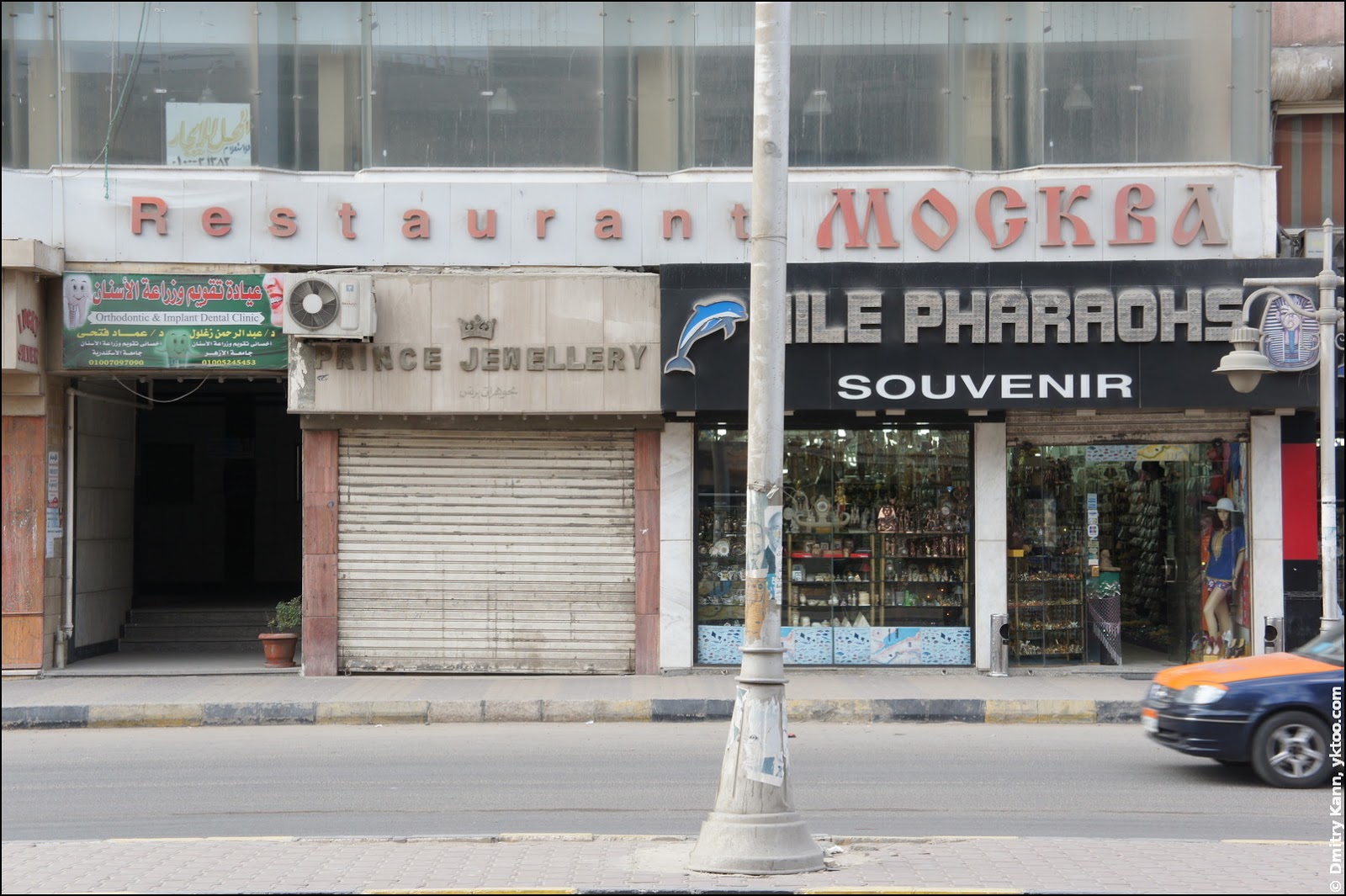
Hotel
But let me share some impressions about our hotel first. It was called The Three Corners and claimed to have a three star rating.
I would personally give it only one, at a pinch. Our apartment was roomy, and that seemed to be its only advantage. This is the bedroom:
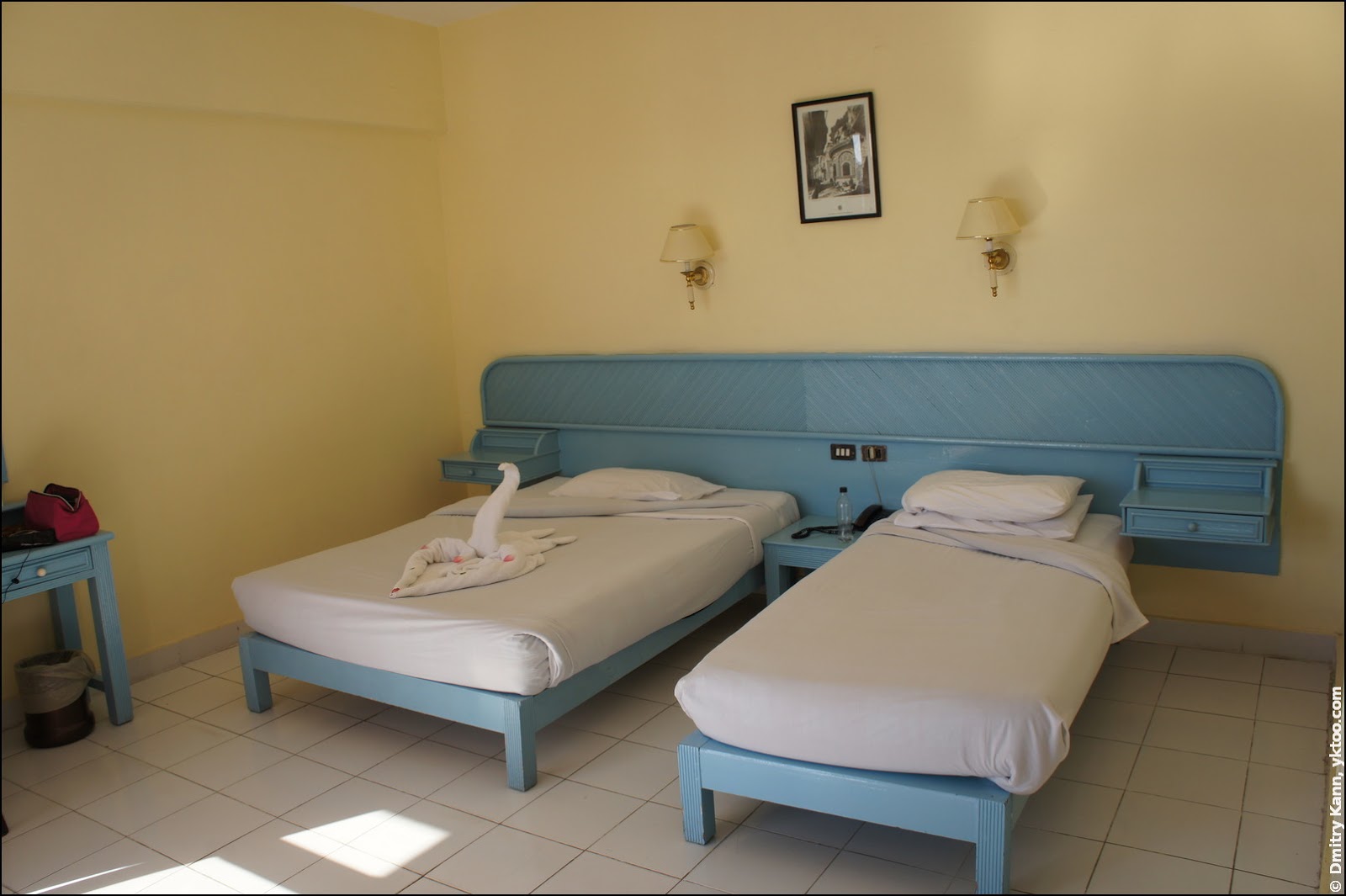
As if to compensate for the poor quality, cleaning staff would demonstrate towel art now and then:
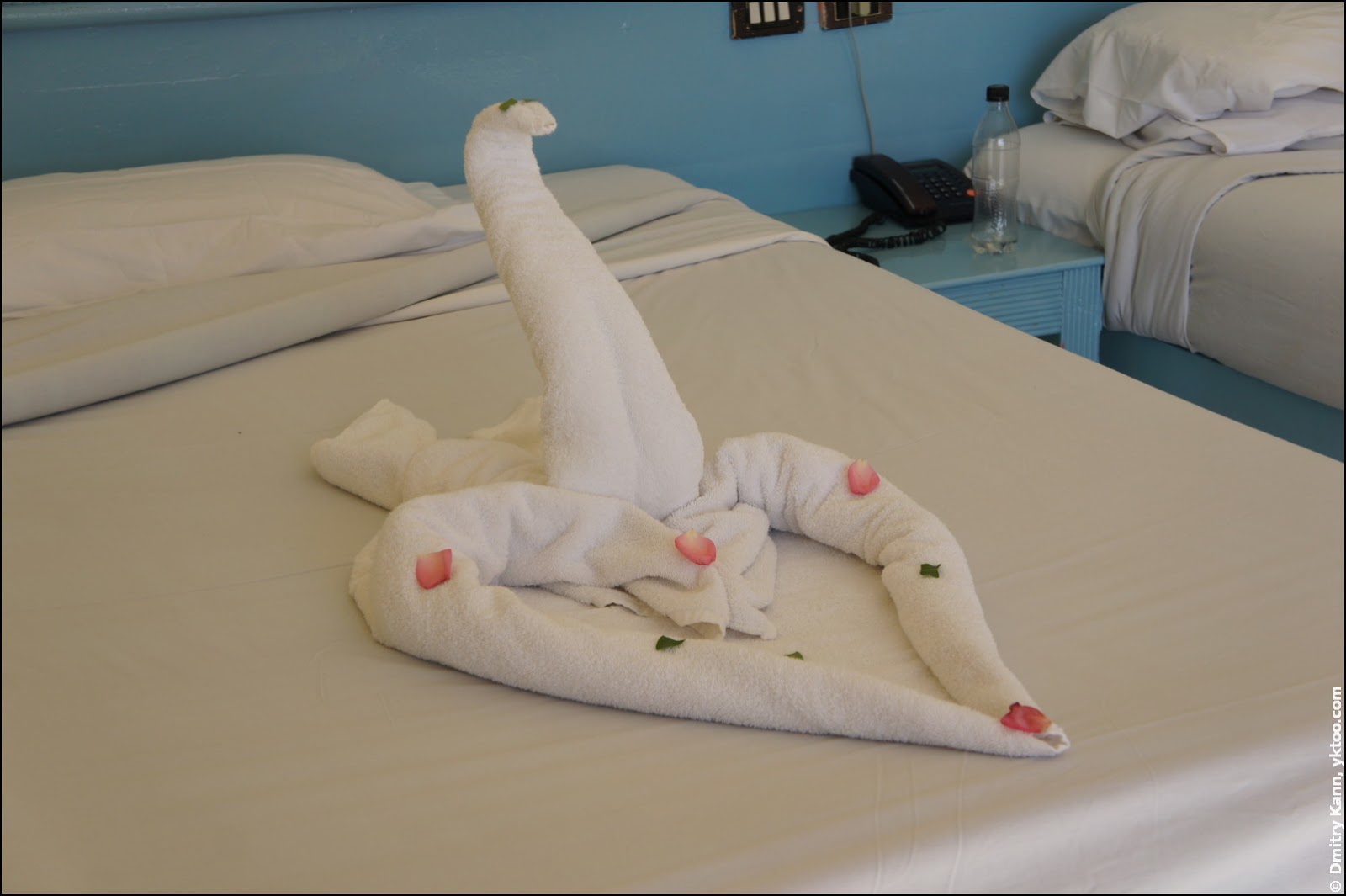
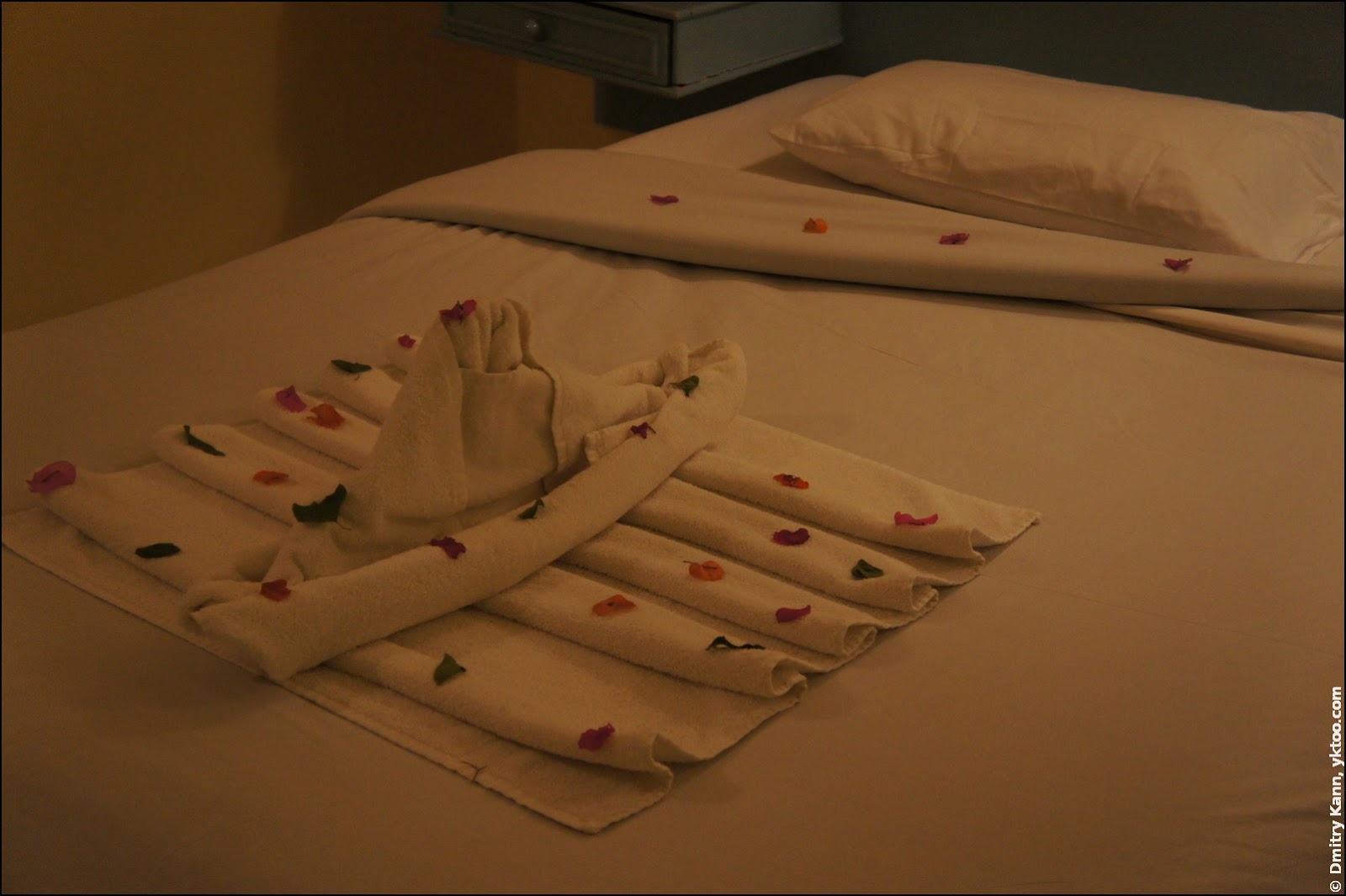
And this is a kind of living room, with a TV and a fridge equipped with a lock (!), apparently to guard valuable products from staff’s attention.
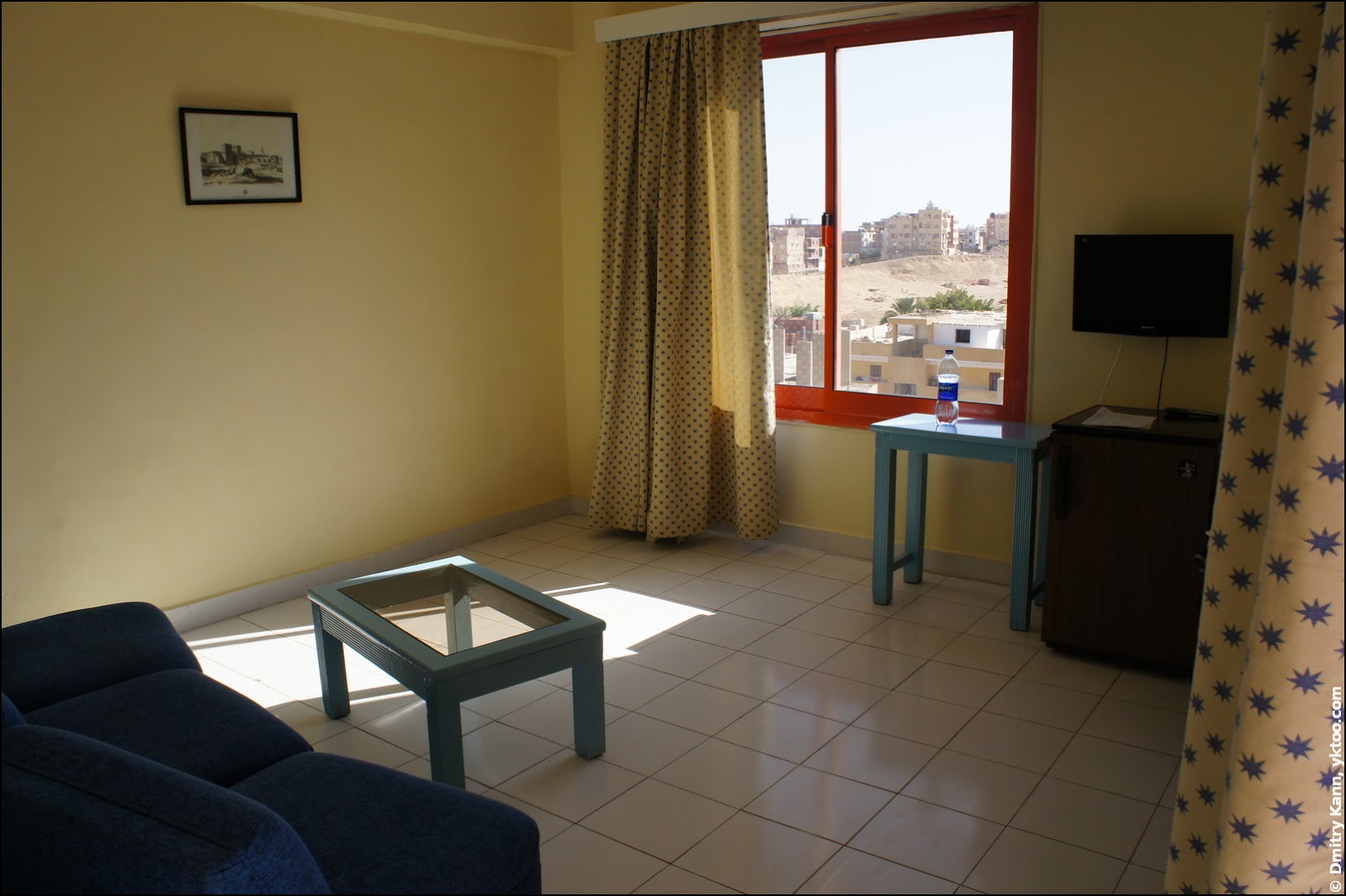
The interiors and furniture were very shabby, so was the sanitary equipment in the bathroom. For the first time in years we’ve seen cockroaches again. The windows and the balcony gave a fantastic view on the city:
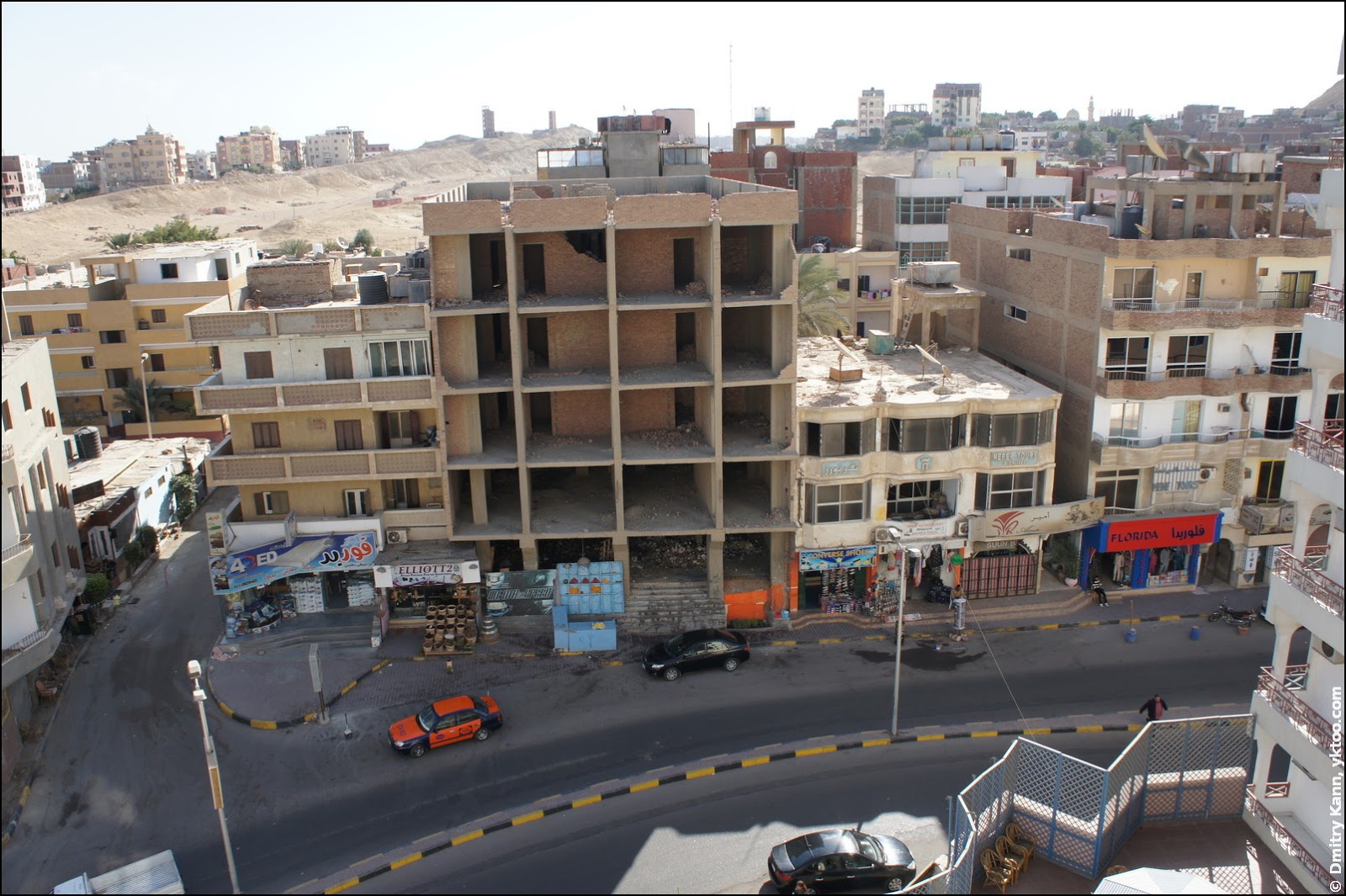
This view is quite typical for Hurghada, so we wondered whether it’s all unfinished or, conversely, tumbledown. During our walk through the city we’ve seen dozens of such incomplete projects, but never any construction worker, weird.
Okay, we saw a paint worker on one of the façades once. All very plain and simple, even barefoot:
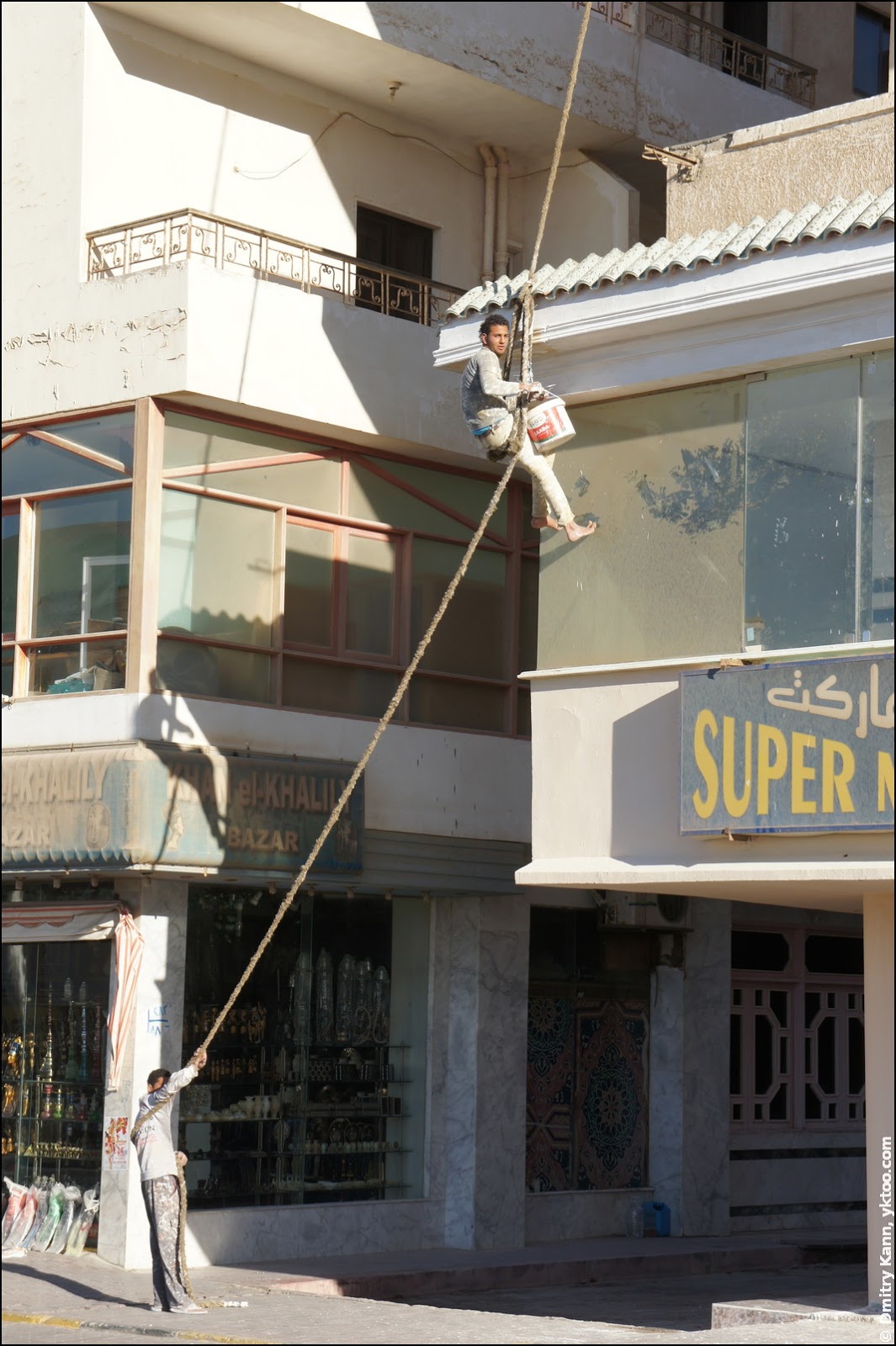
Another striking thing is the amount of dust. It covers literally everything, giving façades a neglected appearance. This must be caused by the shortage of water. Here’s for instance, an electronic store with some seemingly decent names on:
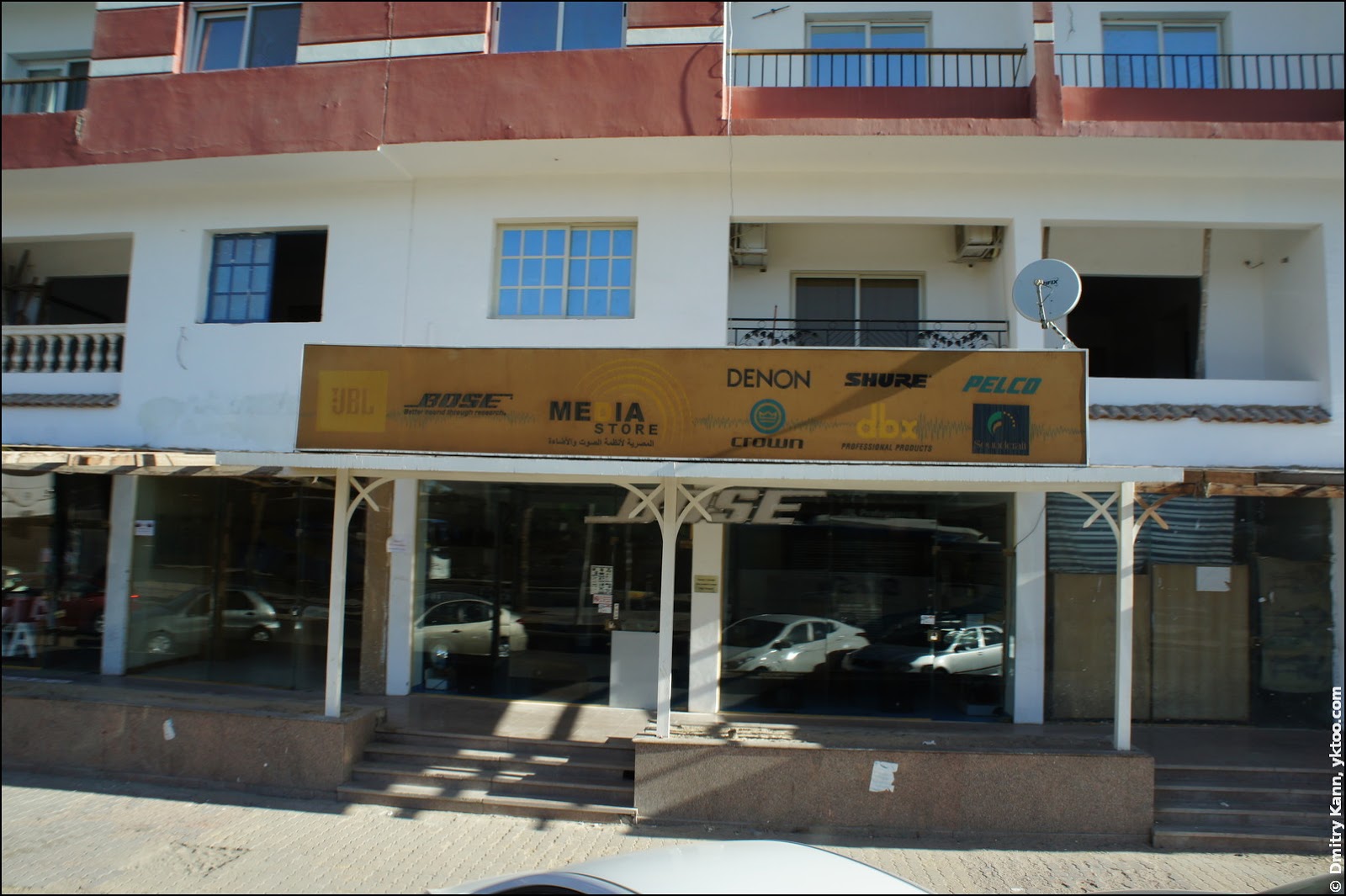
There are lots of satellite dishes on housetops, and they too look as if they’ve been there for decades:
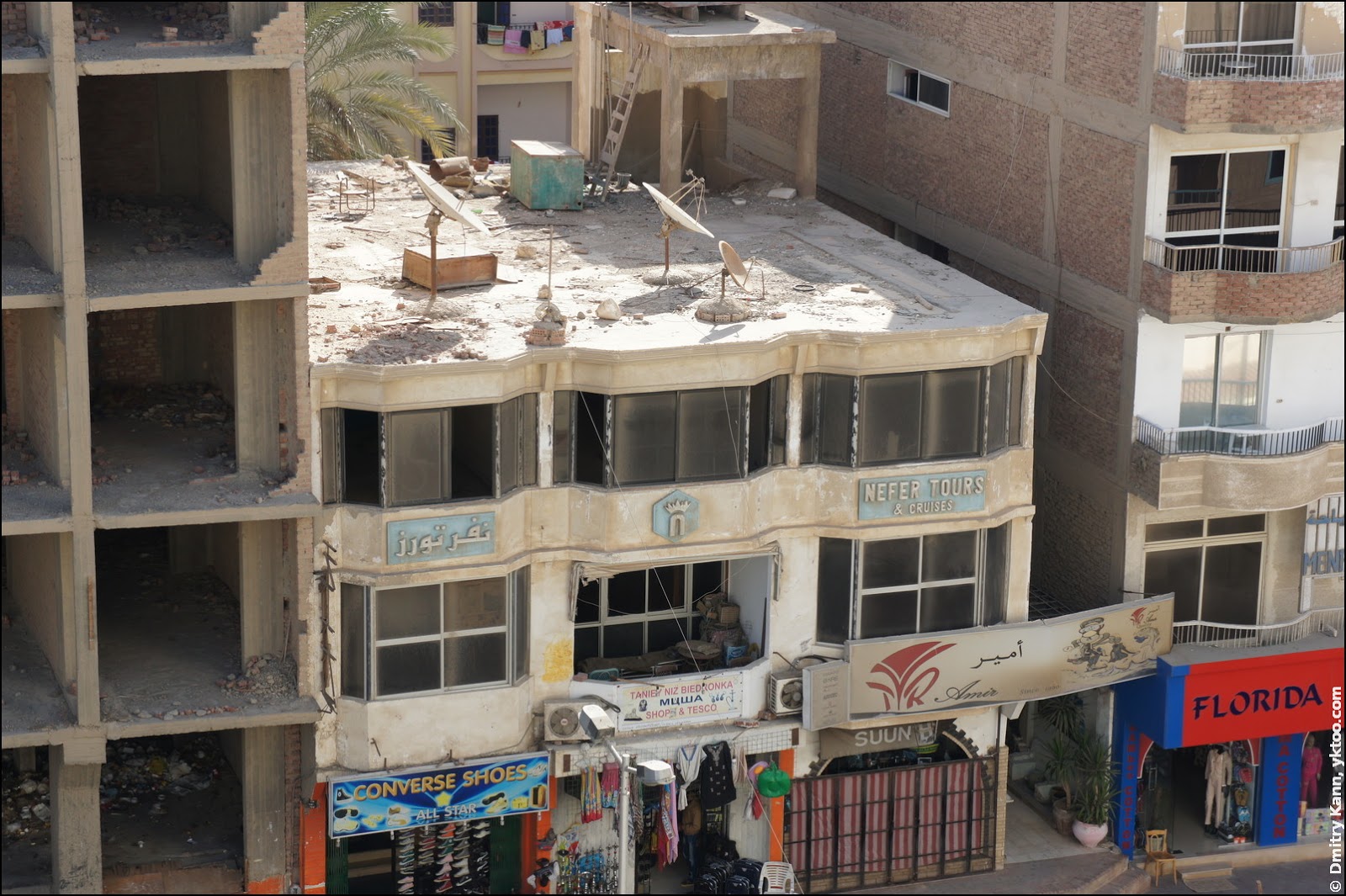
Our hotel, as one can guess, wasn’t situated at the fashionable part of the city, which could be derived from the buildings, cleanliness of the streets and the appearance of the locals. The only “stores” here were in fact tiny stalls full of cheap rubbish. The nearest more or less decent supermarket was in the downtown, about two miles away. But the good was that the beach was a five minutes walk from our place.
Like I already said, the Red Sea is immaculate: perfectly clear, transparent, lukewarm water, sand beaches and beautiful weather even in the winter. There was a public city beach nearby, but we preferred a closed one that belonged to the hotel, which was a bit cleaner and free of random people. Yet the equipment was old and worn-out, like all other things in our hotel:
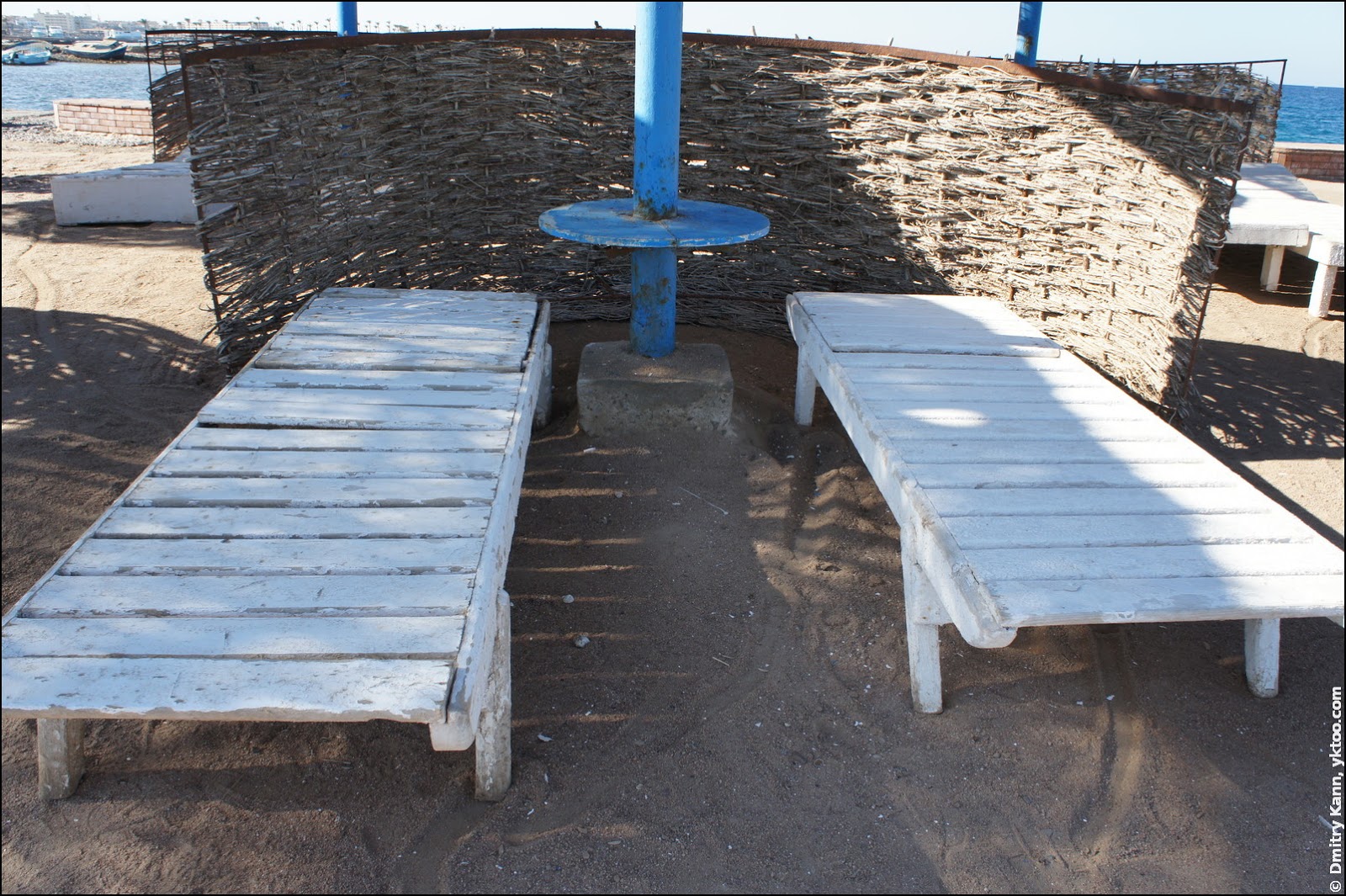
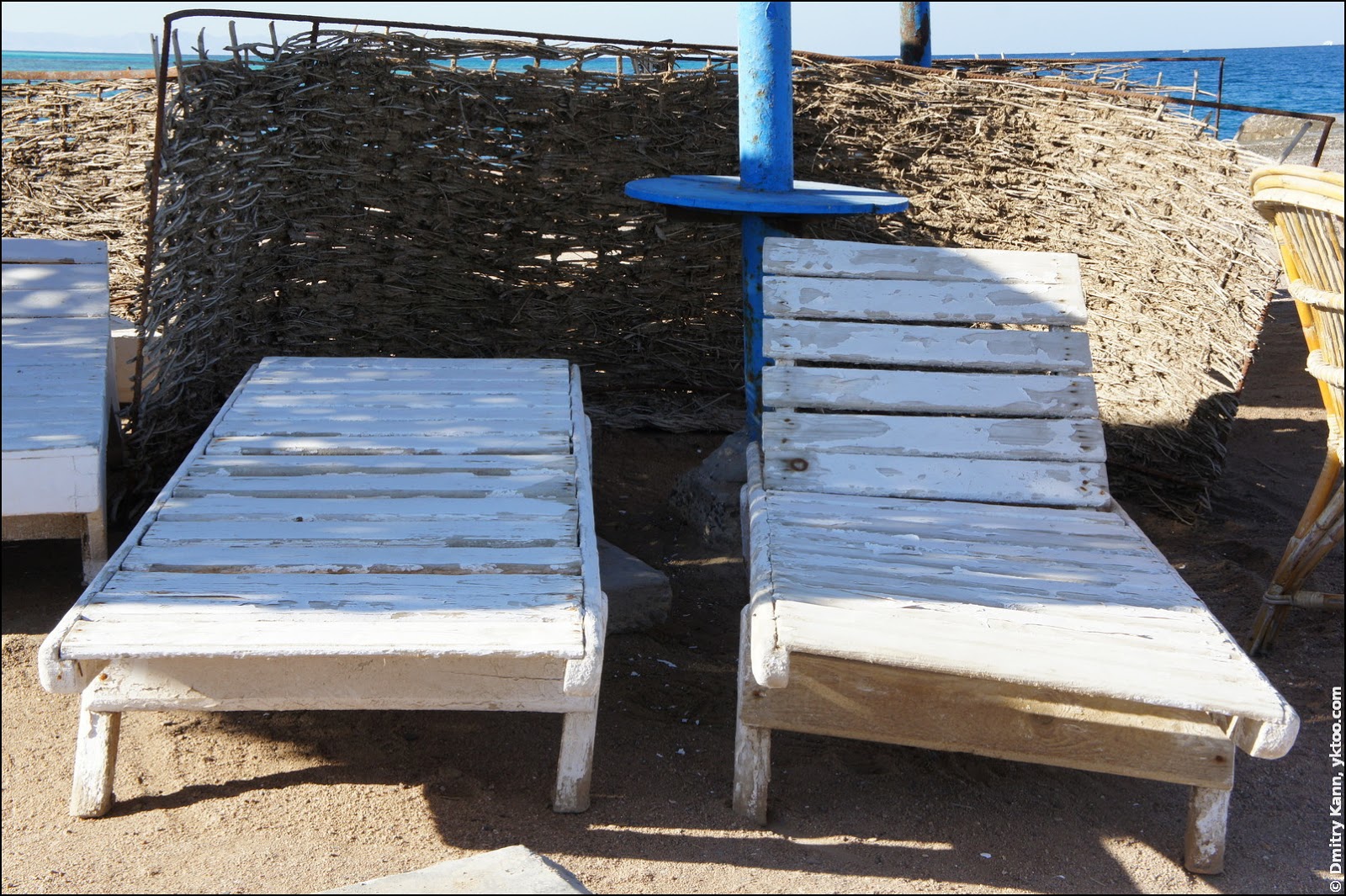
Locals
But the most frustrating part was locals’ behaviour. They were incredibly annoying, like mosquitos. When you walk down the street, you’d get bugged by barkers every twenty metres. Most of the time they would speak Russian to you, but English is fine too. They would call you, greet you, ask you things, offer you brochures or even pull your sleeve. A similar thing happens when you lie down on the beach, you are offered excursions, food, make-up and so on.
I personally get an irresistible urge to punch the bugger in the face respond with some bitter words. However, since it happens literally every minute, you get used to it after a while and simply begin to neglect them. This proved to be the most efficient way to get rid of the obtrusive service.
At first we were a bit shocked by such importunity. Next to that, the evident poverty around us made us ask ourselves how safe it would be to exhibit an expensive camera or a mobile phone in the street. But then we spoke once to a Dutch lady who ran a bar nearby, and she told us there was almost no crime in Hurghada. She described Egyptians as “immensely friendly and nice” (this must be the reason their being so bothersome, I guess). The lady had been living in Hurghada for about three years, and had moved there “because she liked it there”.
We didn’t share that view of hers, but after she assured us Hurghadian streets were utterly safe we stopped worrying and took some walks through the city.
Transport
As I said, Hurghada looks highly unusual compared to Europe. Poverty of the local population, shabby houses, ancient cars and bizarre outfits of the locals are striking. You get the feeling you’re a hundred years back in time. You see a quite a few carts, mainly driven by donkeys:
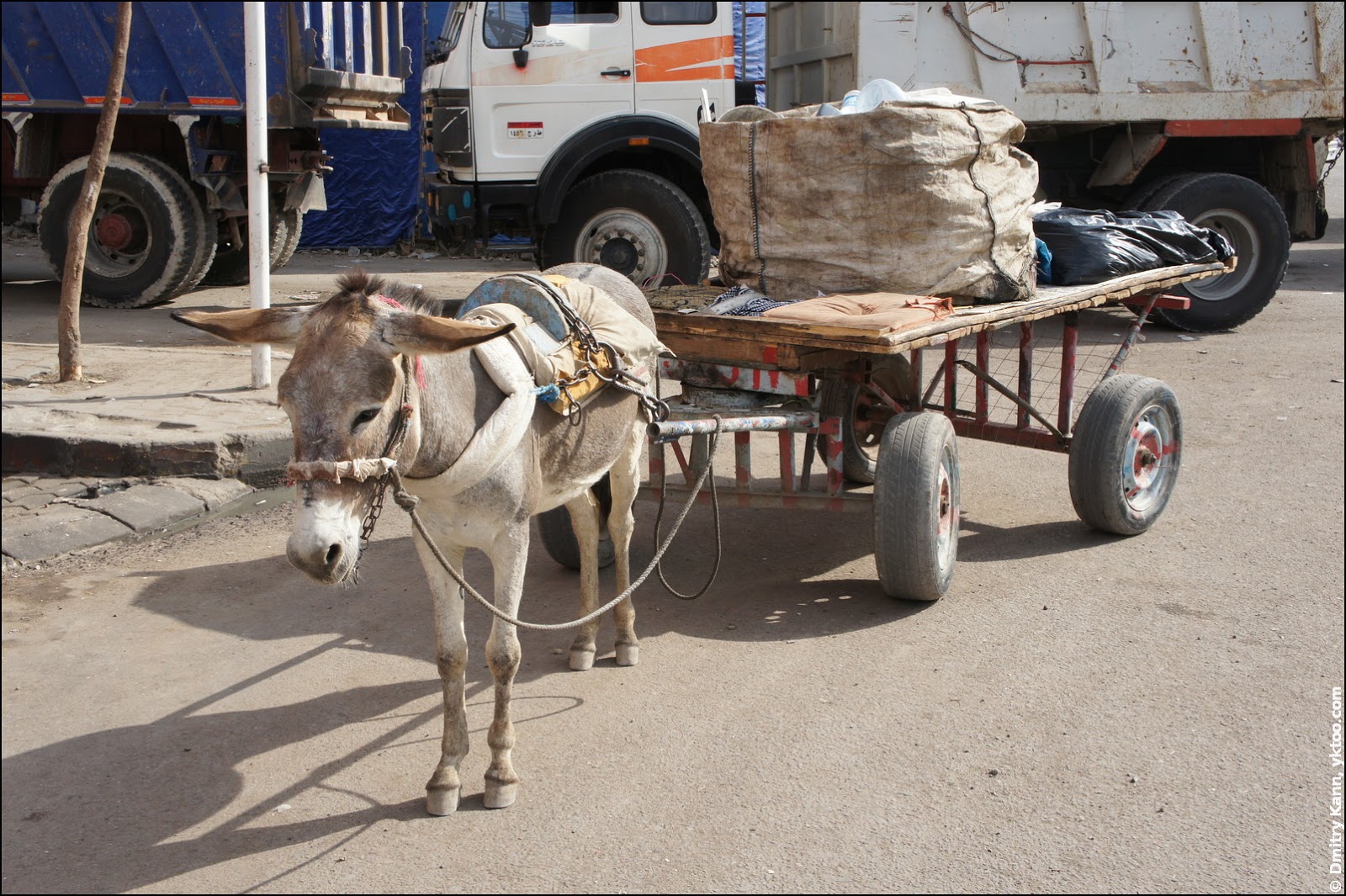
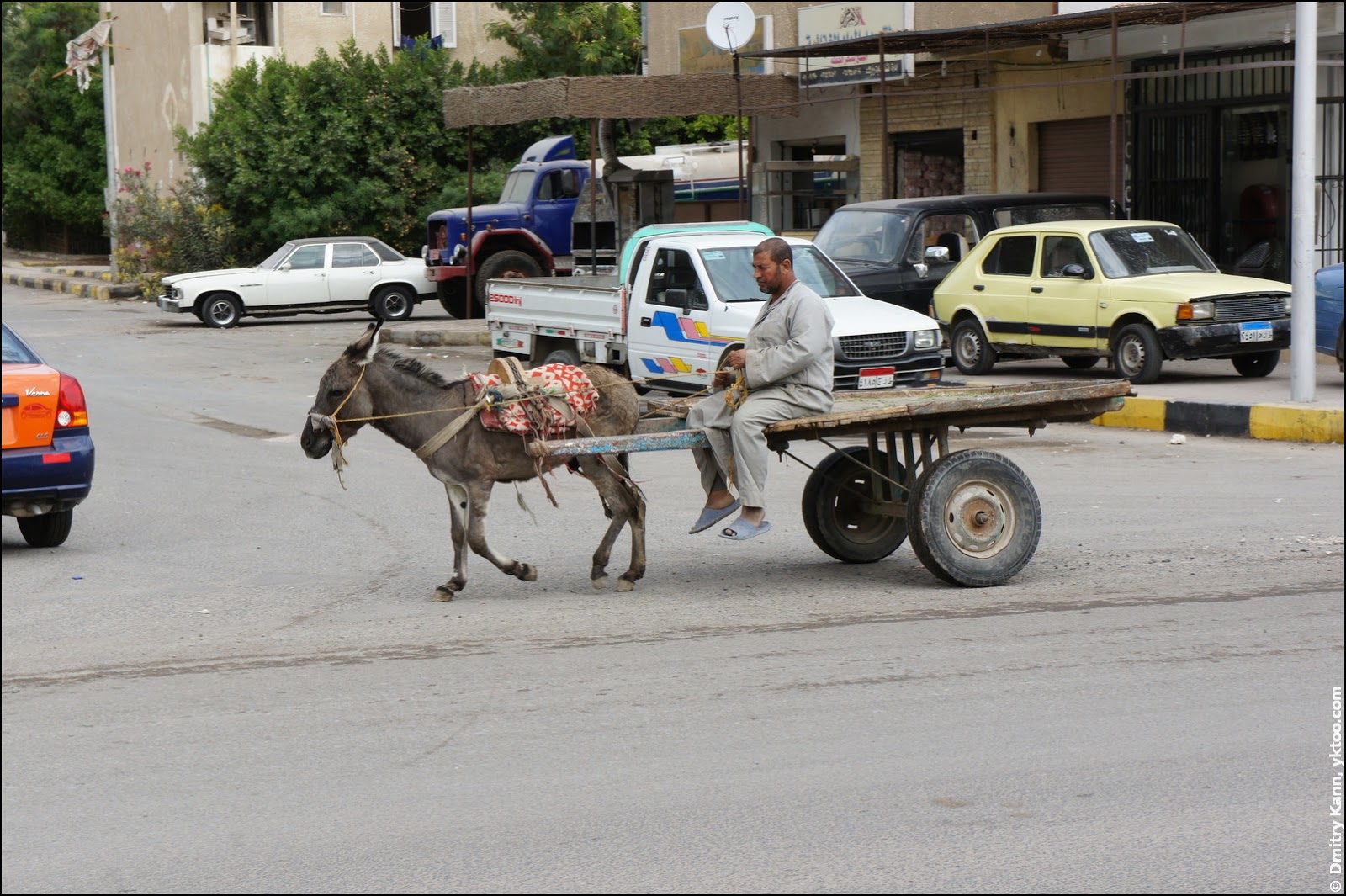
Cars are often as old as 30–40 years.
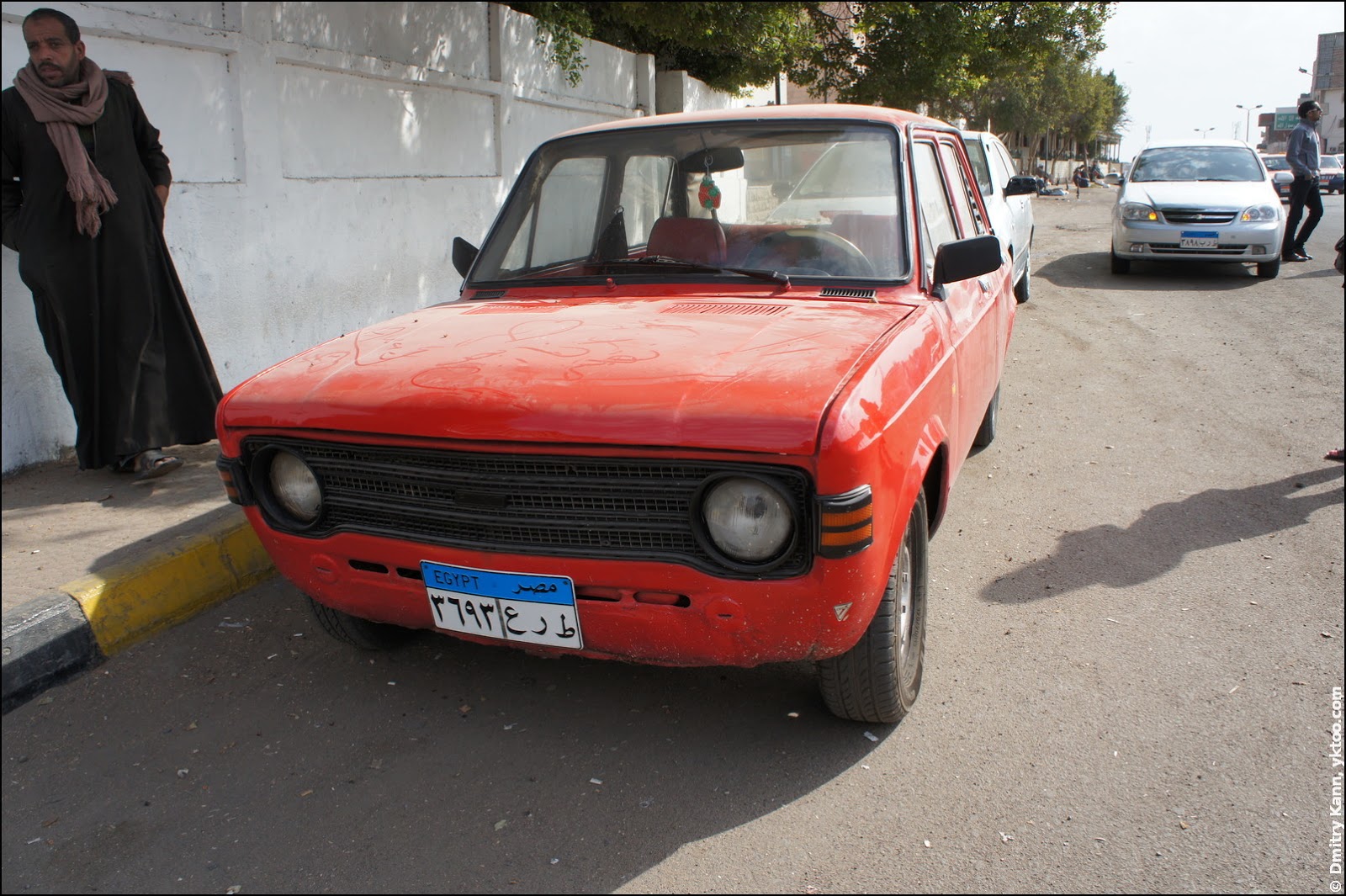
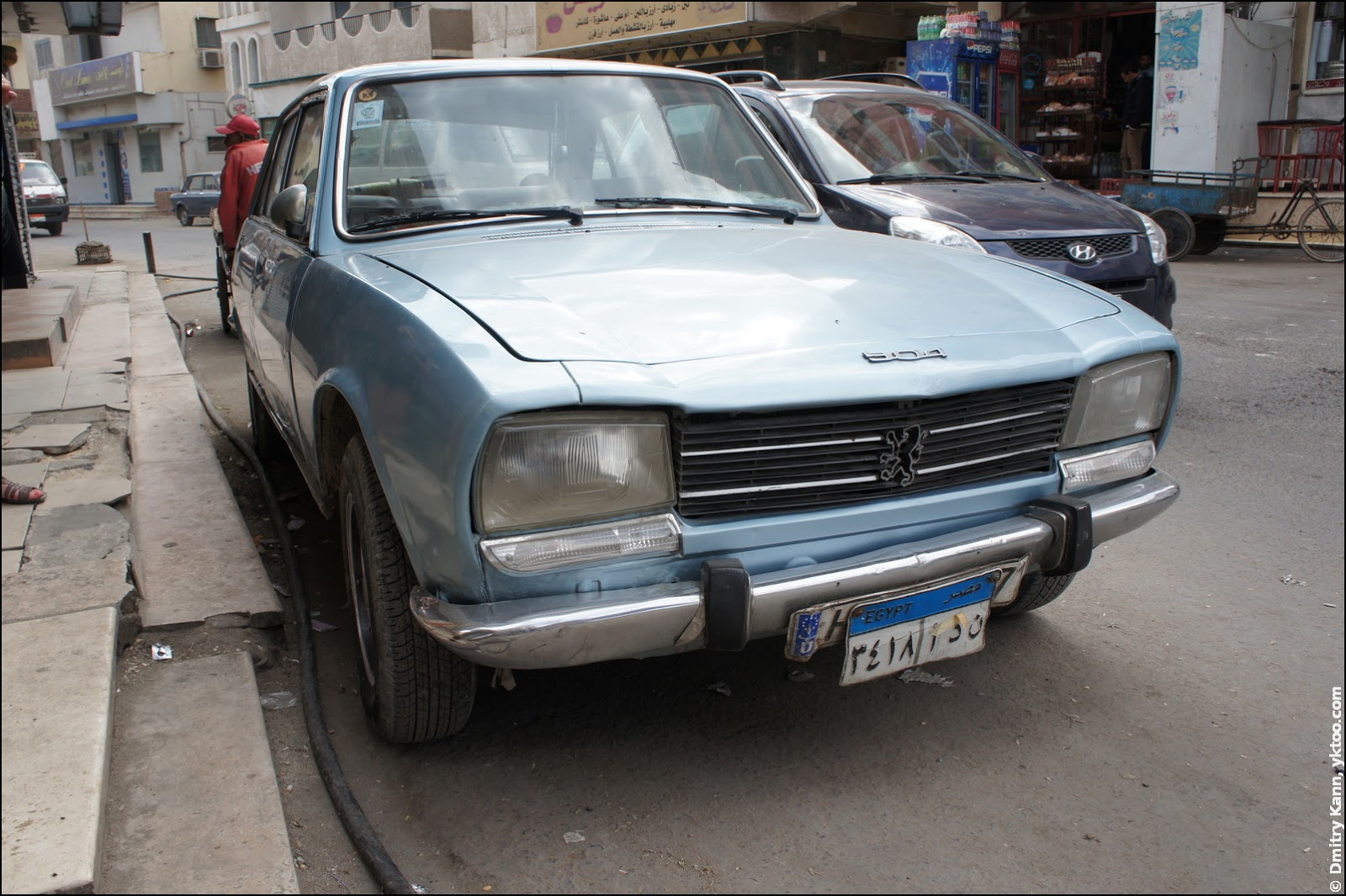
You see bikes once in a while, and sometimes even cargo vehicles like this:
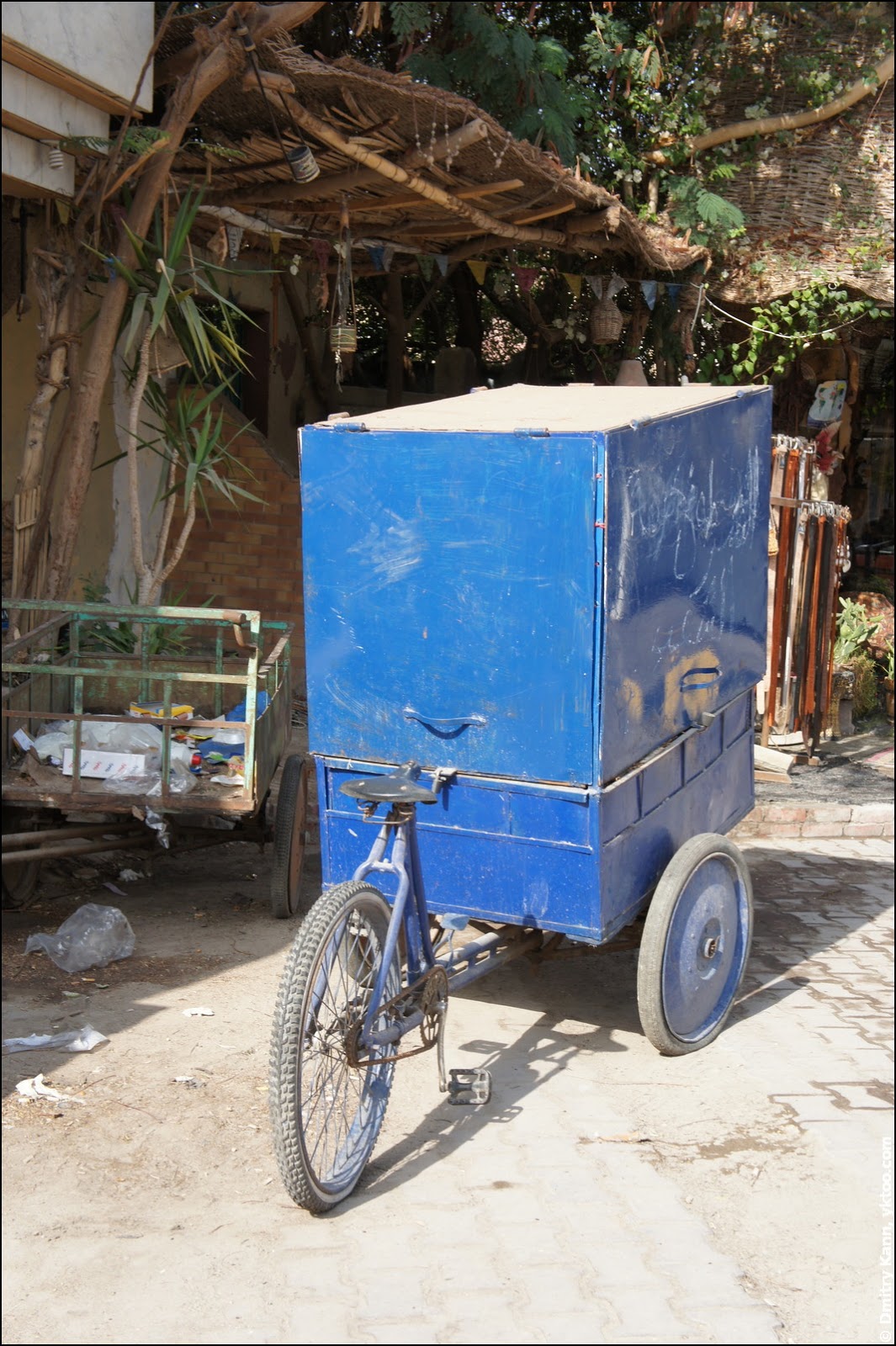
Curious enough, while walking in the city we weren’t bothered by anyone, yet eagerly watched, especially by men.
The main street of Hurghada is a Brownian motion of cars, people, lorries, buses. There are traffic lights but they are largely neglected by both pedestrians and vehicle drivers.
On order to calm drivers’ daring, the roads are all covered by speed bumps. In some places there also riveted areas, serving the same purpose:
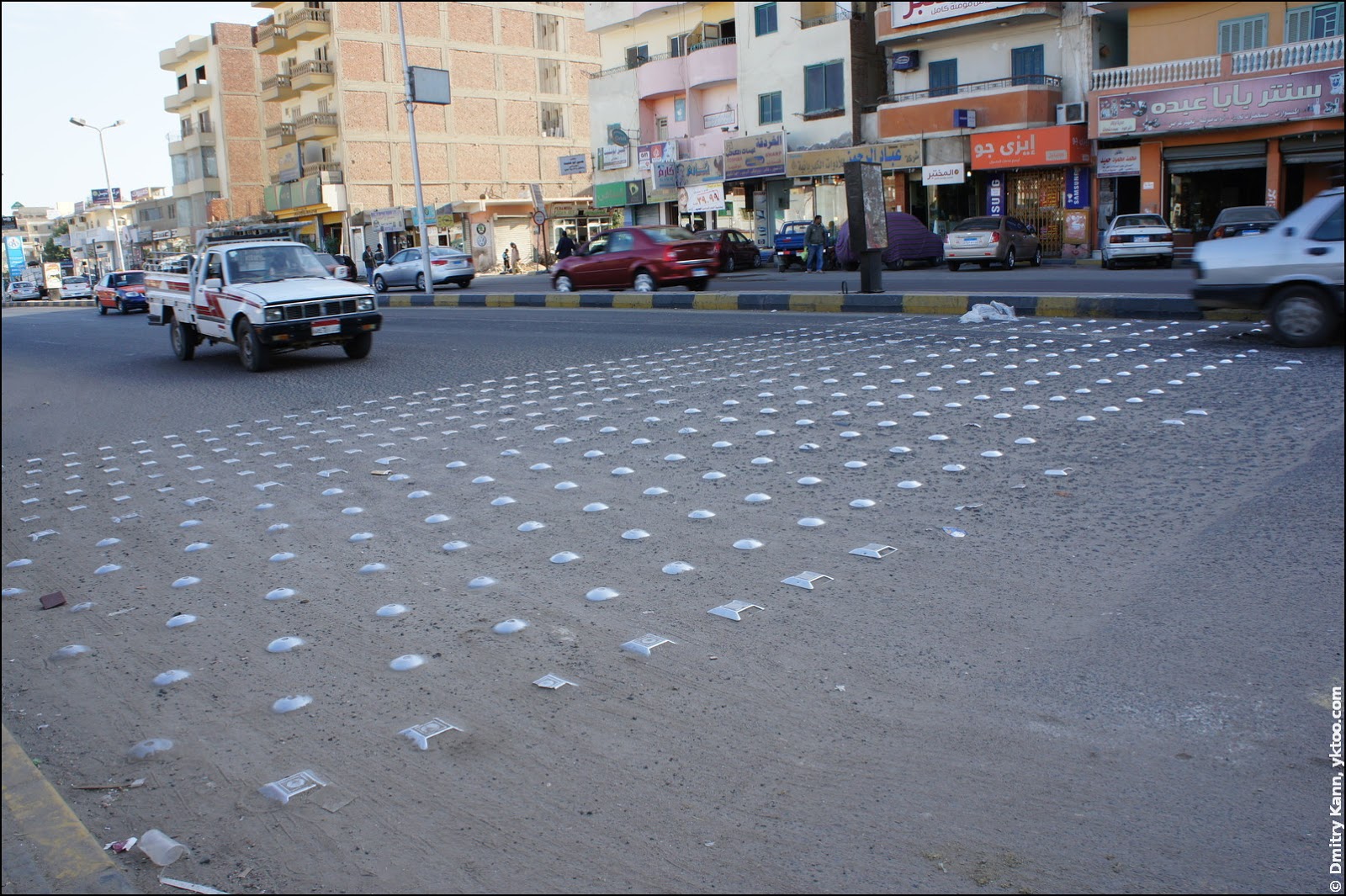
A bus stop with an English translation, they care about tourists:
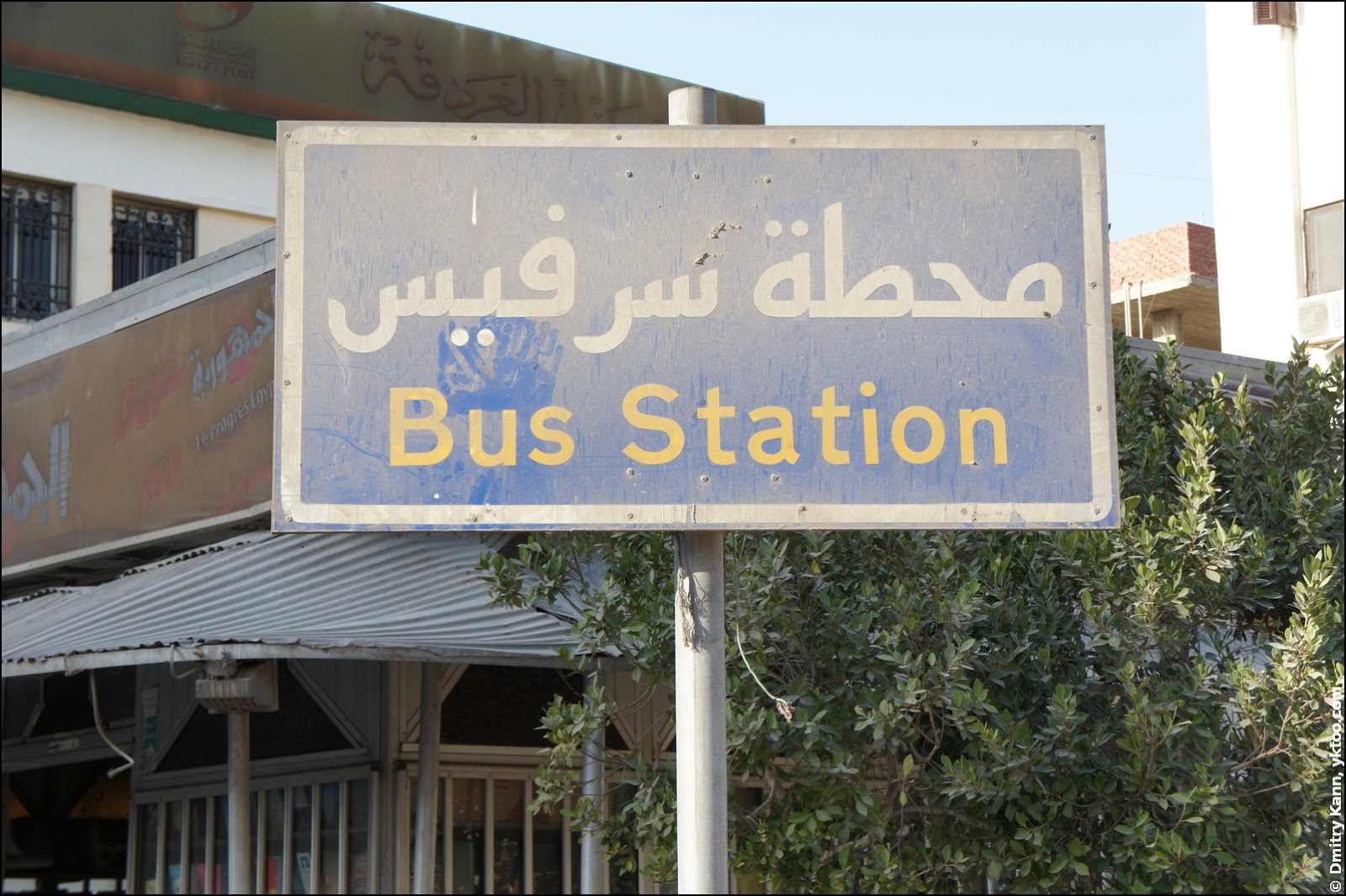
There are lots of taxis here, all painted the same way, orange and navy blue:
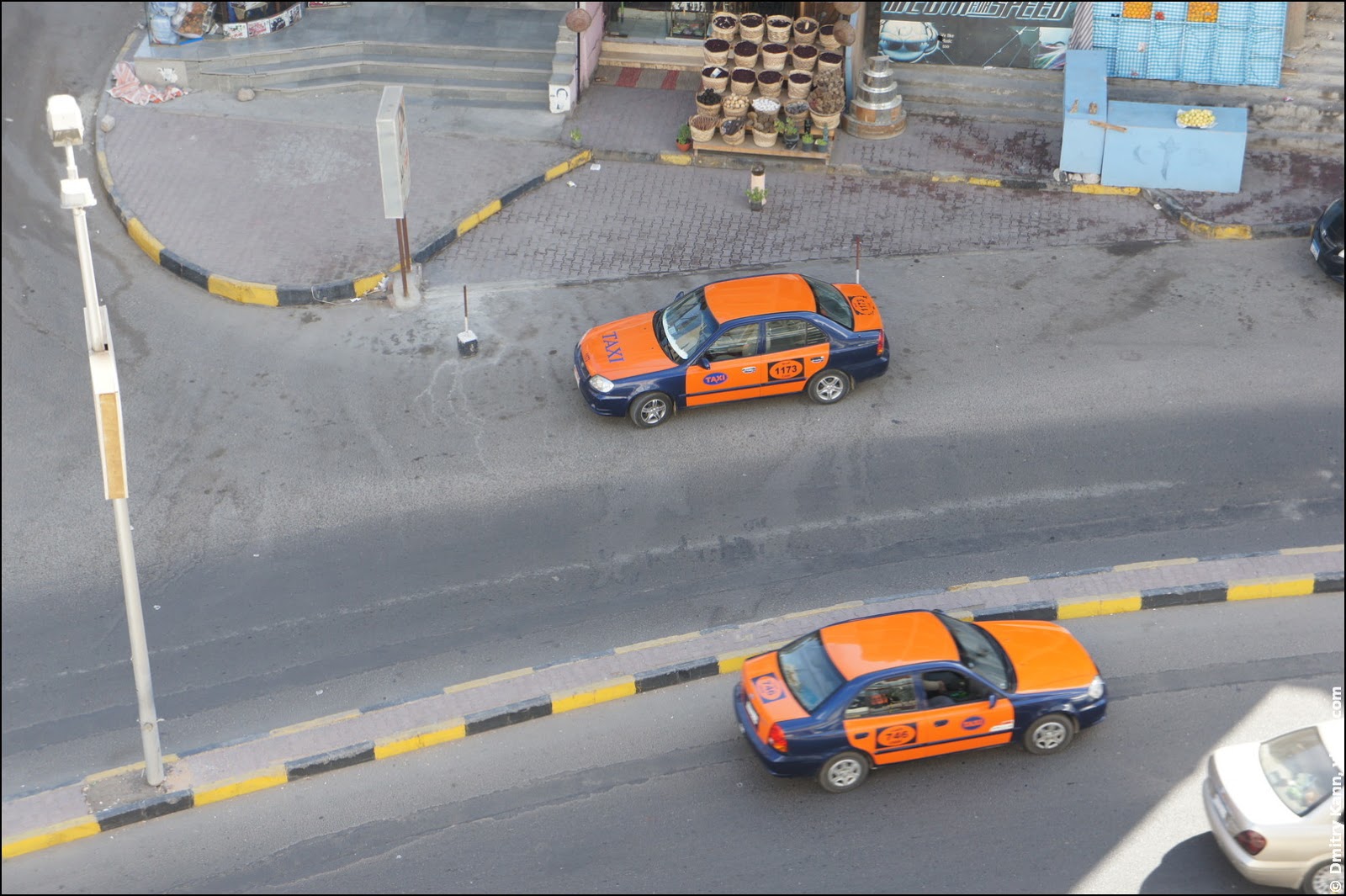
At any spot in the city you are passed by a few of them, so it’s more than easy to catch one. Sometimes they even stop without asking. They often wait for customers before hotels and even stores, and go about the city otherwise. It must be affordable as the gas price is as low as ¢ 10 per litre ($ 0.38 per gallon; in Holland the price now is about € 1.65–1.80 per litre of Euro 95, which is eight times as much).
Every taxi is equipped with a meter, but it’s never used and kept switched off. It’s always better to bargain the fare with the driver up front. Our experience with driving across the city was about 15–20 Egyptian pounds (€ 1.60–2.10).
As soon as the client is inside, the driver does everything to provide the best service possible (in his opinion) by bringing him to the destination in the shortest possible time. All the rules, signs and traffic light are normally ignored. Once the driver took a shortcut by driving us in the opposite direction on a one way street for about one kilometre. He even had to drive around special spikes whose purpose was exactly preventing cars from entering that street at the wrong end. You may already guess safety belts are not respected either.
Besides that, Egyptian drivers don’t like turning their headlights on in the darkness. Most cars either don’t have any light on or use only parking lights. Indeed, why bother if it’s perfectly fine without the headlights:
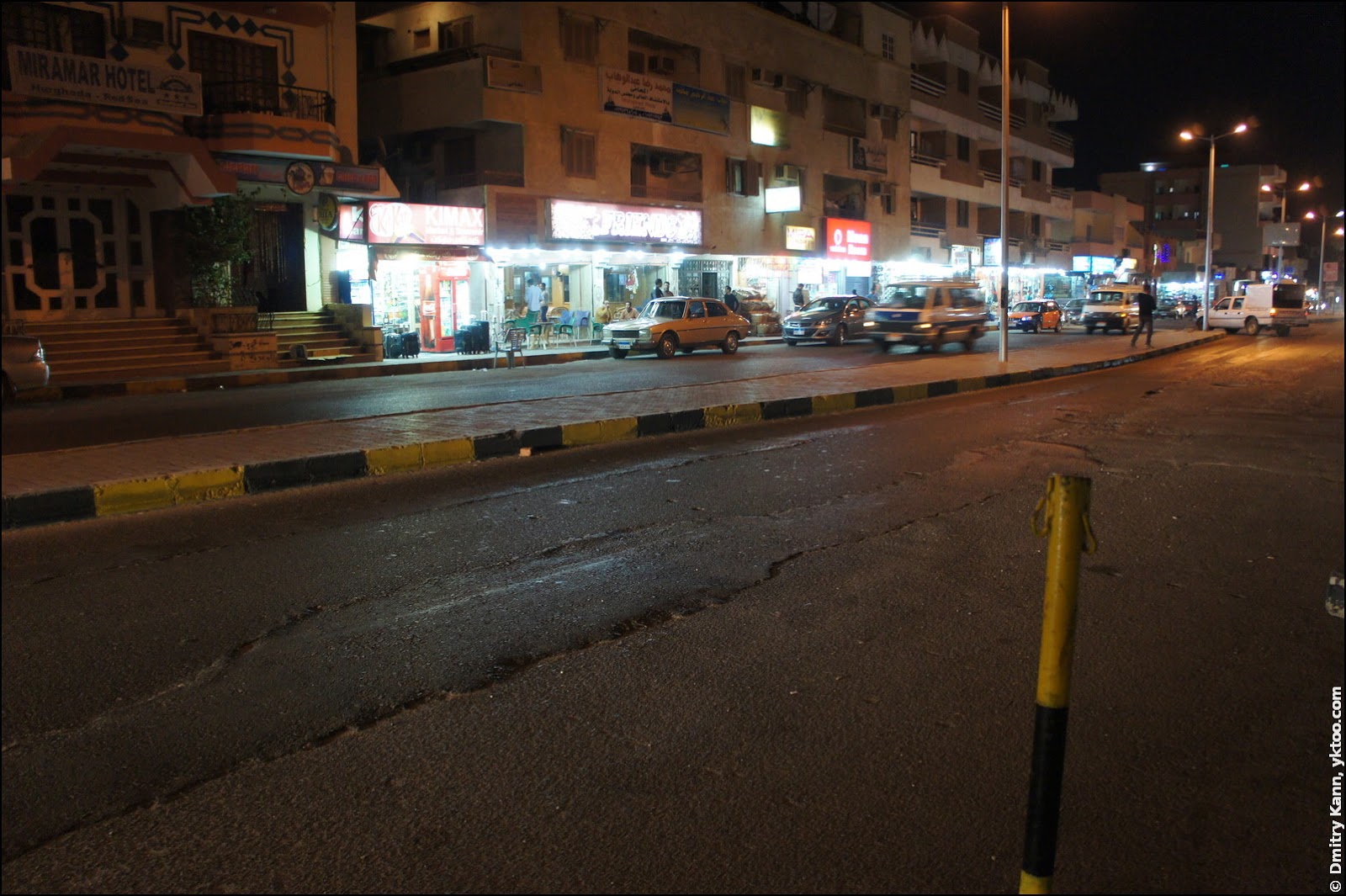
With all that I haven’t seen any accident here, which is puzzling.
Another thing worth mentioning is the fondness for illumination. The more blinking lights, the better, and that get the most visible in traffic sign design. They flash and blink like billboards, and each sign has an individual design with changing illumination programs. Here are some examples:
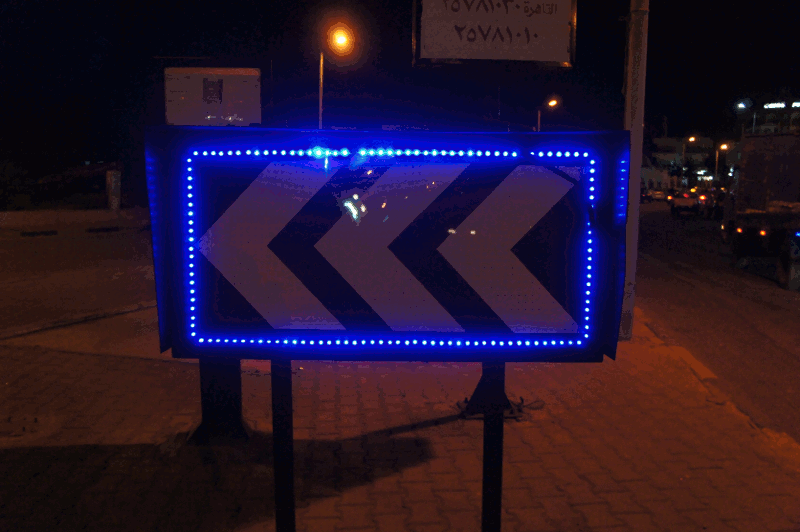
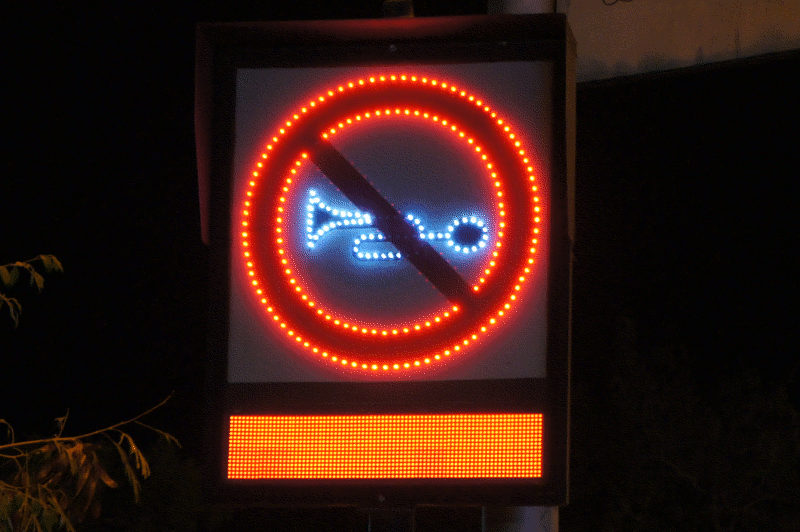
Furthermore, some traffic lights have repeater lights mounted right on the ground near cross-roads. They change colour in sync with traffic signals, or simply blink to warn the driver. An interesting idea on itself, but it doesn’t seem to get anywhere given the overall mess and neglect of the traffic code:
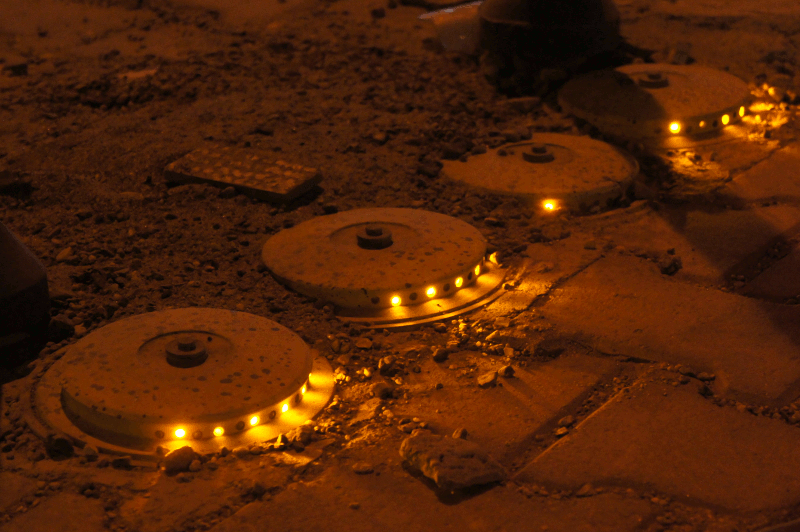
The last peculiarity of Egyptian traffic I’d like to mention is constant use of horn. The animated sign that prohibits hooting above was spotted near a hospital entrance, and it seems to be relevant. The drivers toot their horns all the time, with or without a particular reason, and that is annoying in the beginning. Again, you get used to it after a while, but the question remains: why do they do it?
It was finally explained by a taxi driver. They use it as a form of greeting for pedestrians and other drivers, when they’re glad to see them. Or not glad. Or even indifferent. He was shocked when I told him he’d be fined € 350 in Holland for being this “friendly”.
Marina by night
I already mentioned Hurghada Marina. This place reveals a sharp contrast with the rest of the city, it’s fenced and ordinary locals are not allowed to enter here. It’s very beautiful by night, with bars and restaurants at the ground floor:
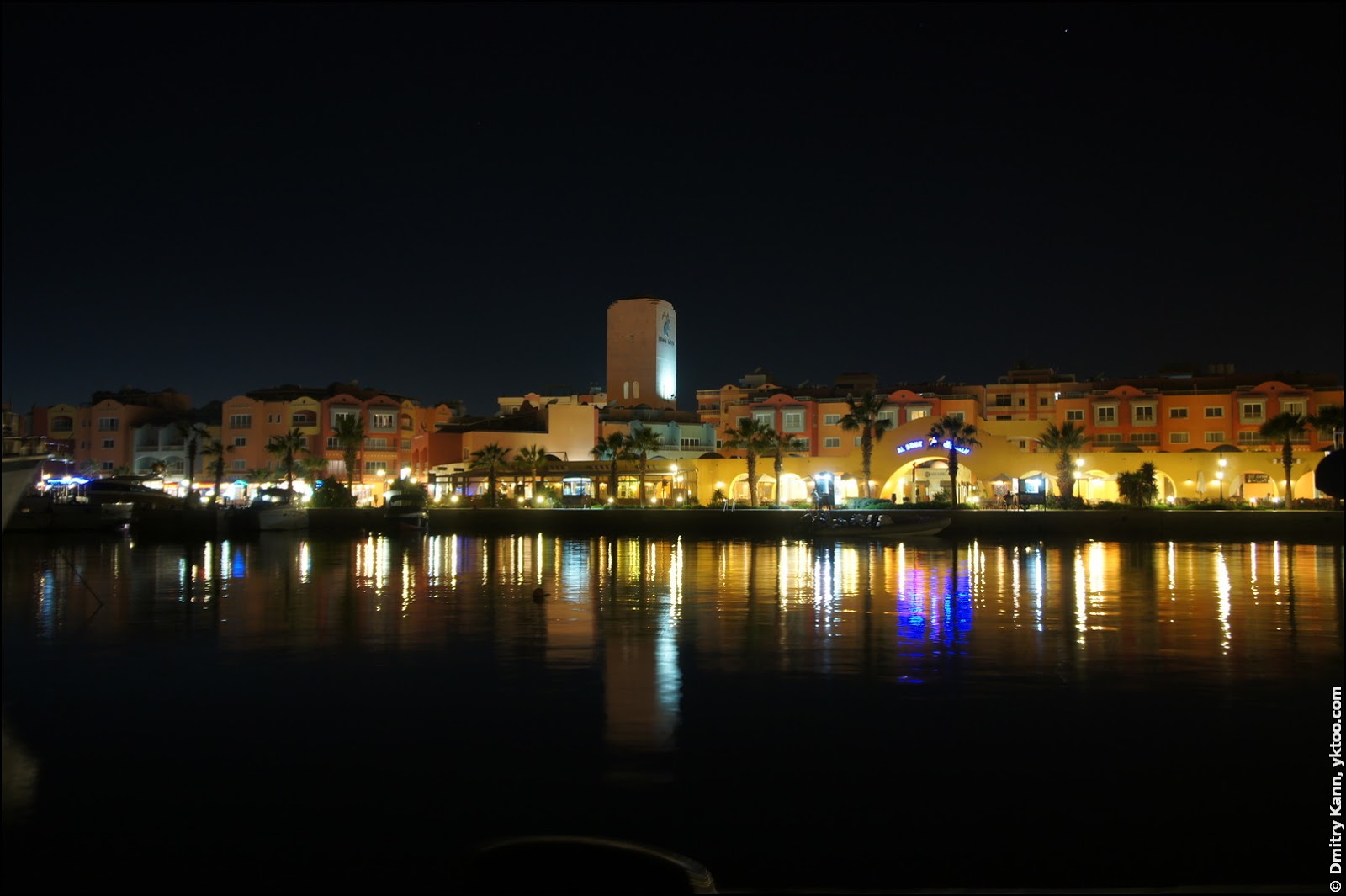
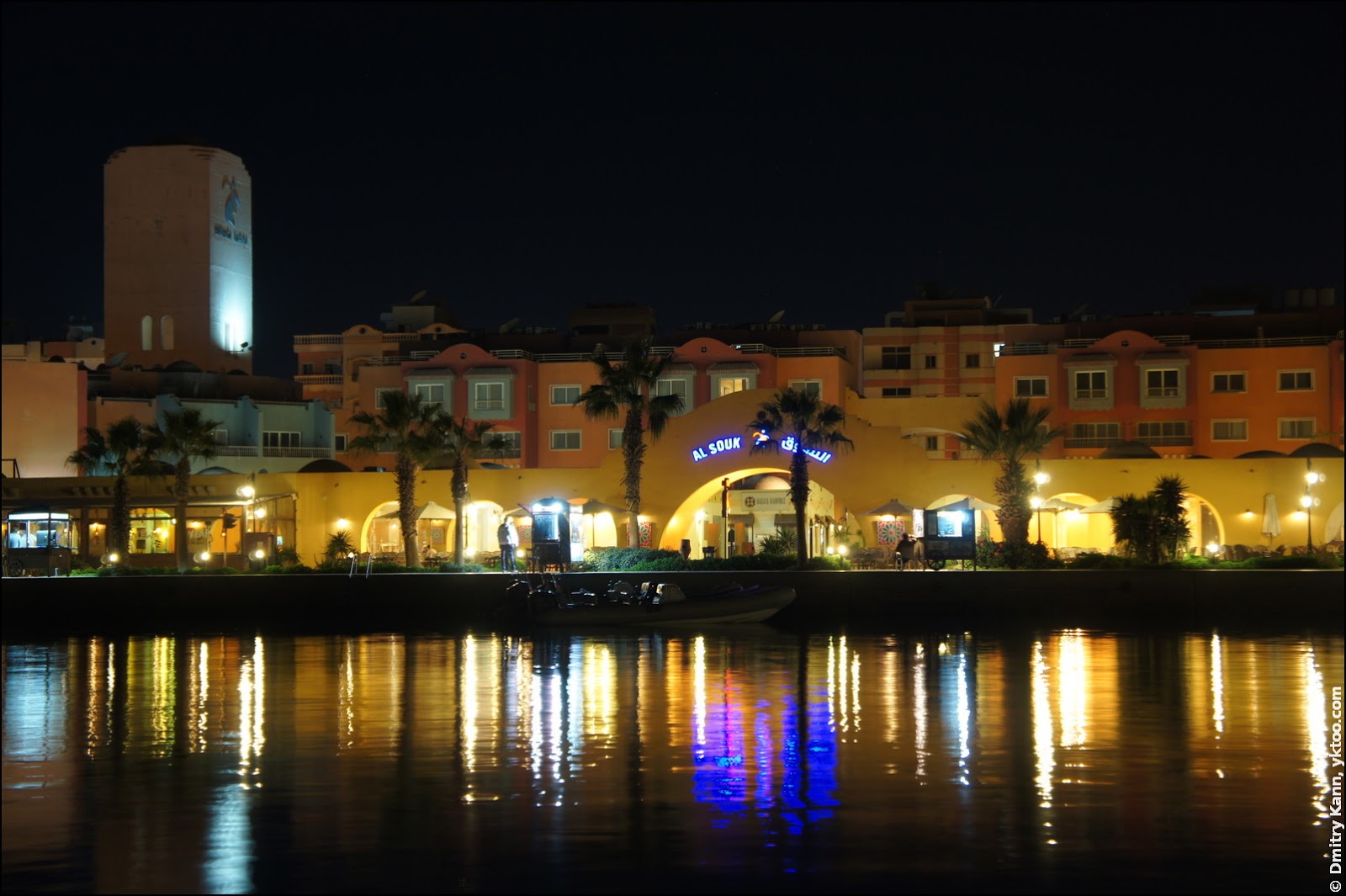
This was shot in an almost complete darkness:
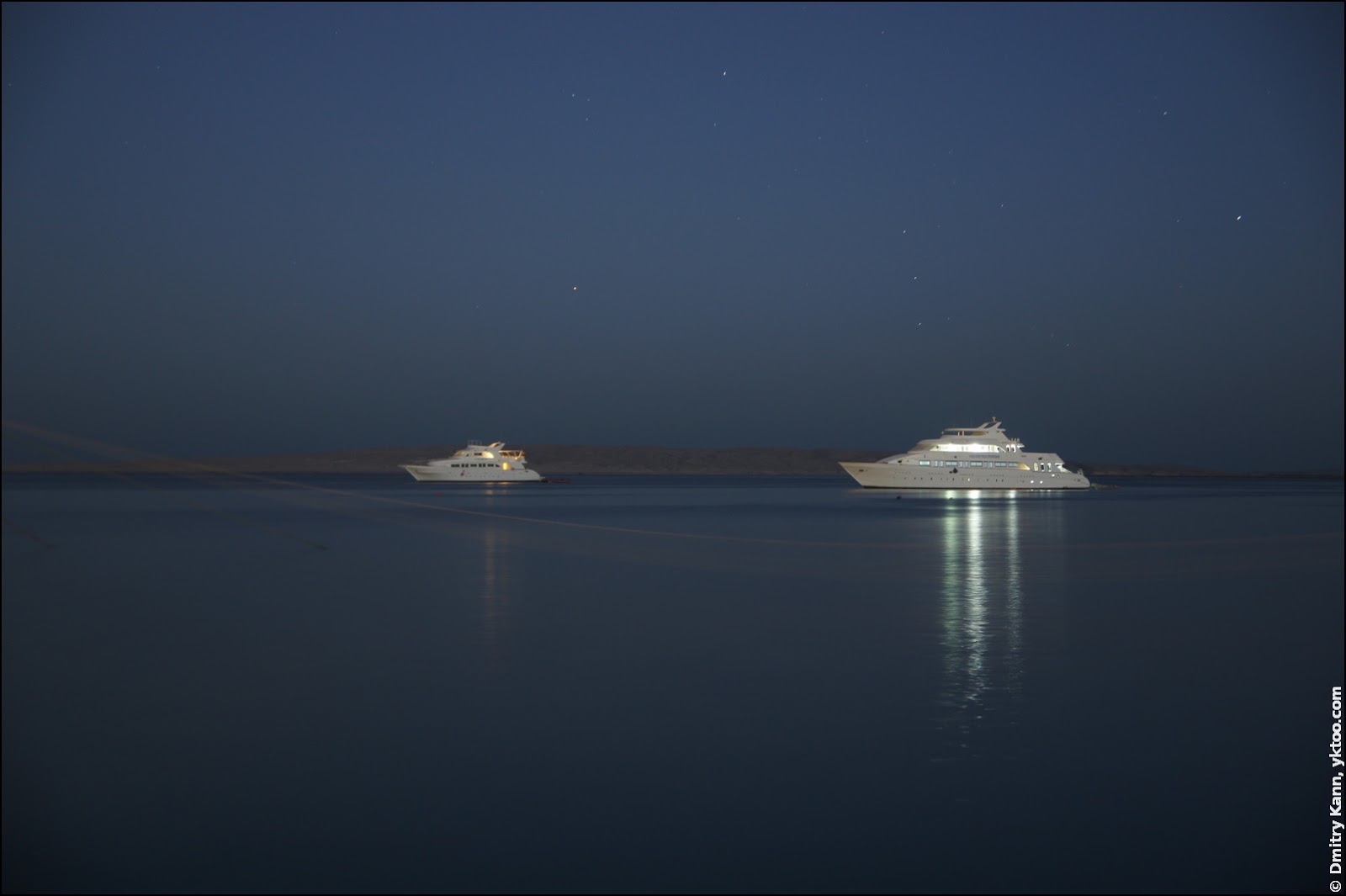
The main mosque of the city is beautifully illuminated. It’s outside the marina but well visible from there:
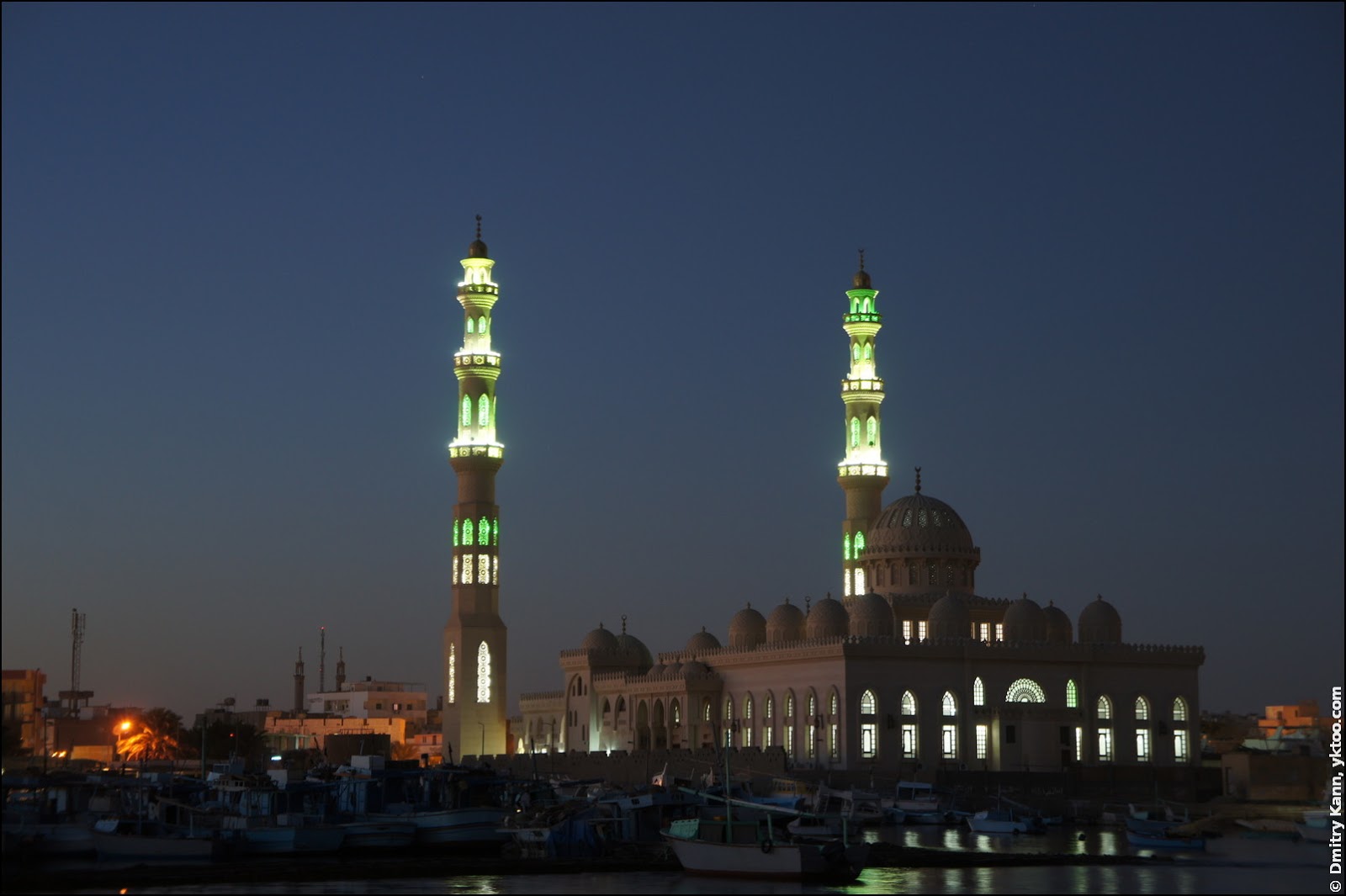
The mosque by day from its main entrance:
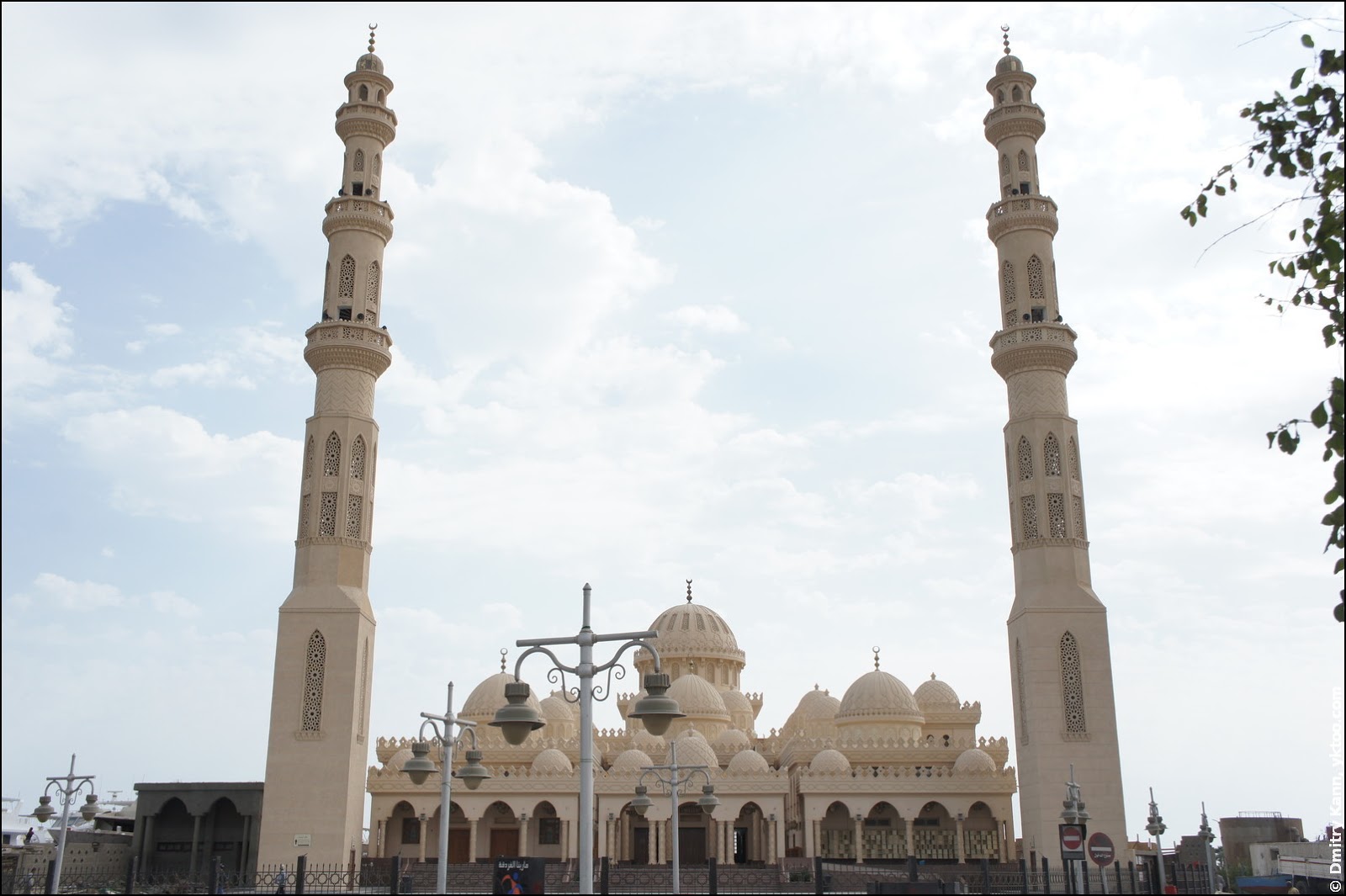
Streets of Hurghada
Like I said, Egyptian architecture gives a strange impression of desolation. Some houses look so bad that it’s not clear whether they’re inhabited. There’s a lot of construction sites.
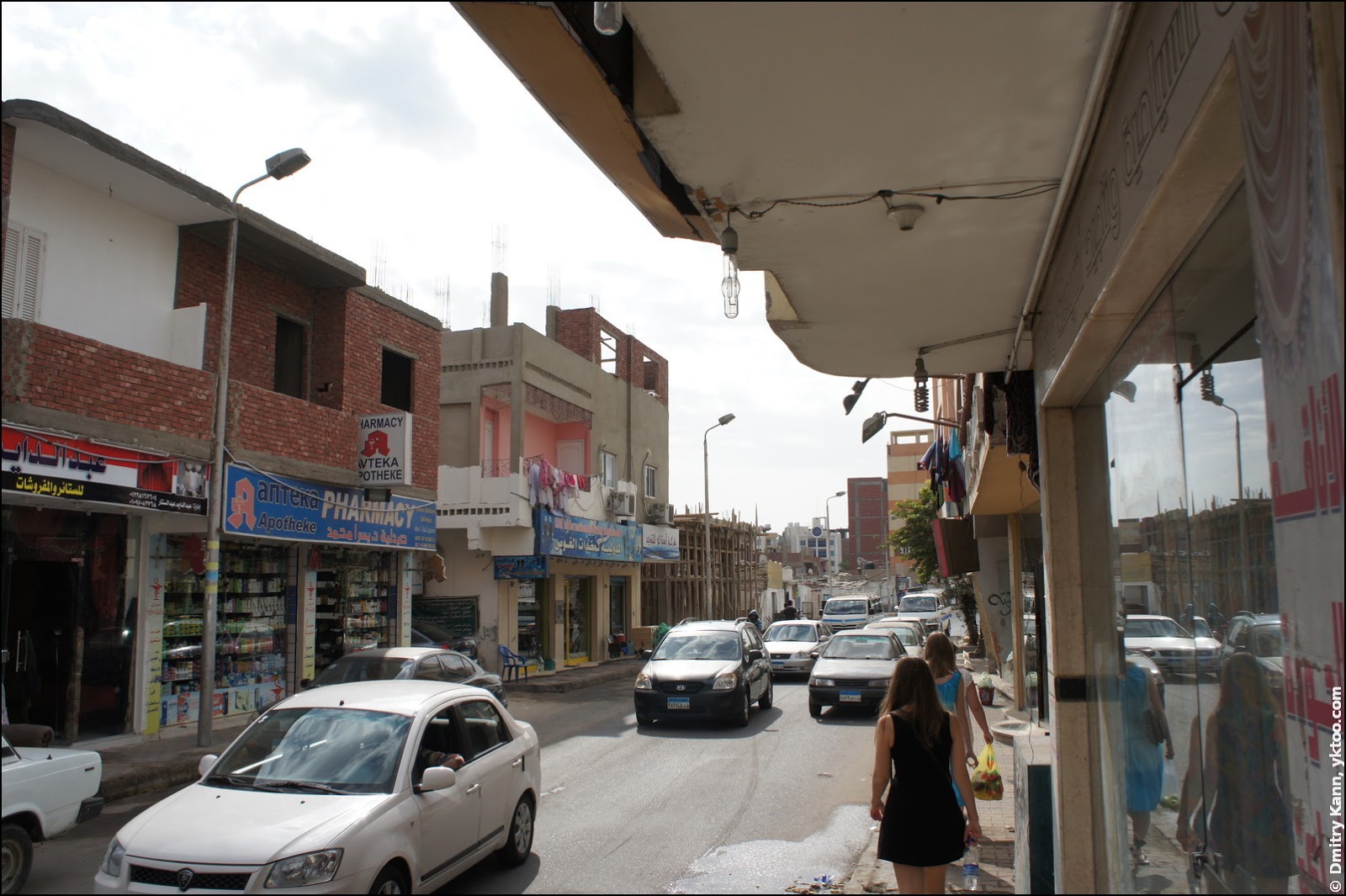
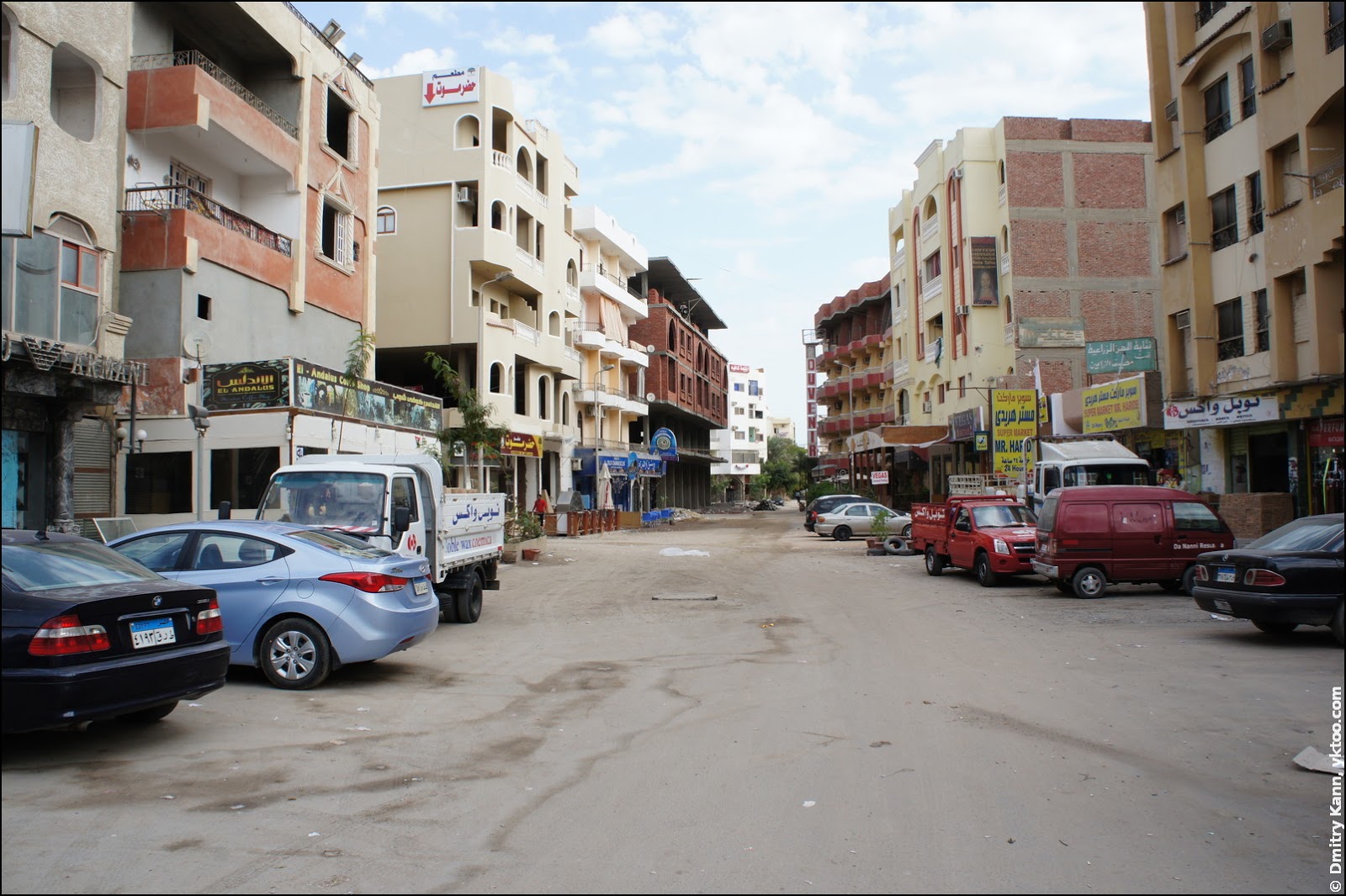
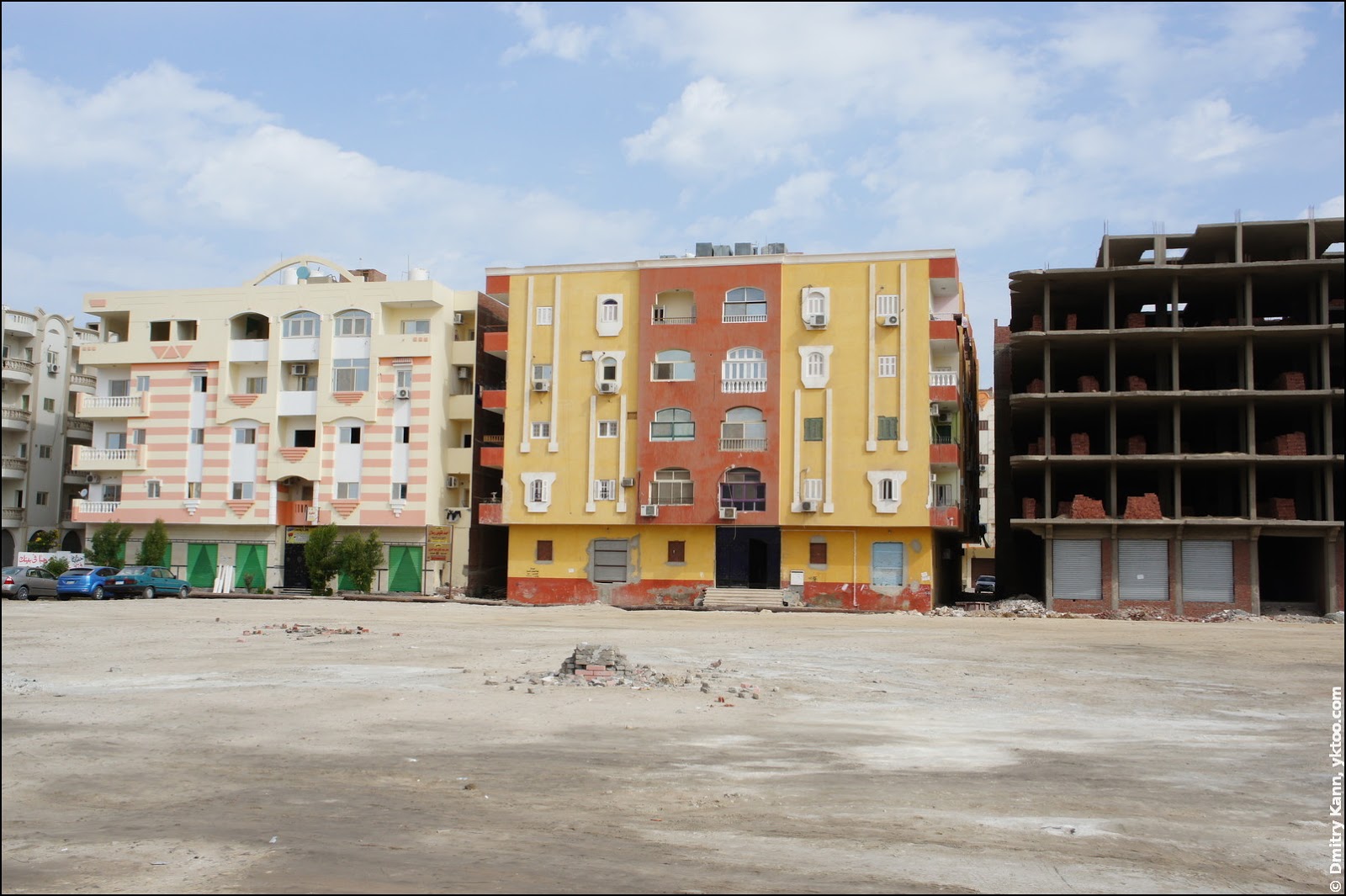
Streets of the city center are a bit cleaner:
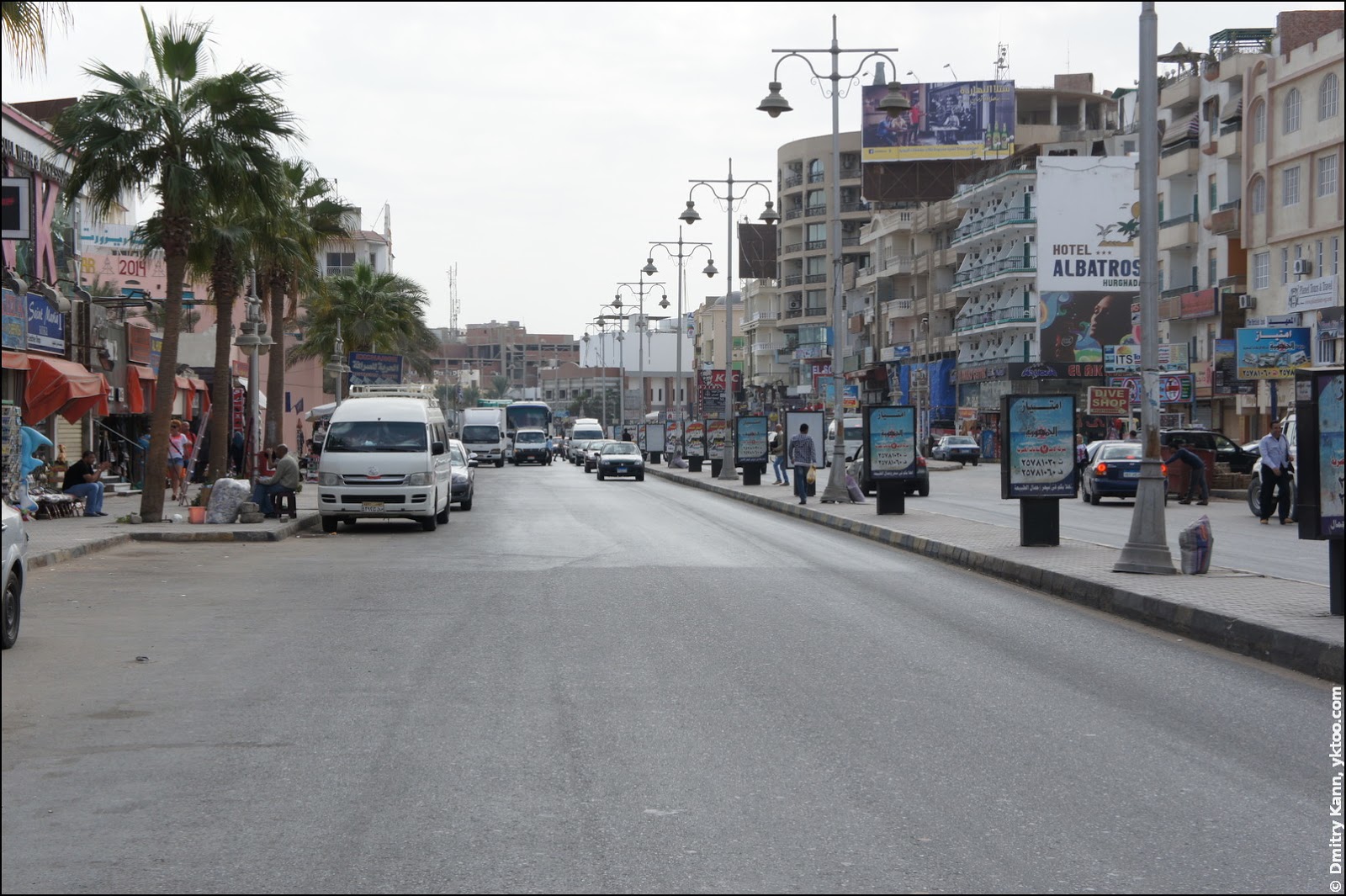
The cleaner sacks the dust with a broom and a piece of cardboard, and sets the sacks along the curb. He’s glad to pose for a photo:
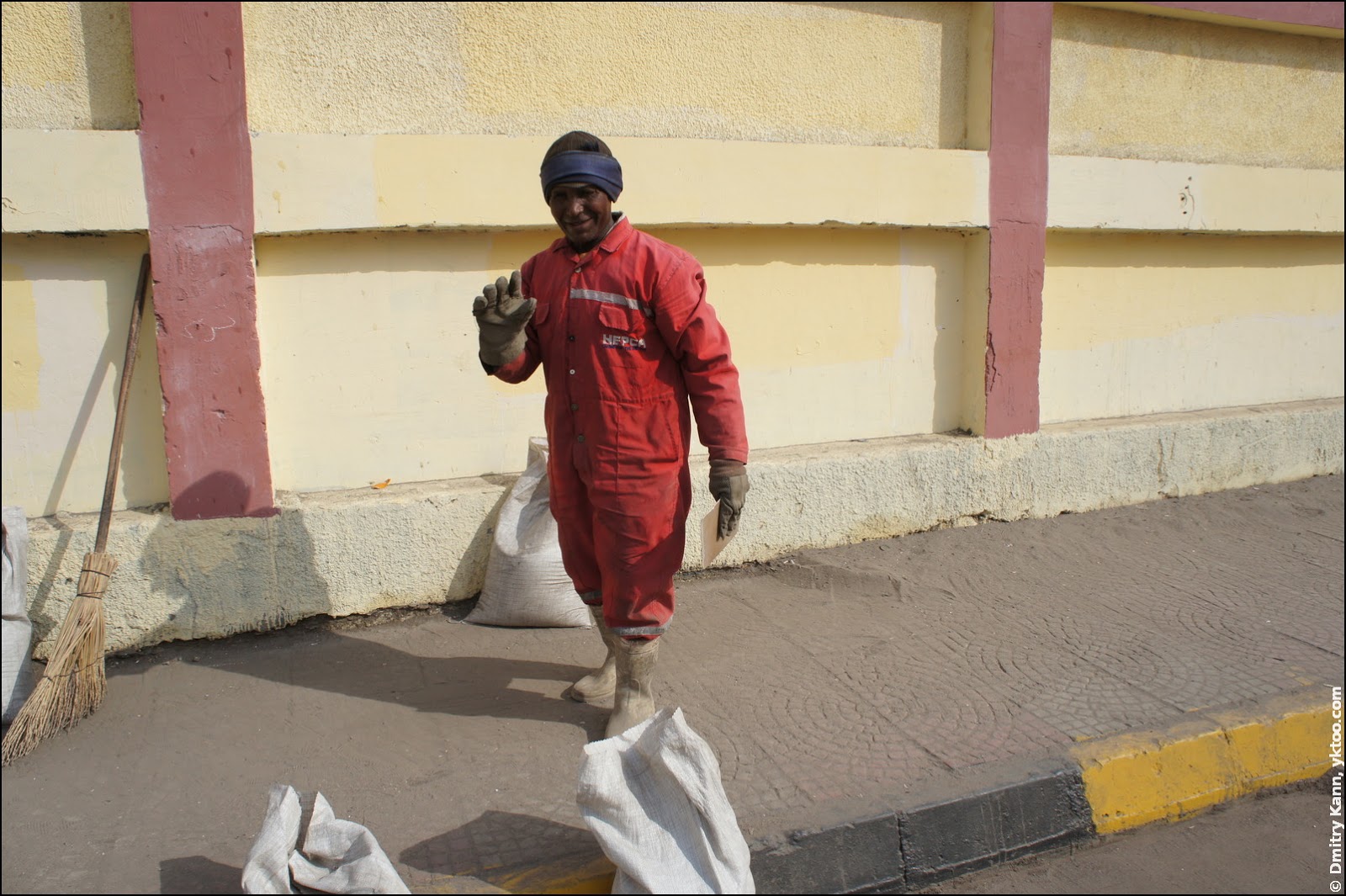
Apart from dust, there are lots of open rubbish bins and skinny cats making their living on them:
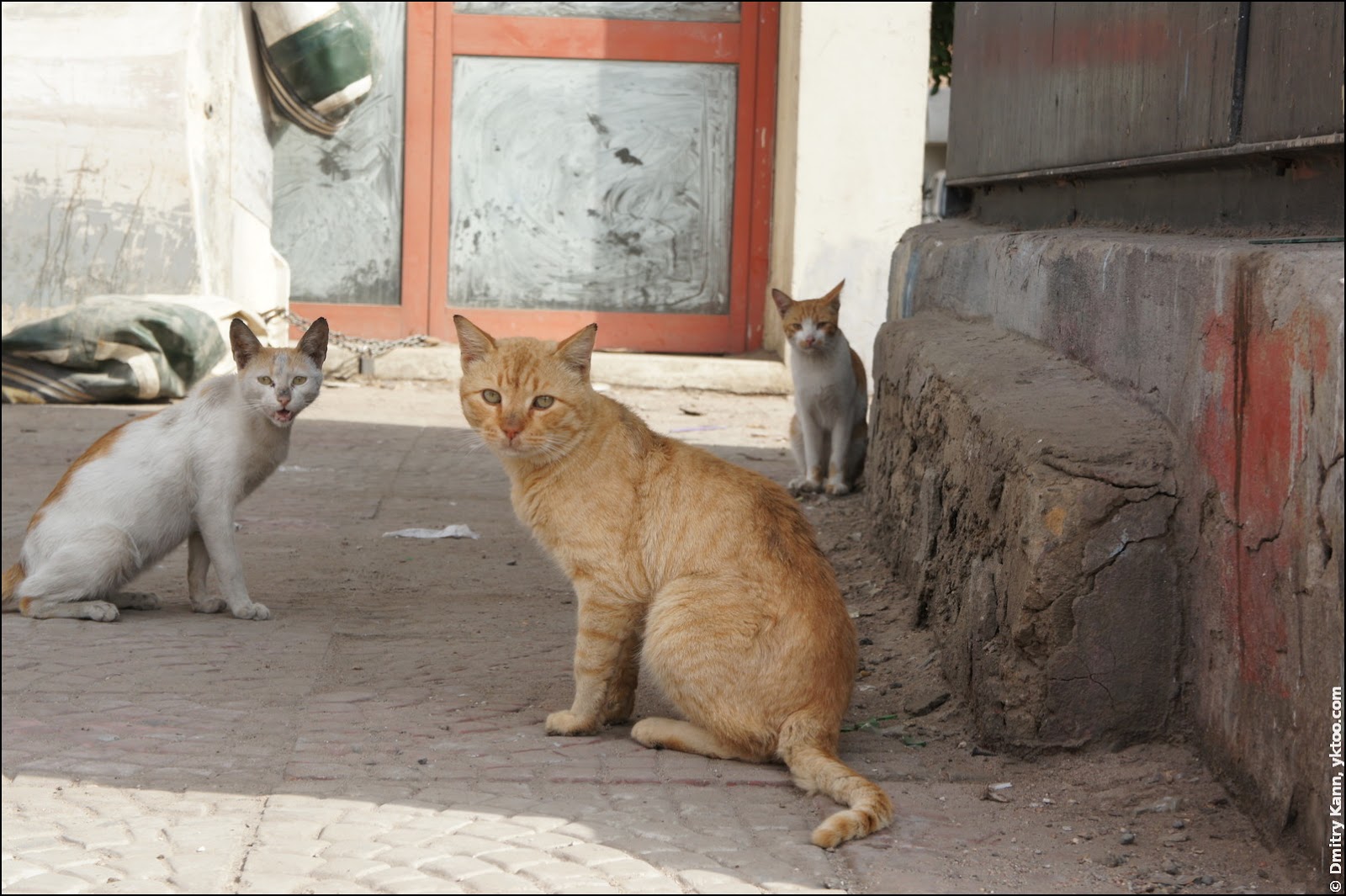
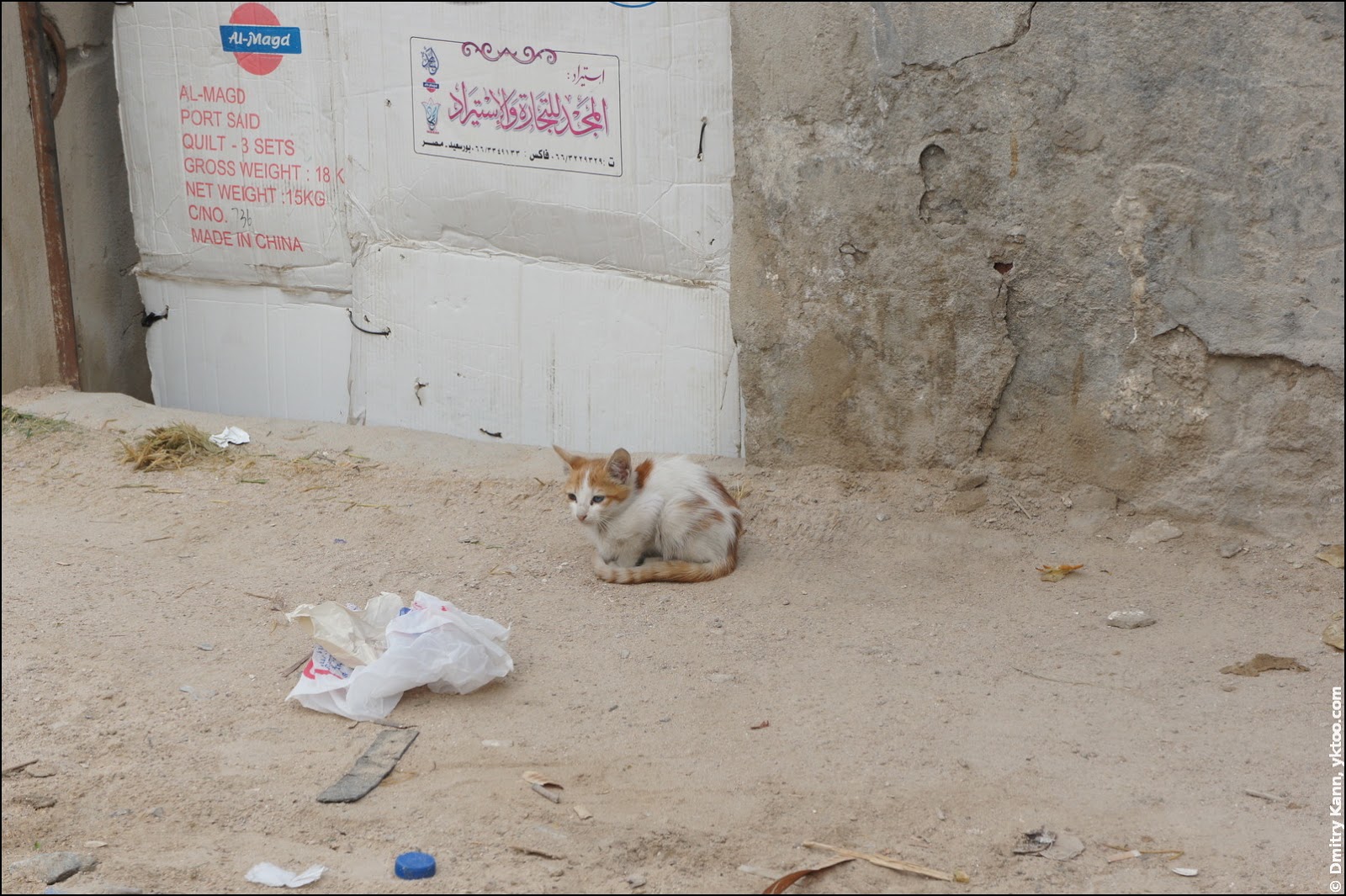
Sometimes, though, an effort of being sustainable is made:
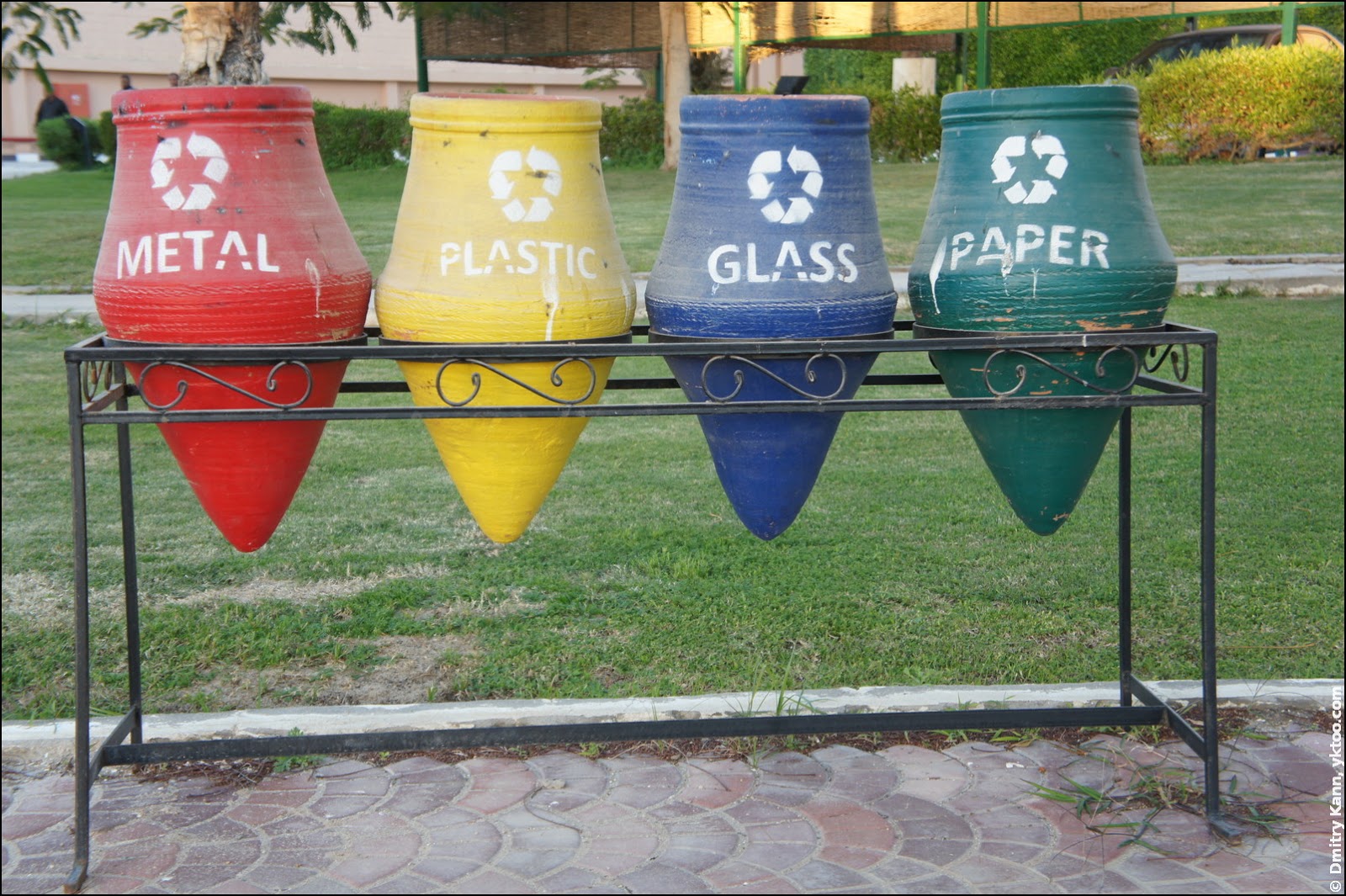
The info board seems to be able to withstand a missile attack:
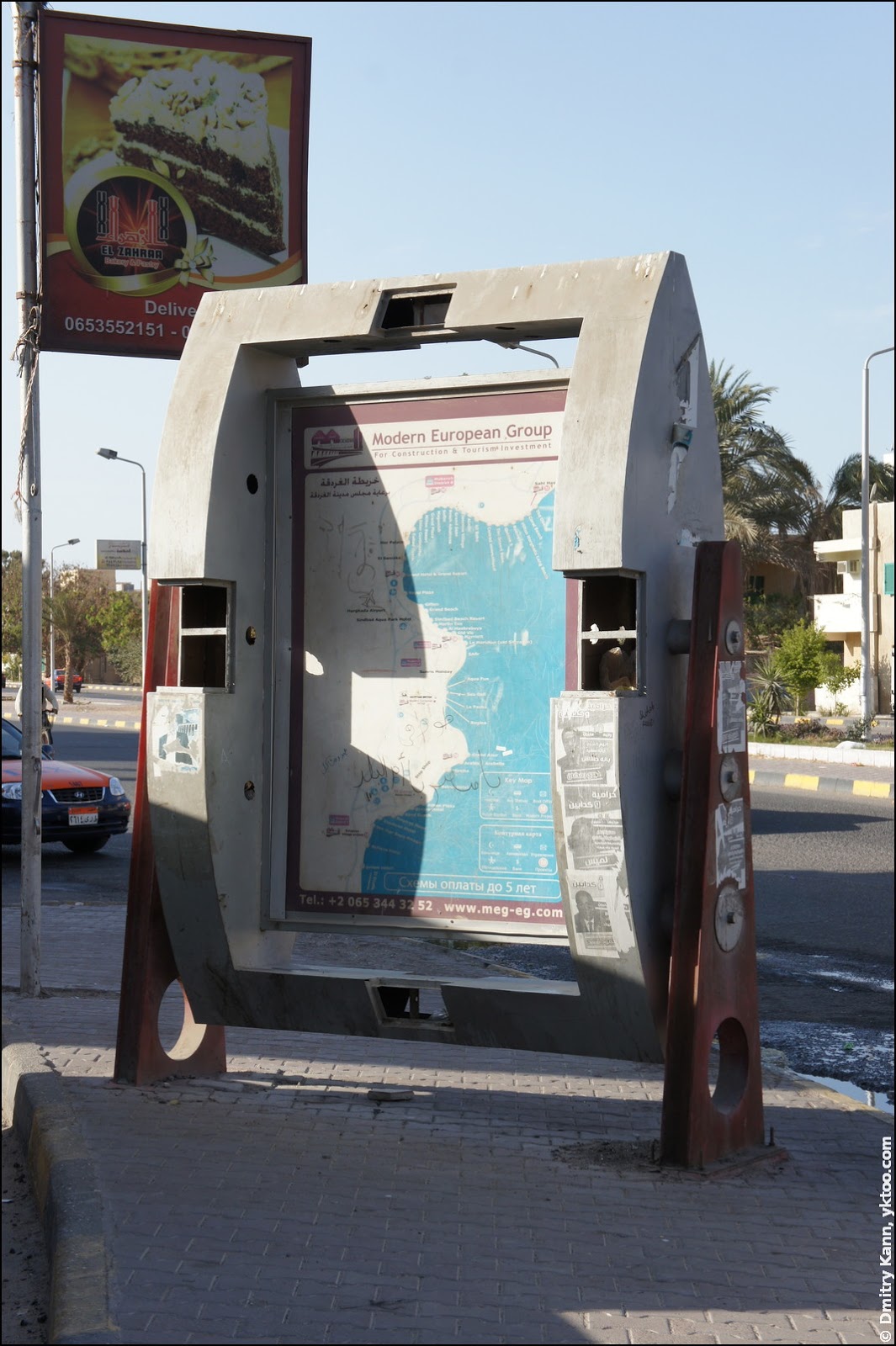
Additionally to car horns mentioned above, prayers are regularly broadcast all over the city, starting at five (!) in the morning. Powerful speakers are mounted on special towers for this purpose:
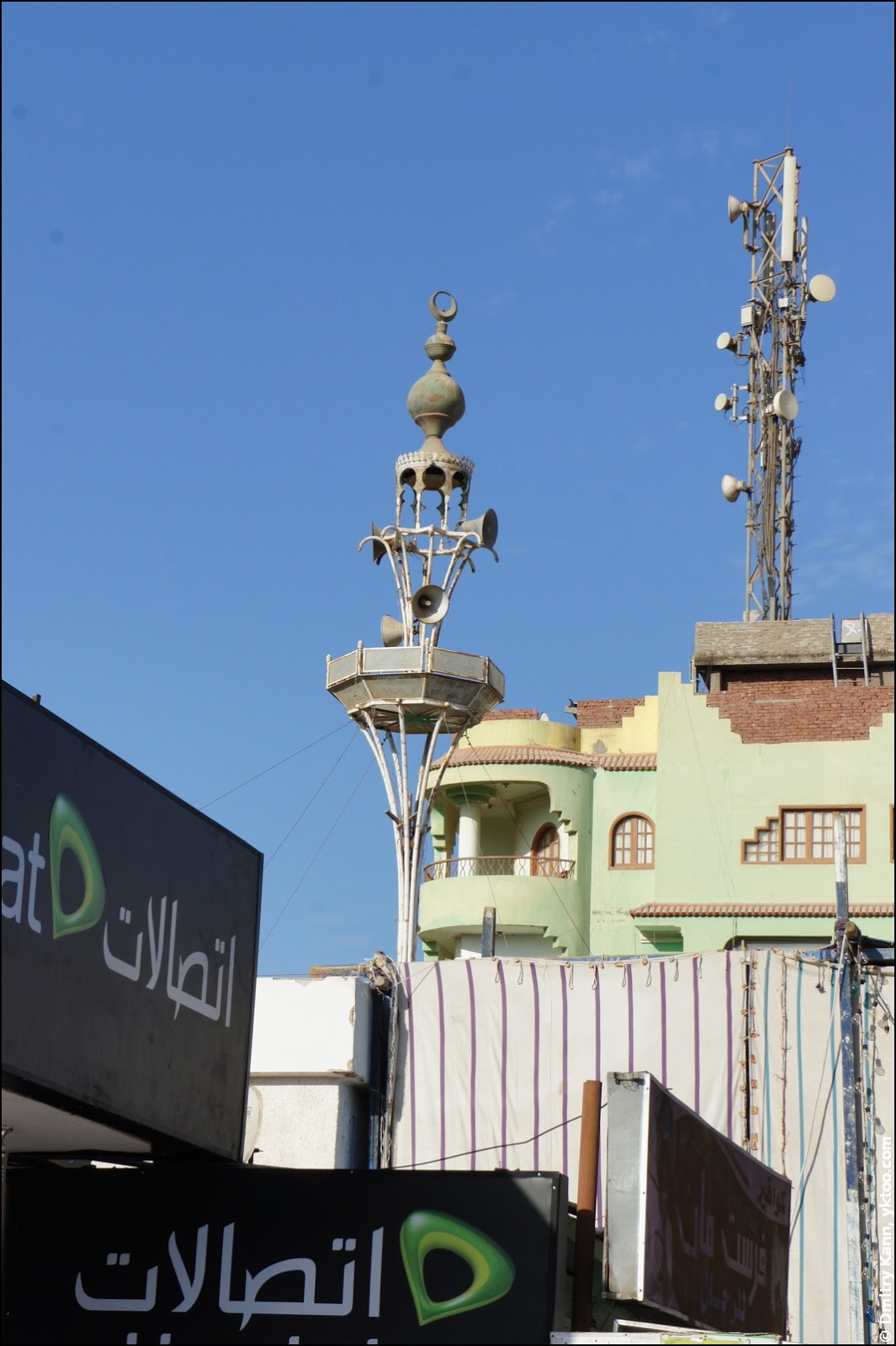
The speakers are also installed on numerous mosques:
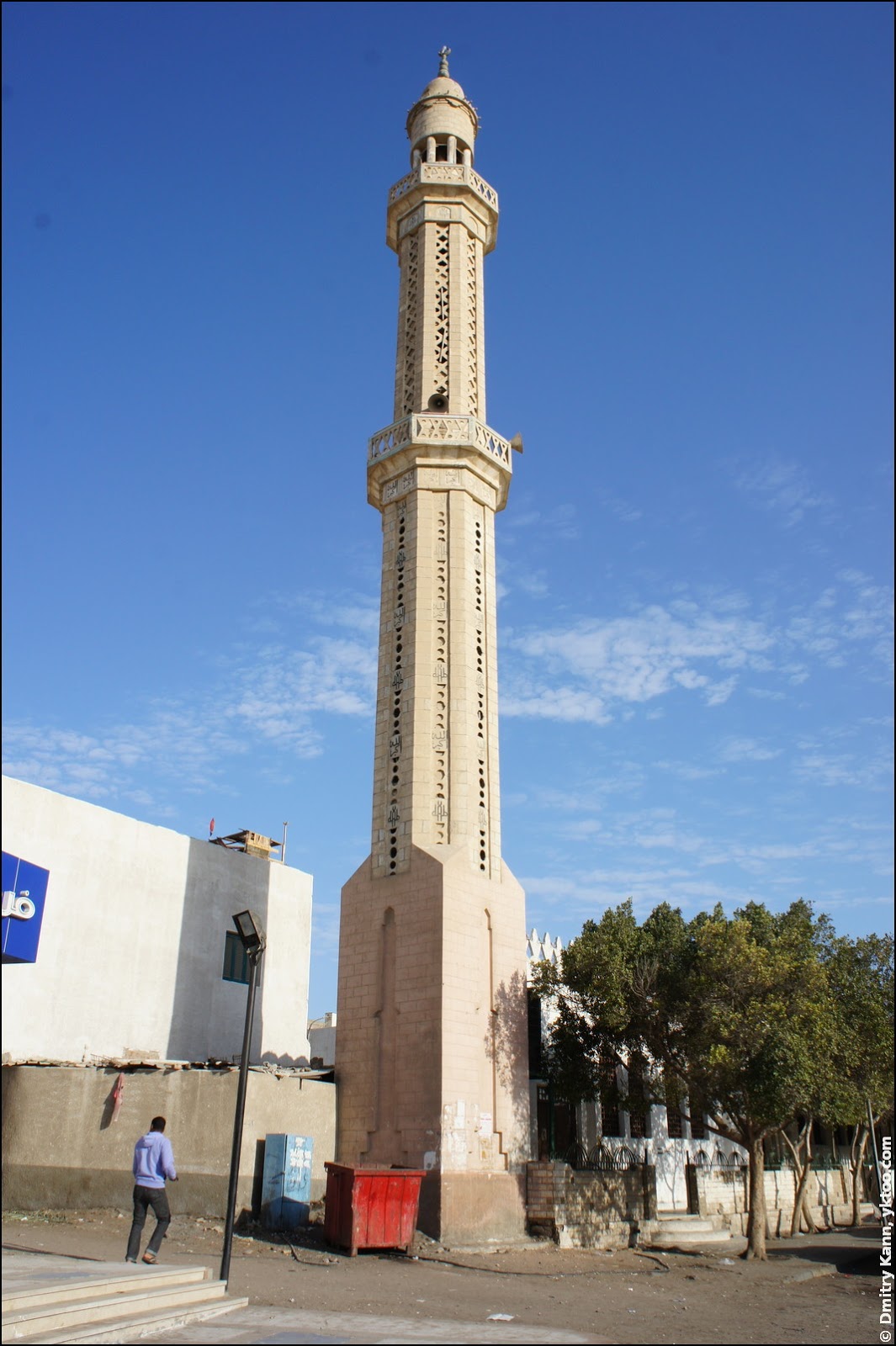
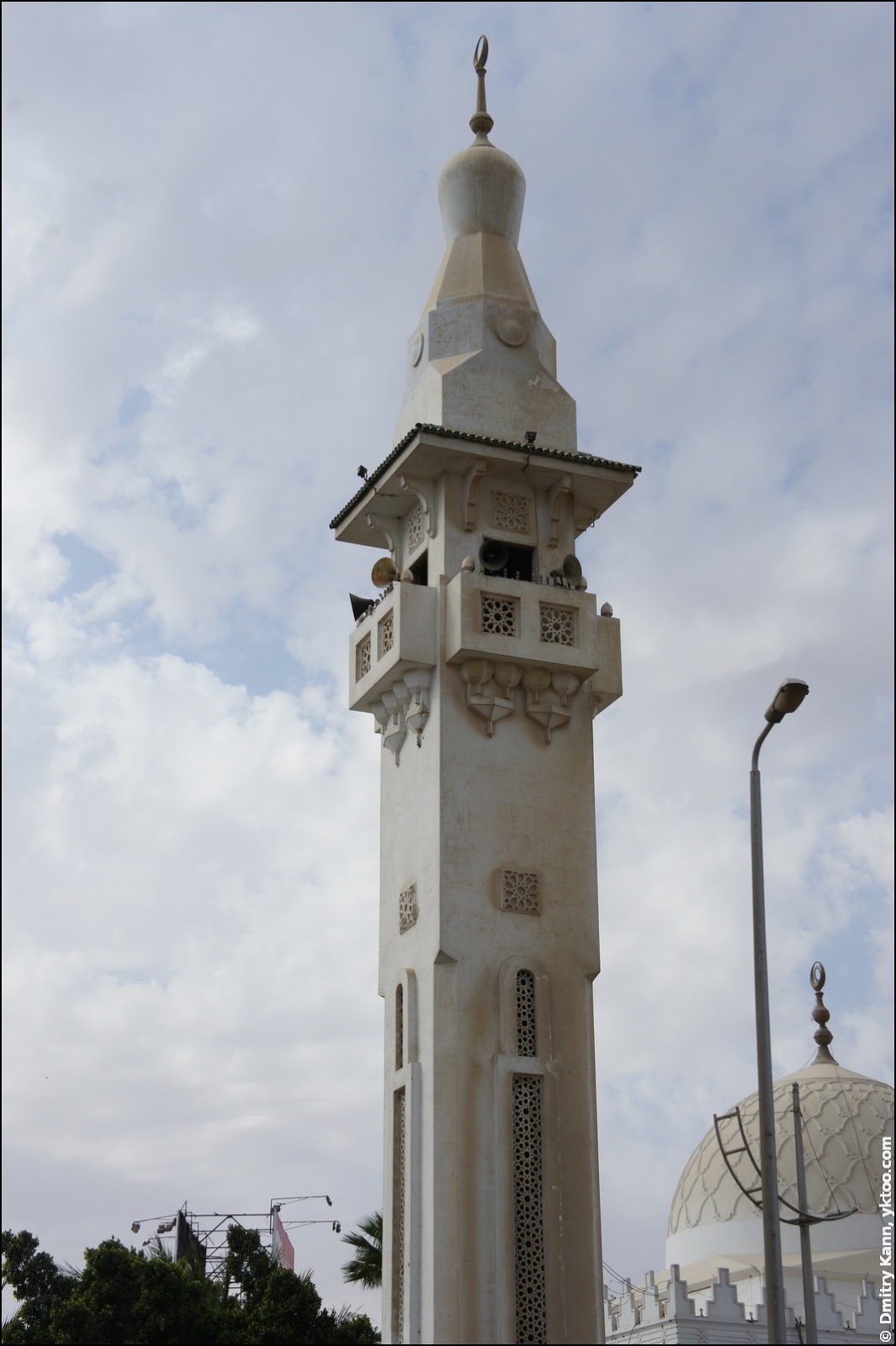
90% of the Egyptians are Muslims and 9% are Coptic Christians. Even though it’s claimed to be top-safe, the Coptic church is equipped with security posts and guarded by men with machine-guns:
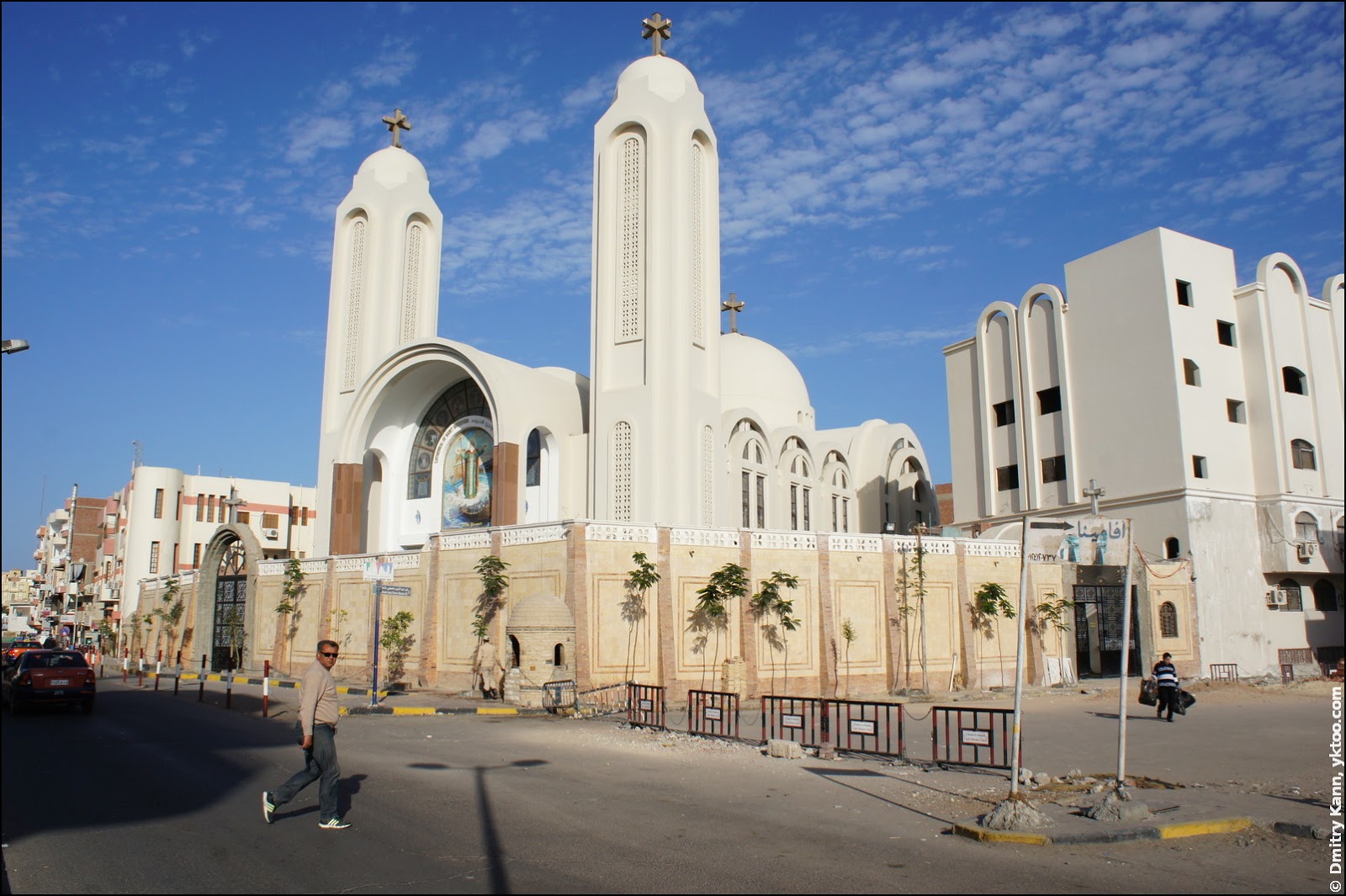
Street merchants offer anything you can think of, like meat:
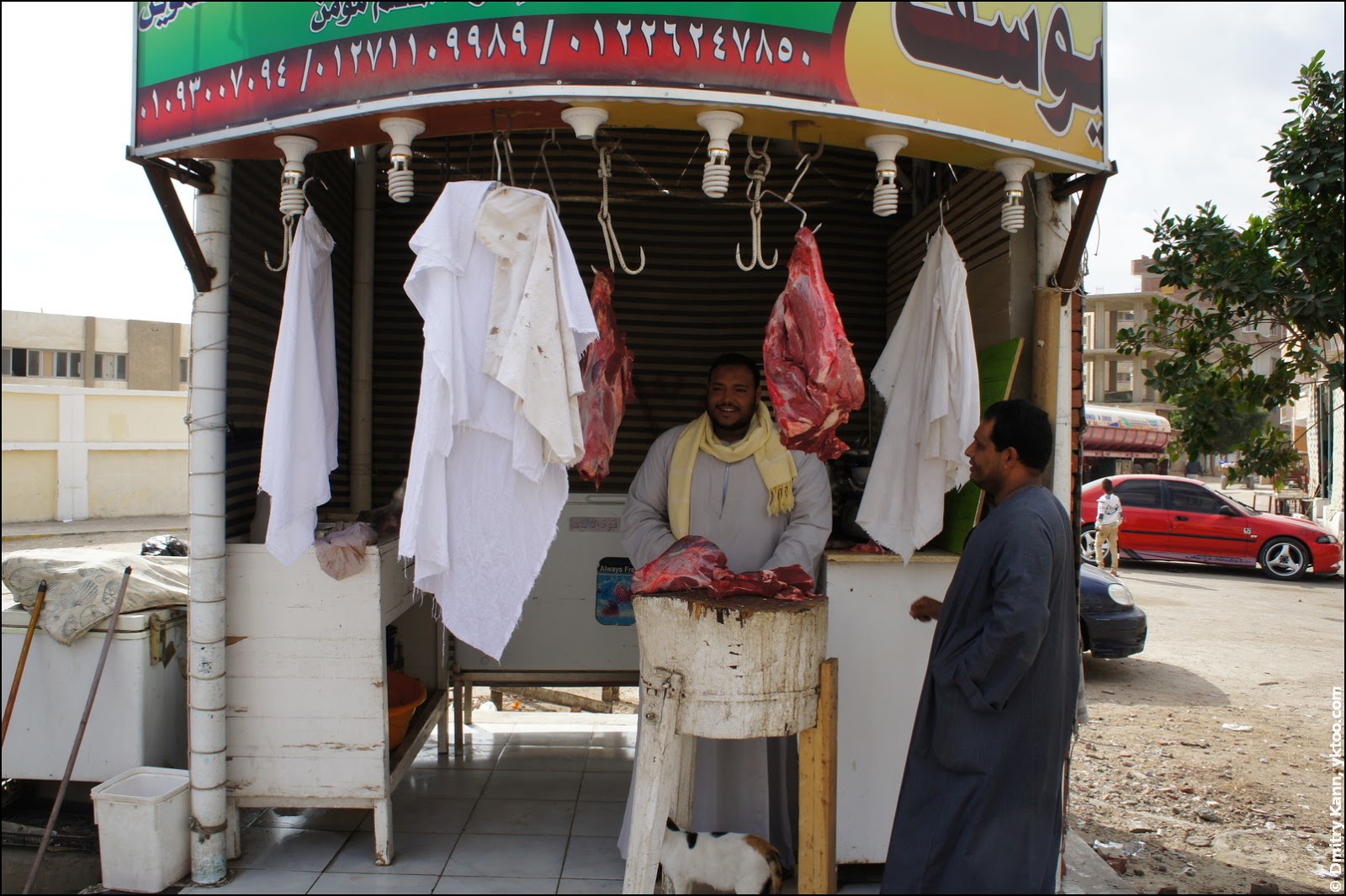
Vegetables and fruits (no price tag provided):
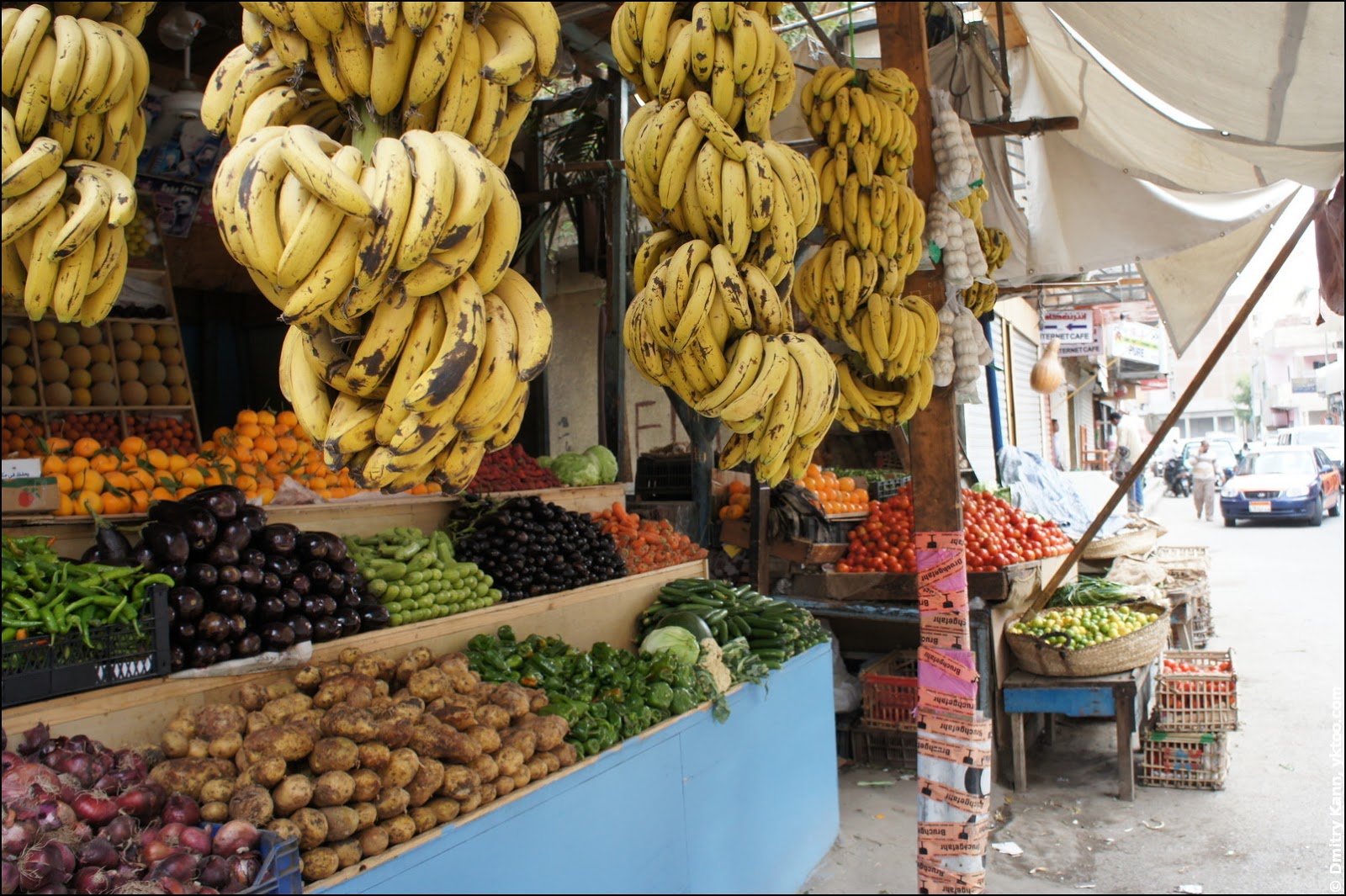
Karkade tea, some roots and stones:
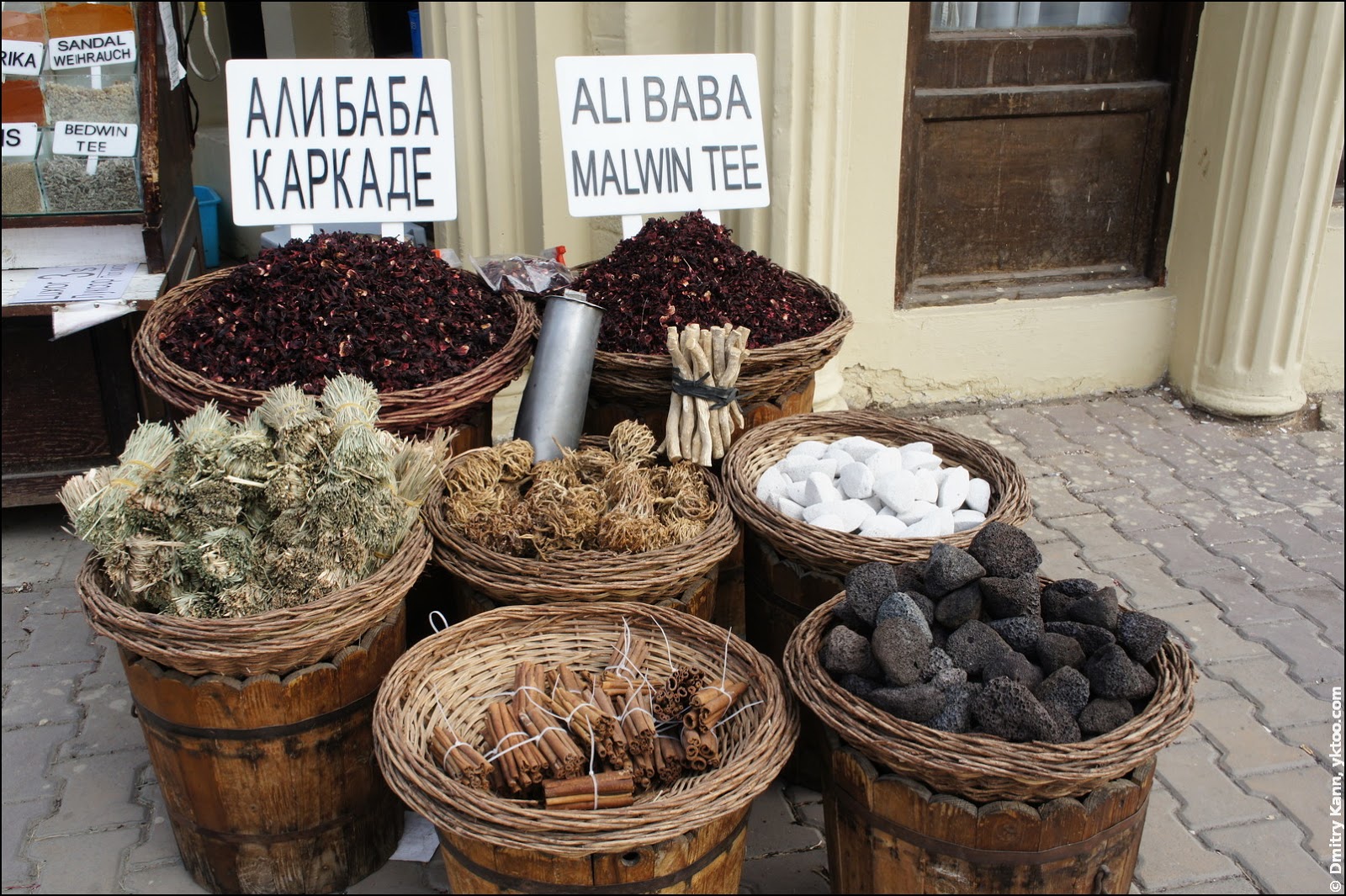
Herbs and spices, which are put right on the roadside and hence dusted, so I wonder who really buys them:
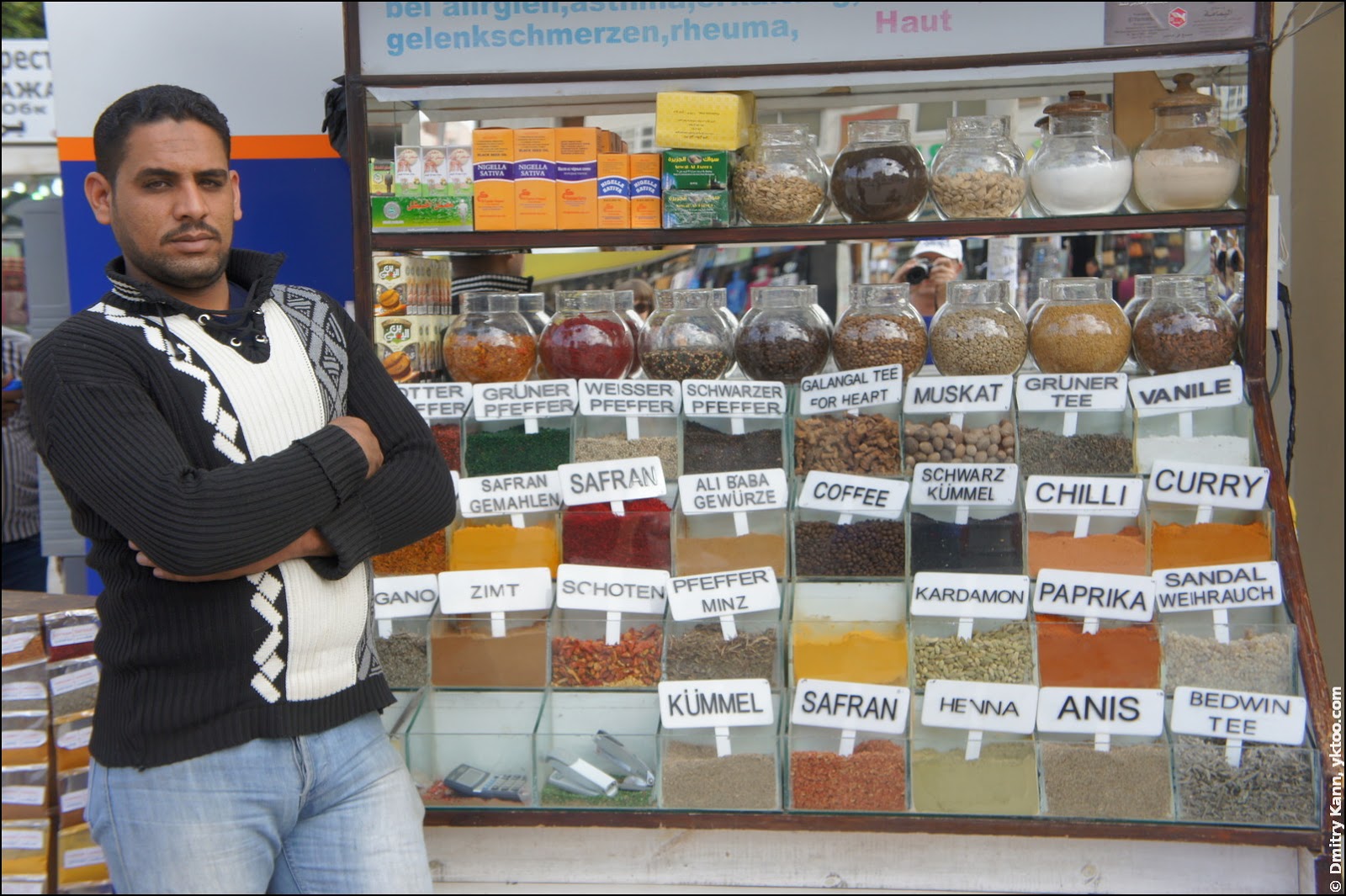
Live chickens:
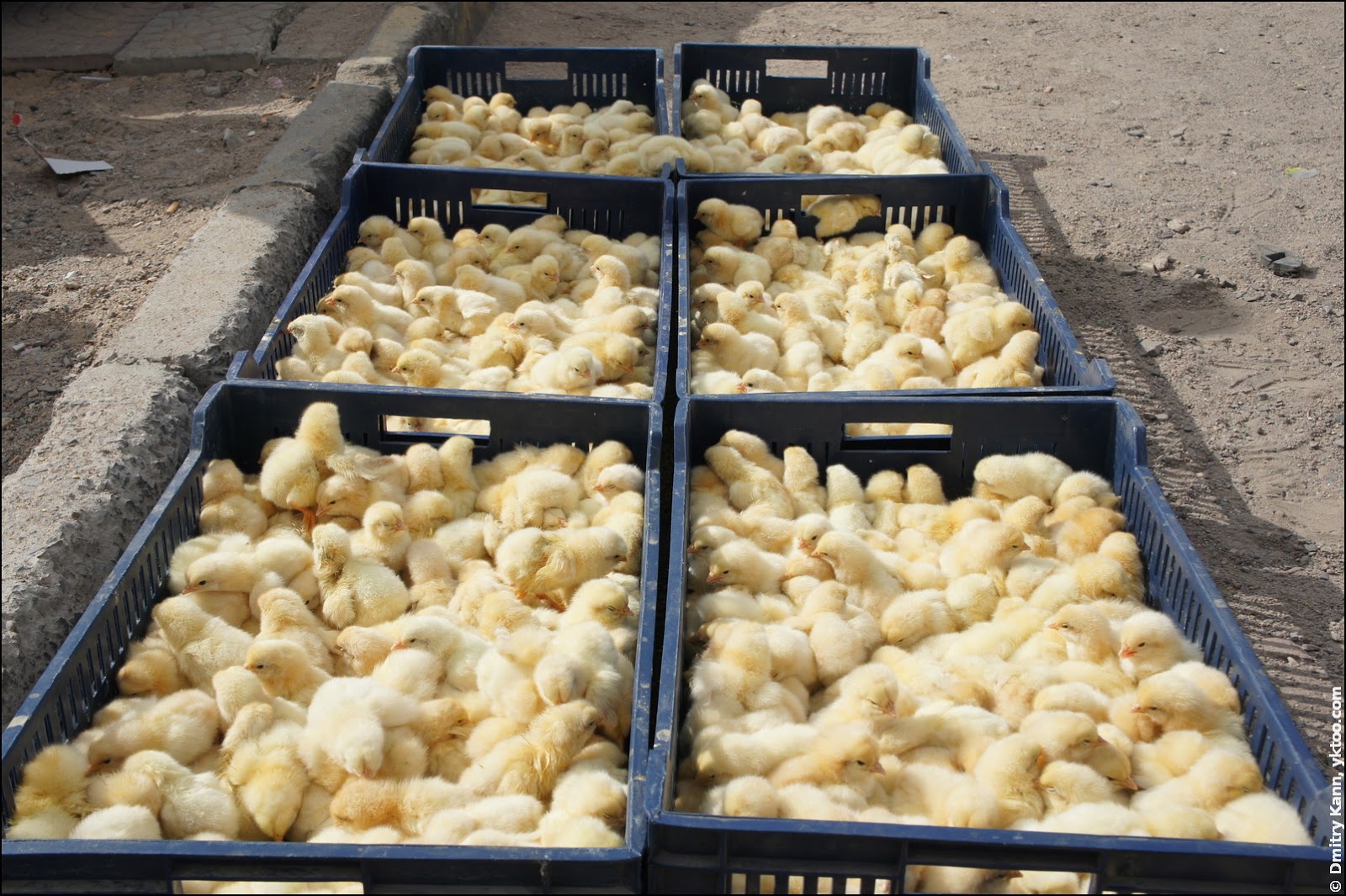
And the most precious thing in Egypt, drinking water, transported by numerous lorries:
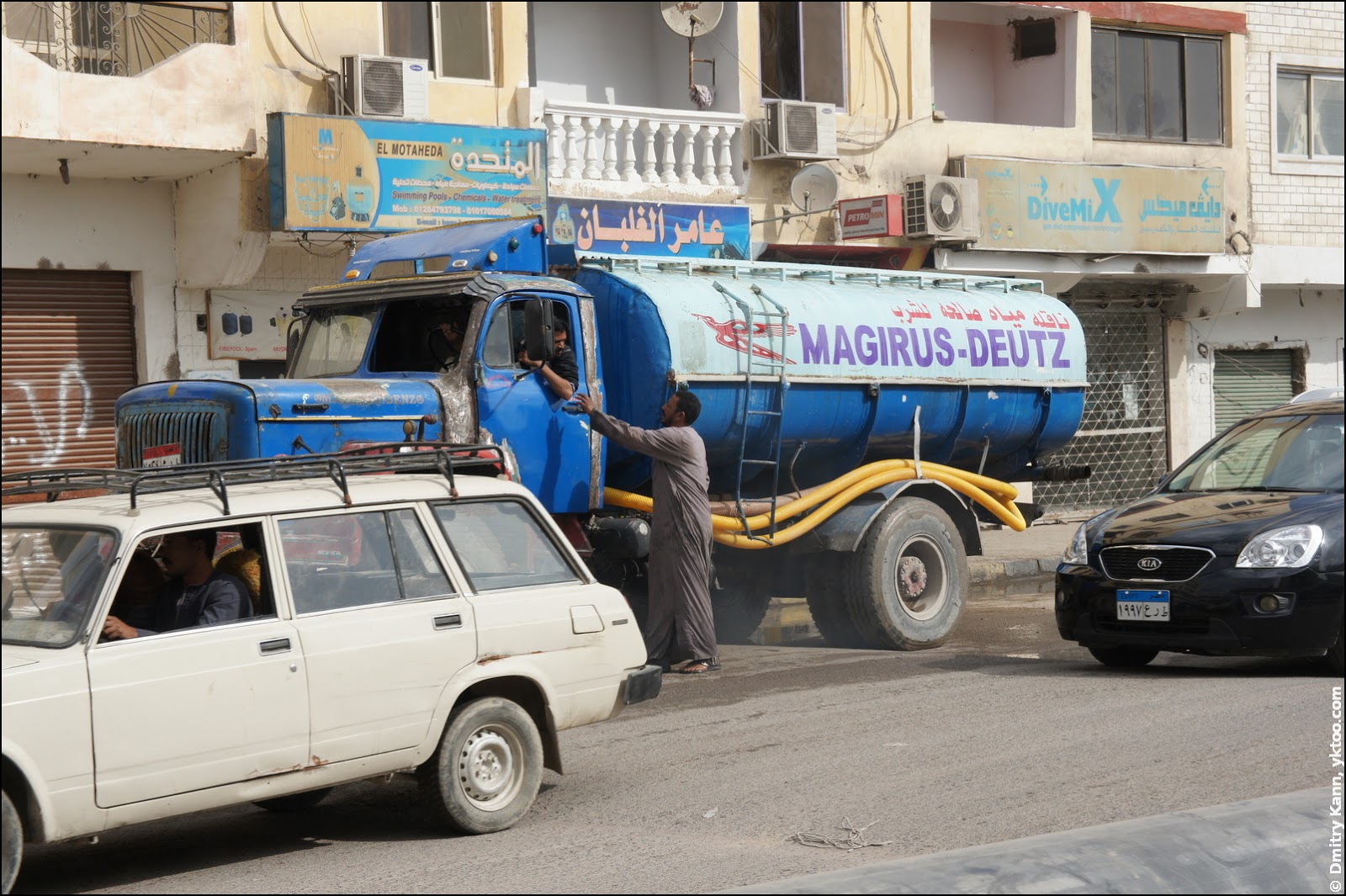
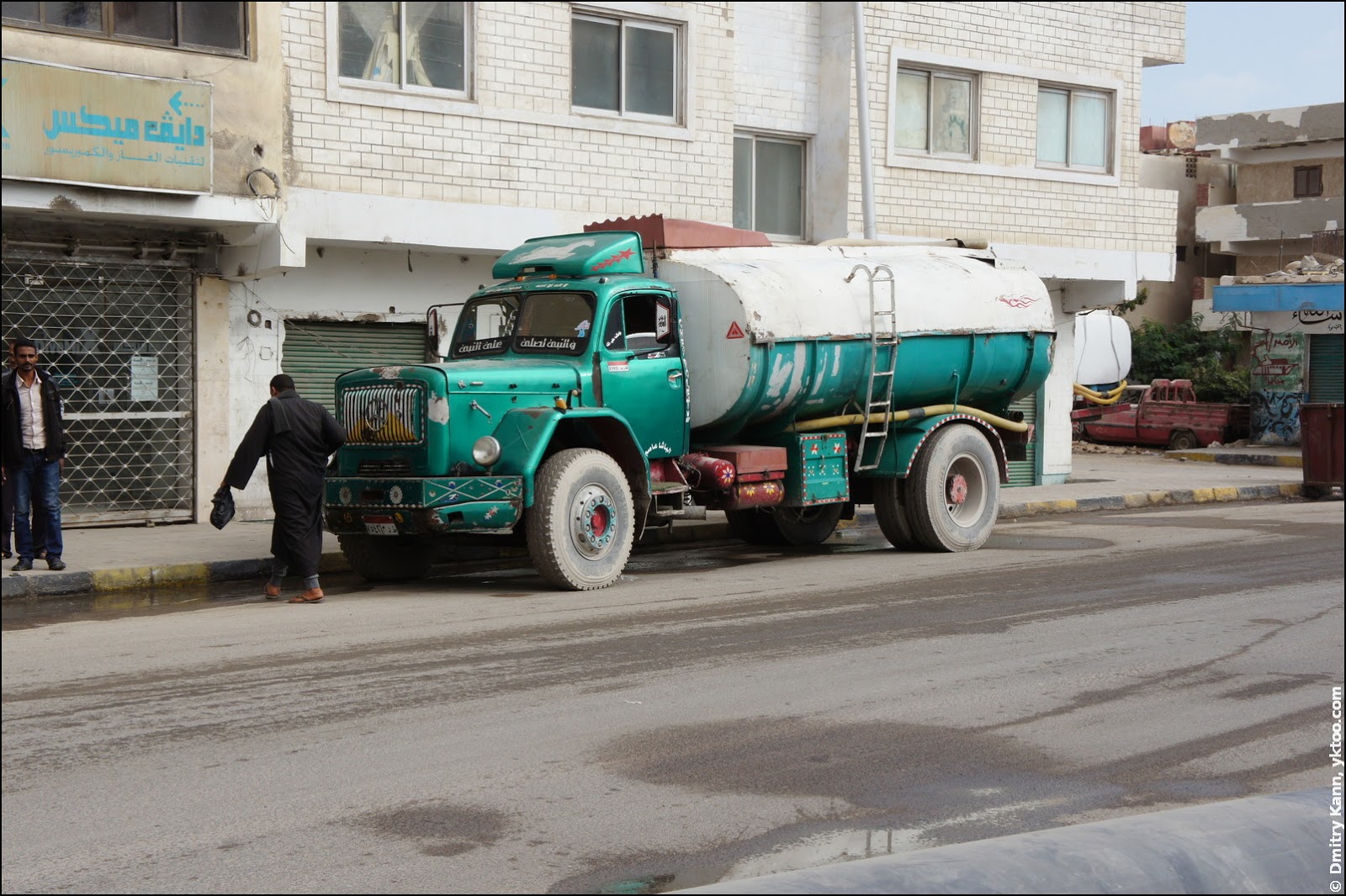
Hurghada primary school. Arab kids look at the world through the hole in the gate:
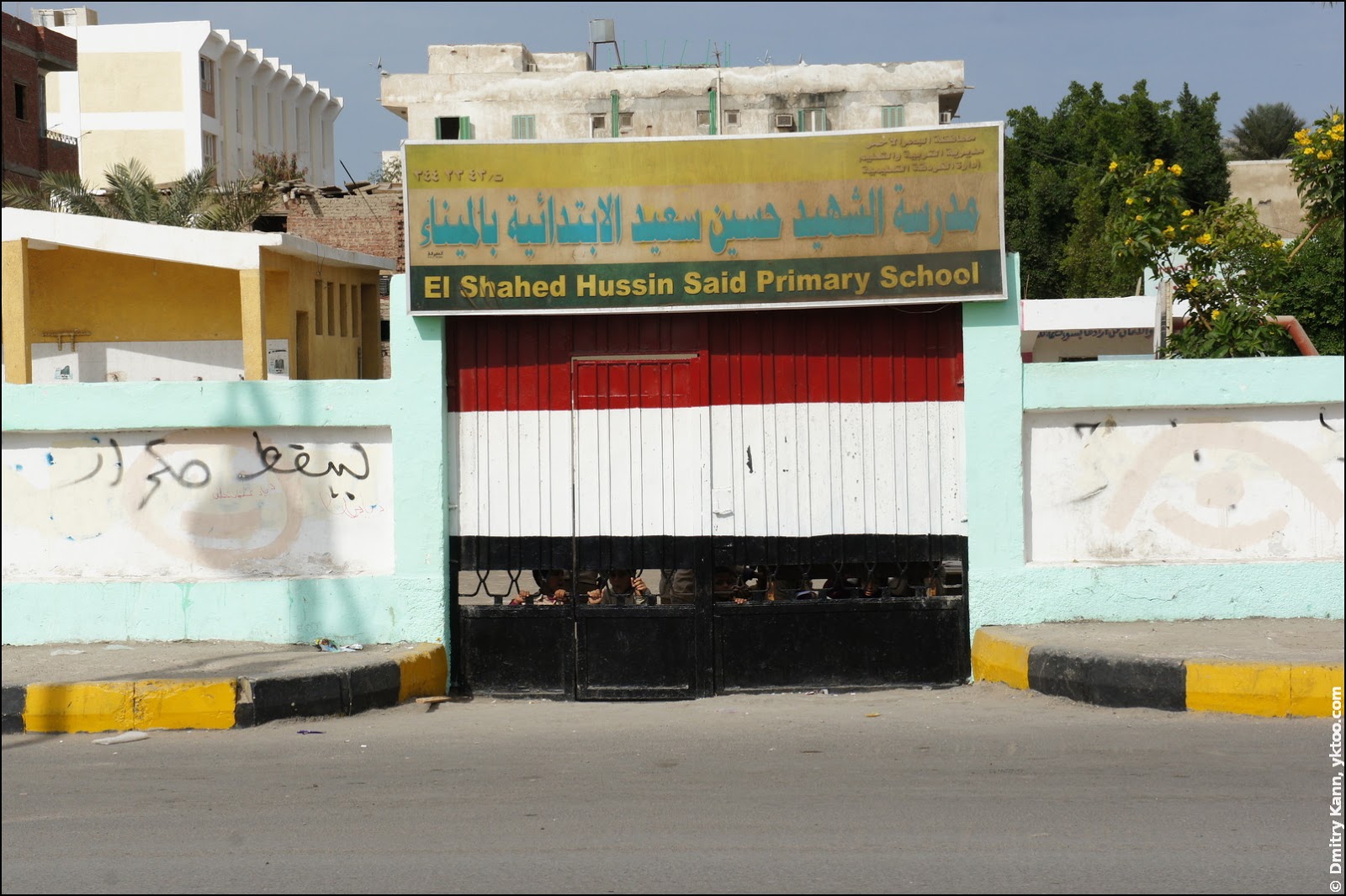
Symbol of the national pride:
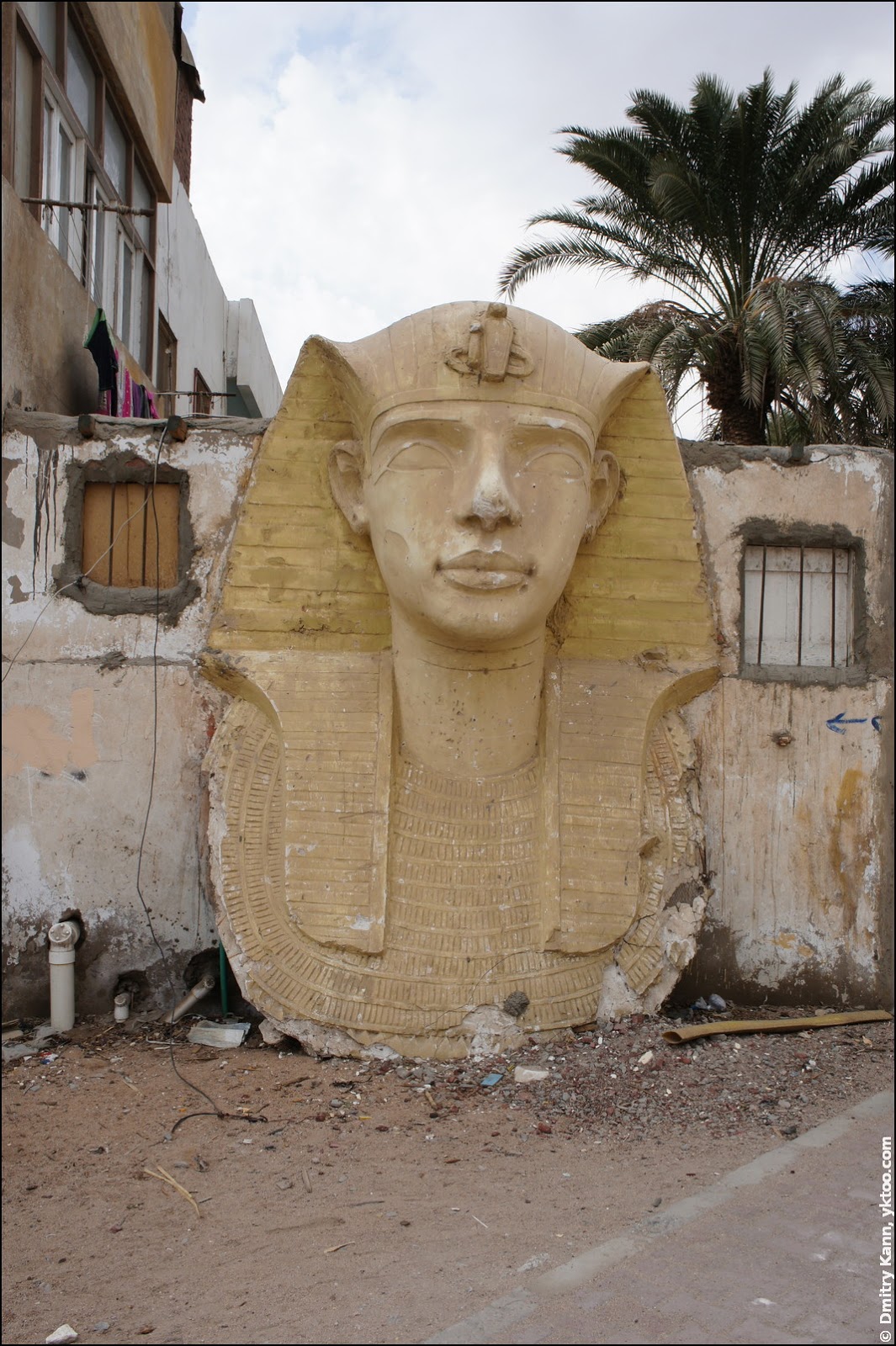
Russian Hurghada
As some ninety percent of the tourists are Russian, a lot of stores are labeled in this language. If you don’t understand Russian, you can safely skip this chapter.
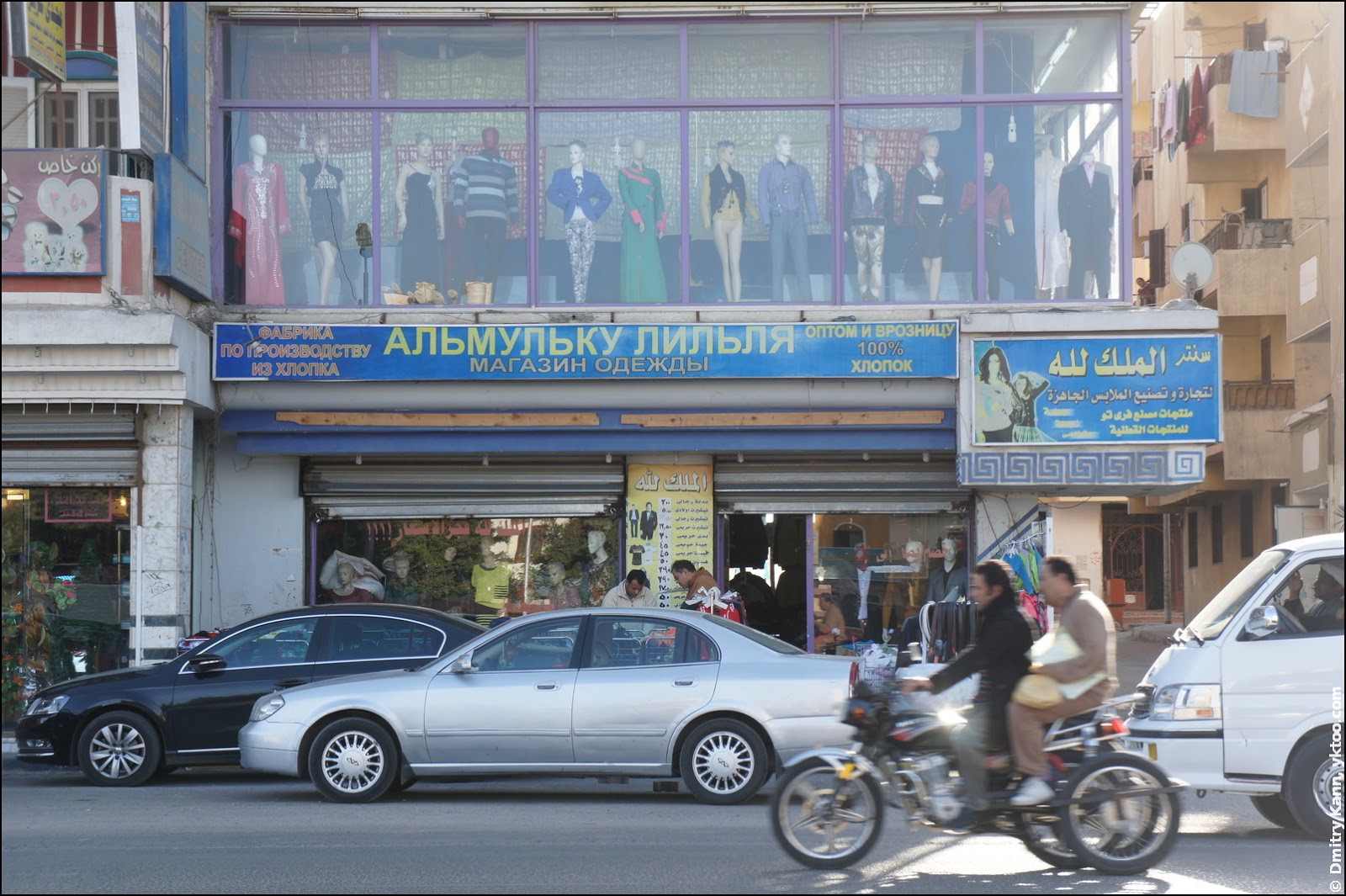
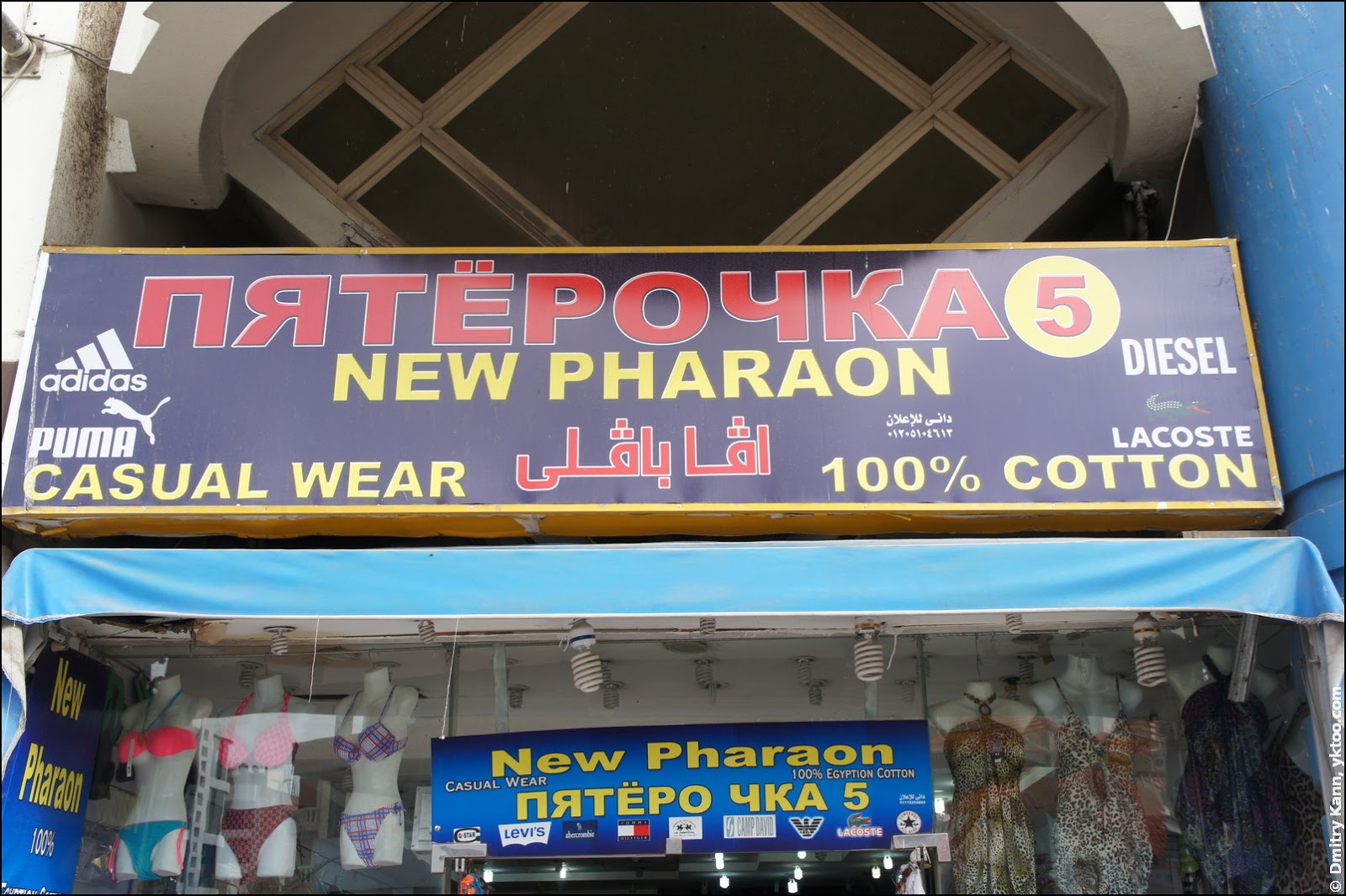
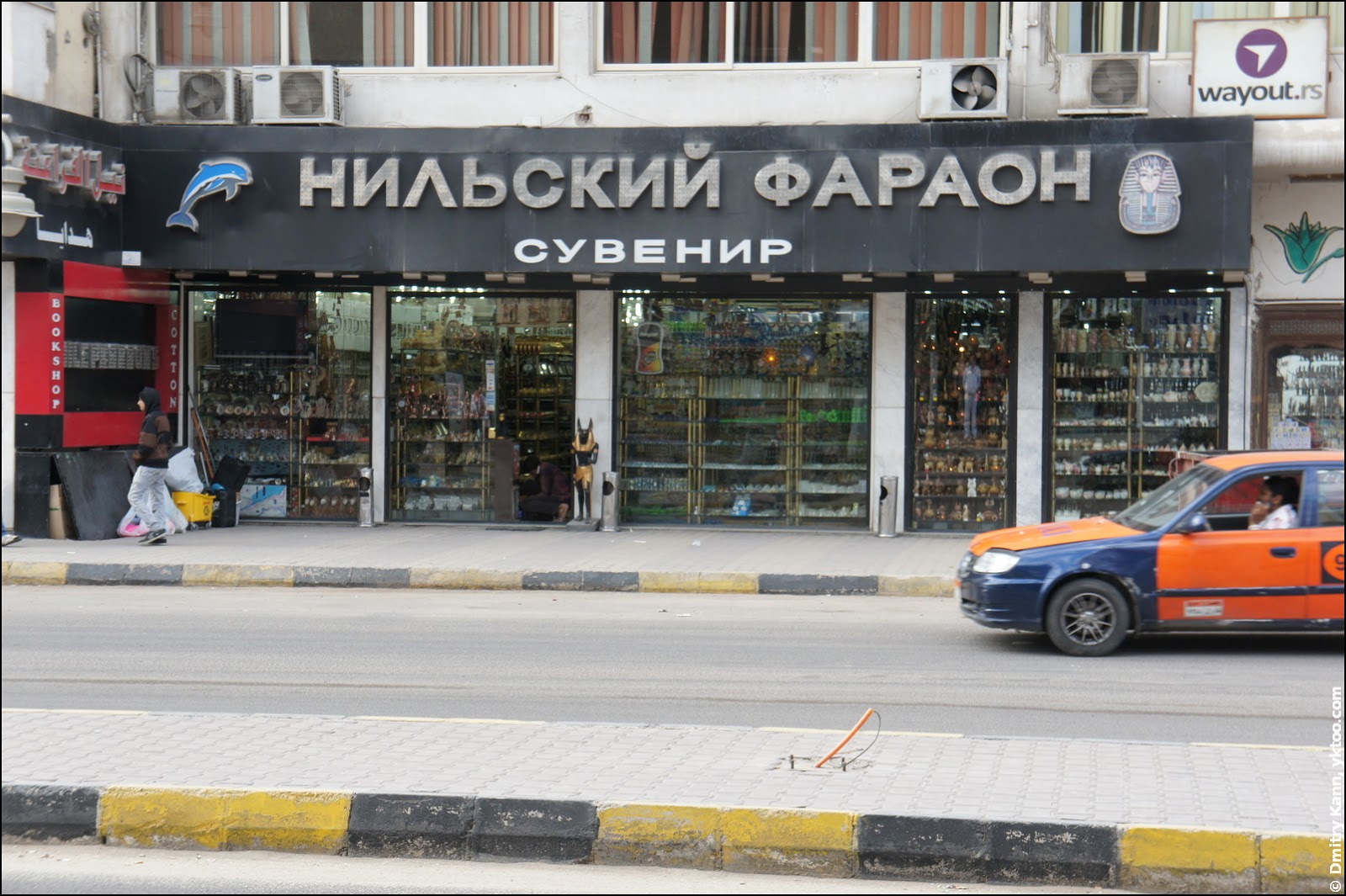
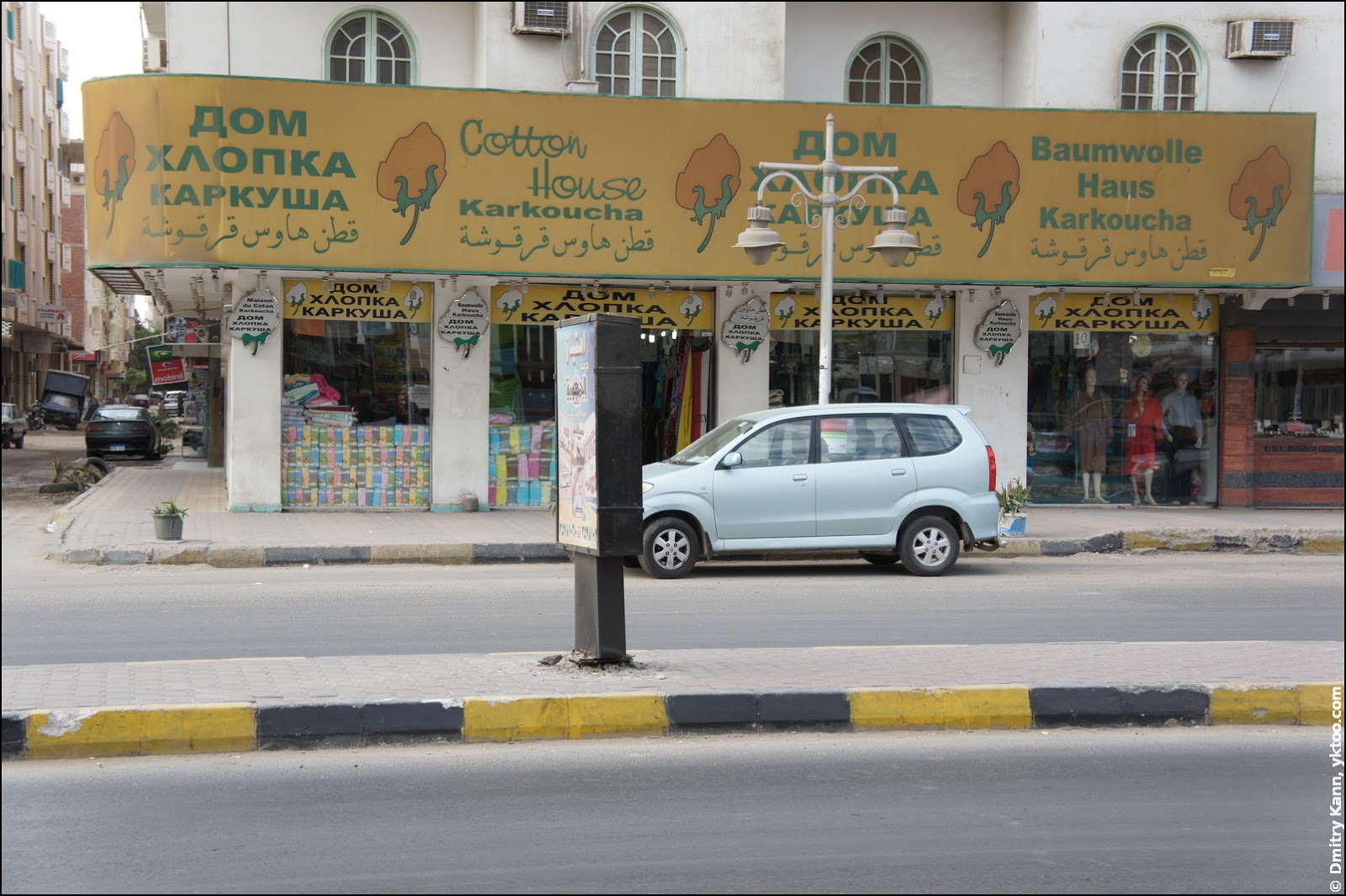
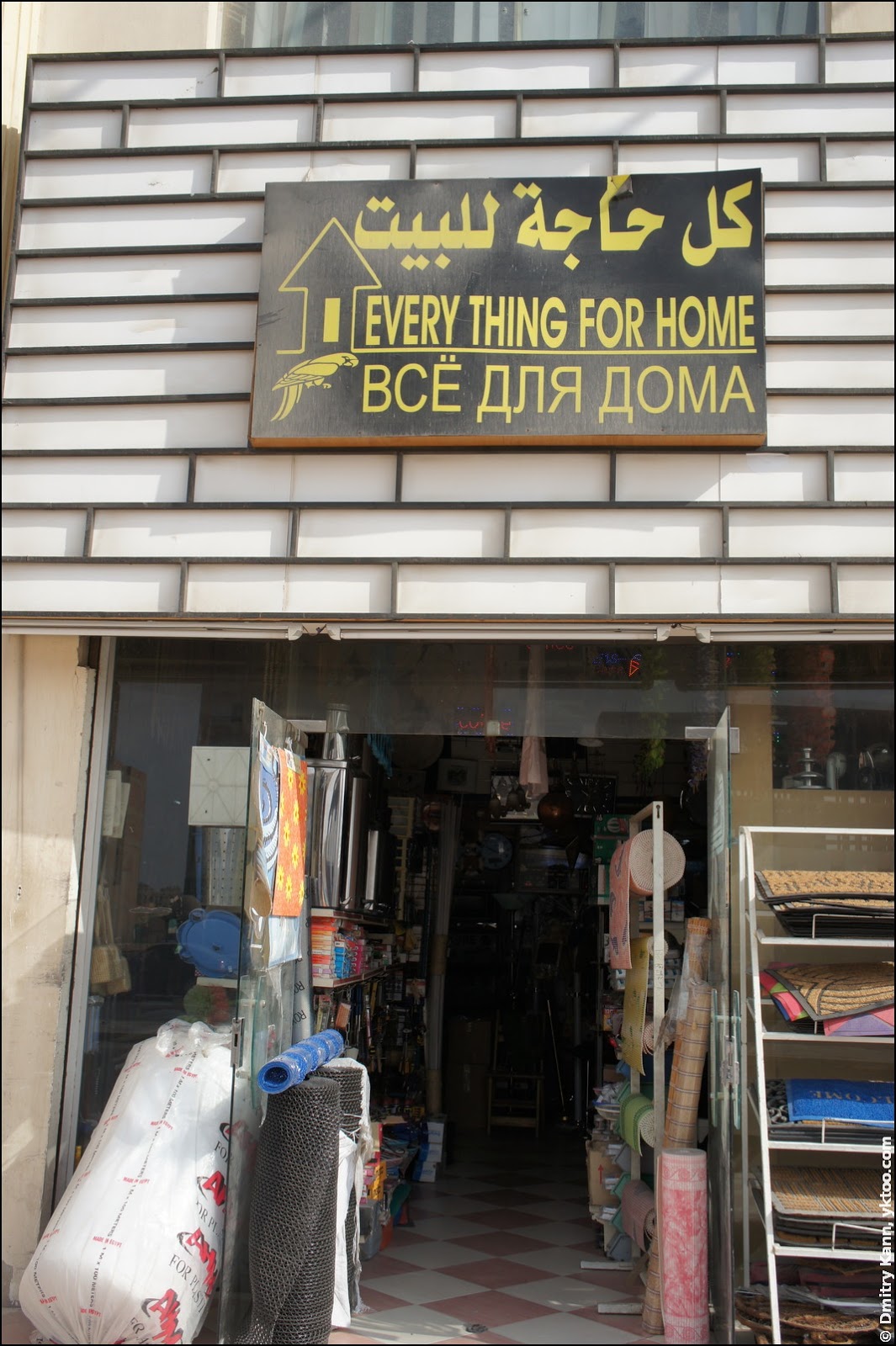
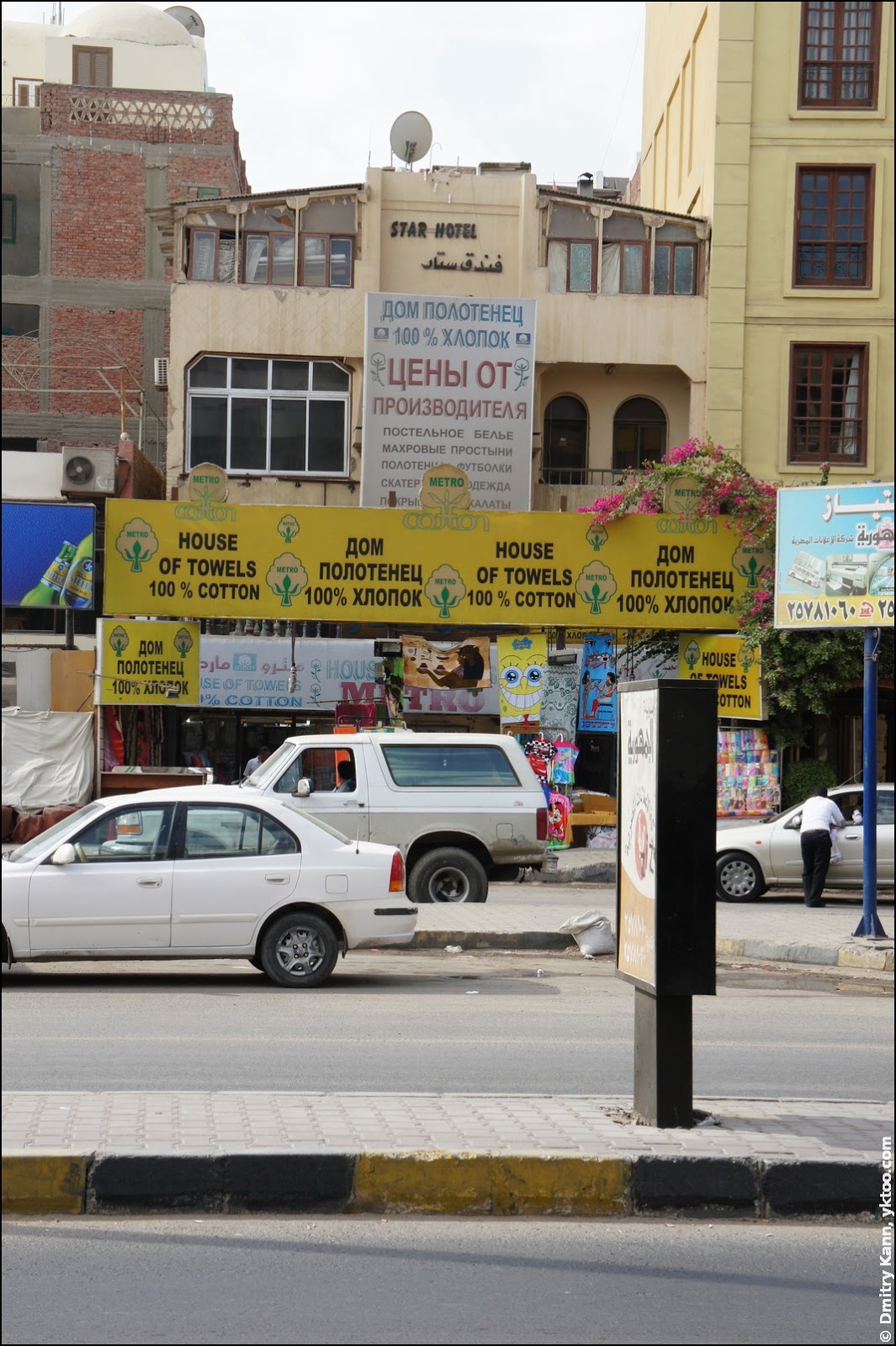
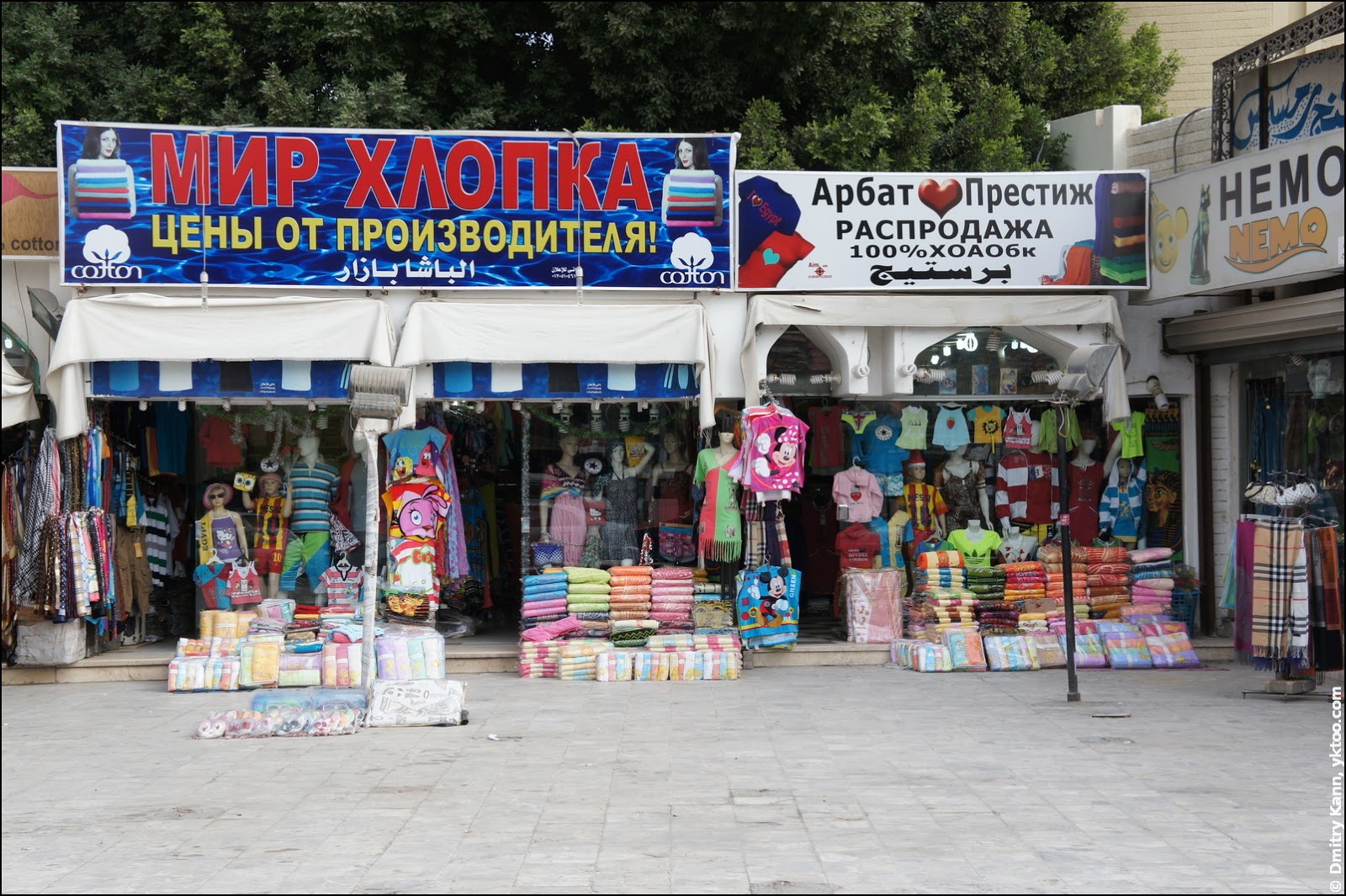
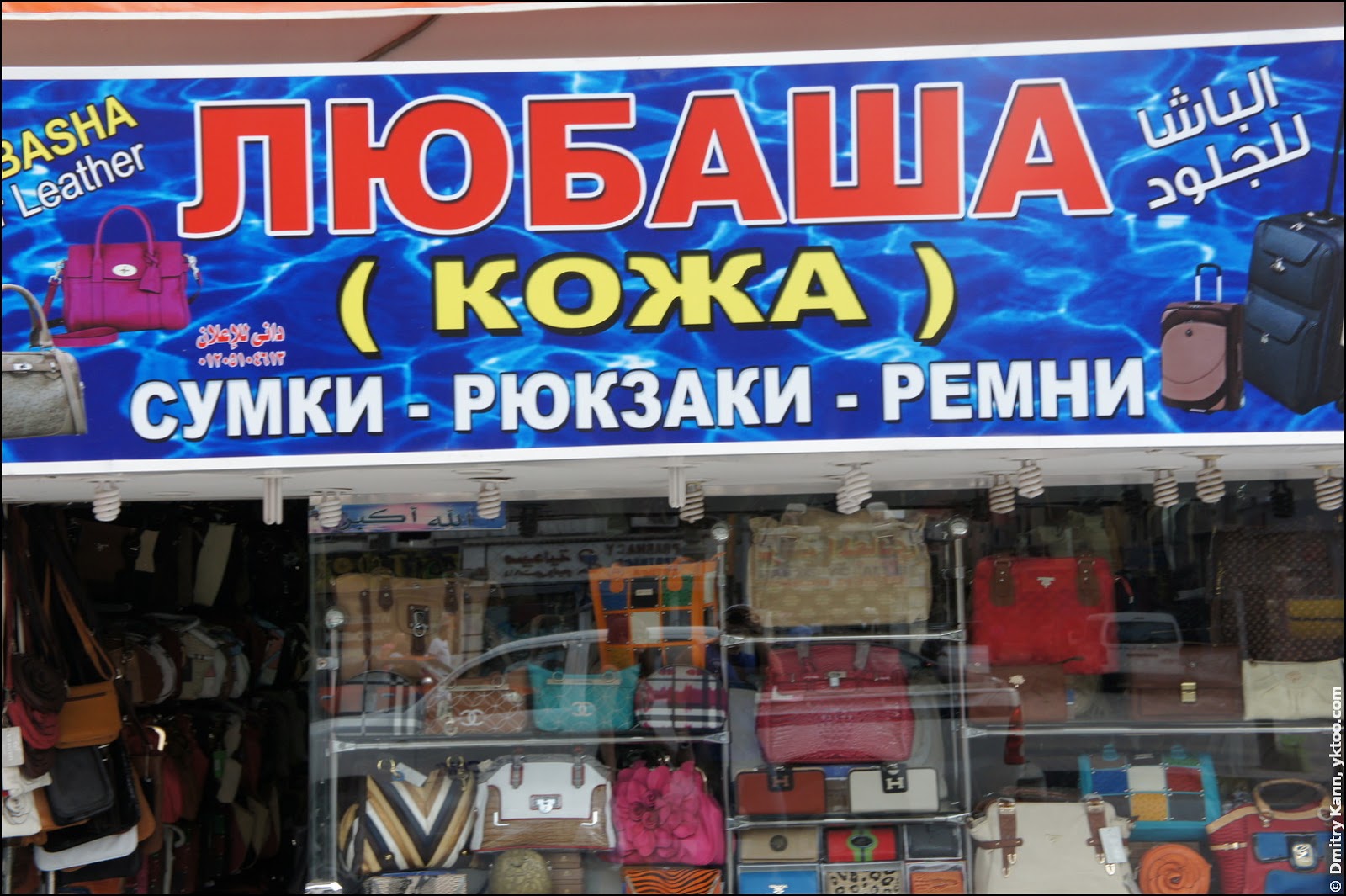
A taxi with a Russian flag inside:
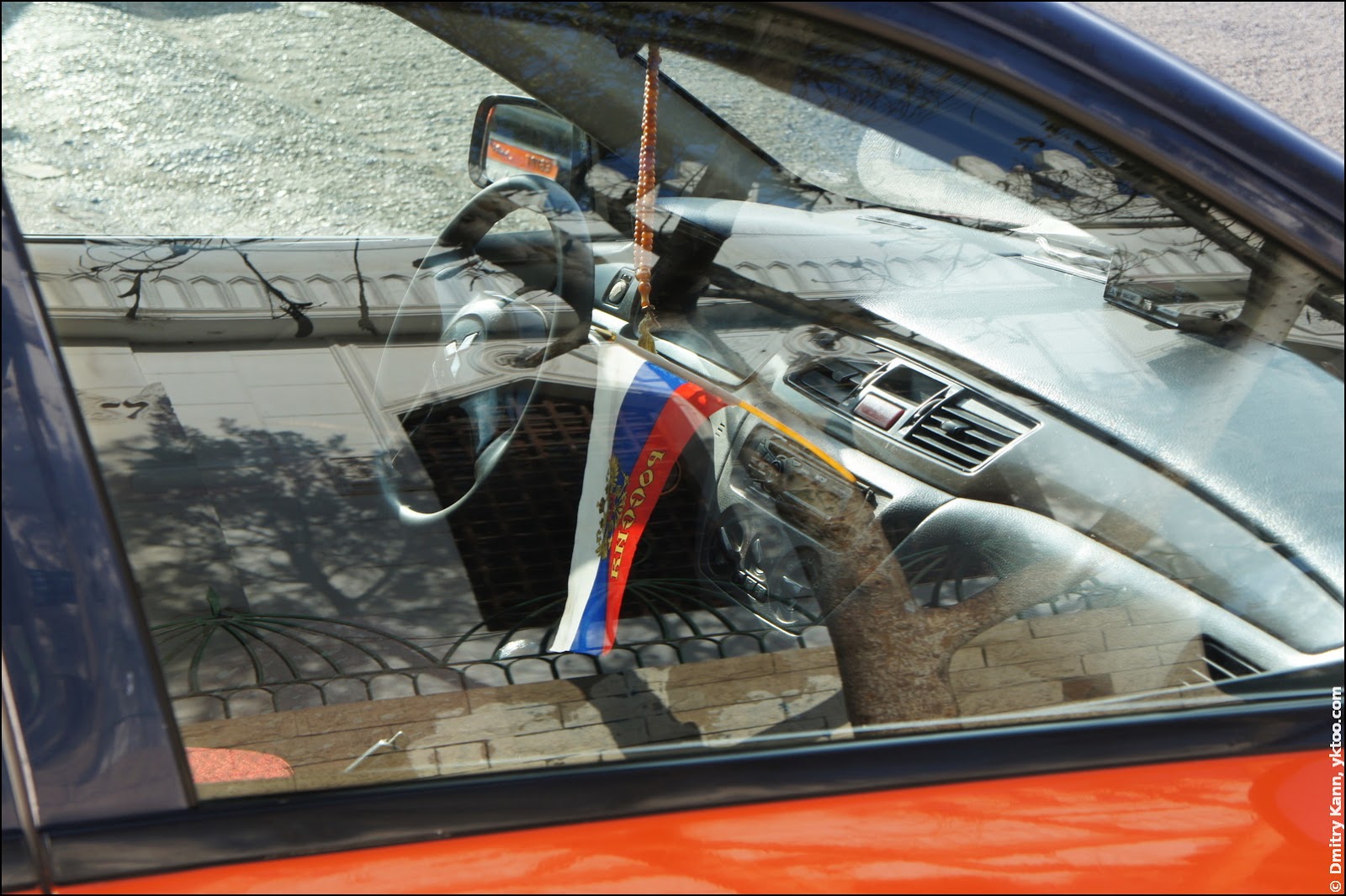
You can see pharmacies every hundred metres, marked in three languages:
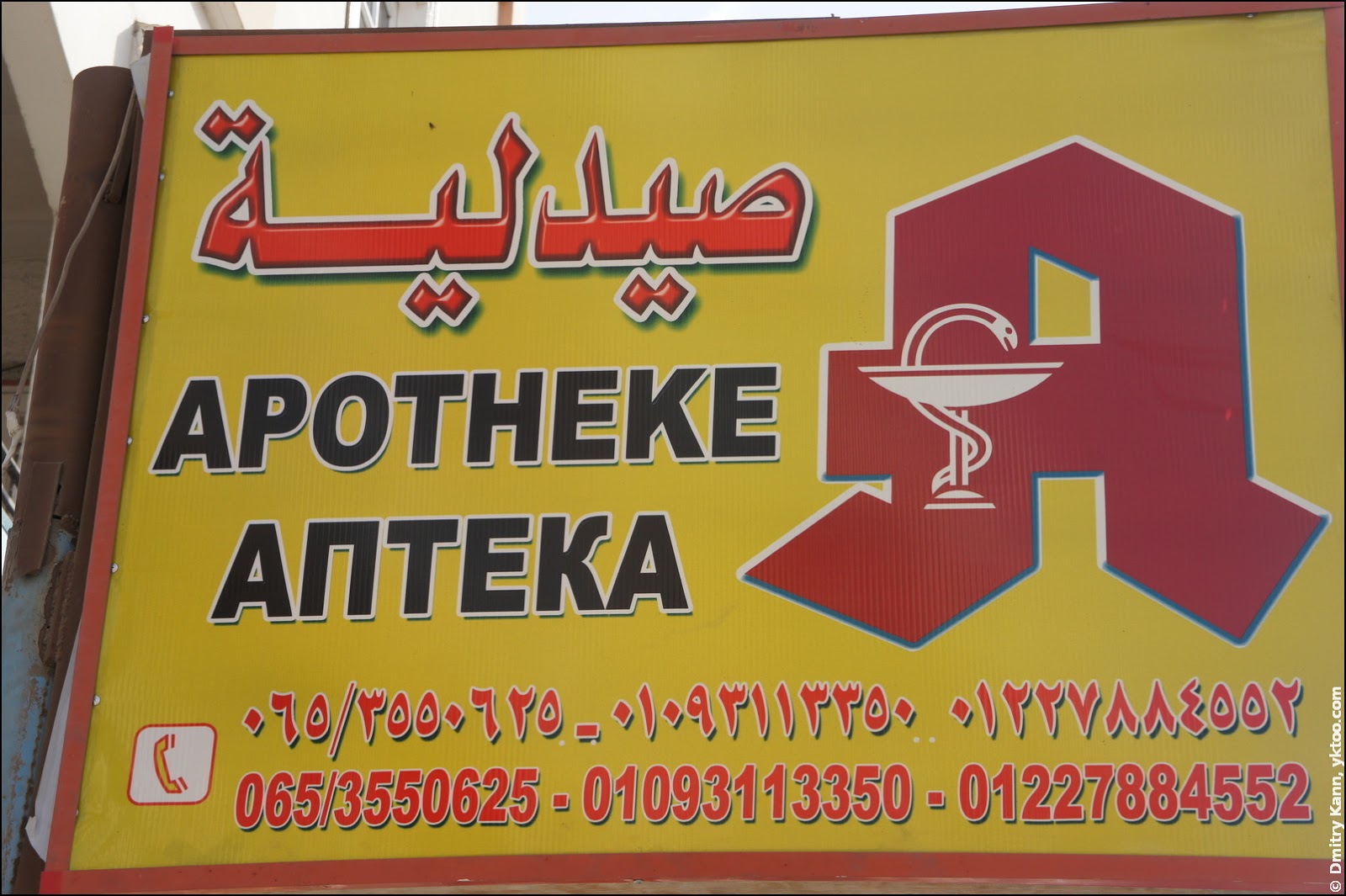
Some Russian translations are literal and therefore hilarious:
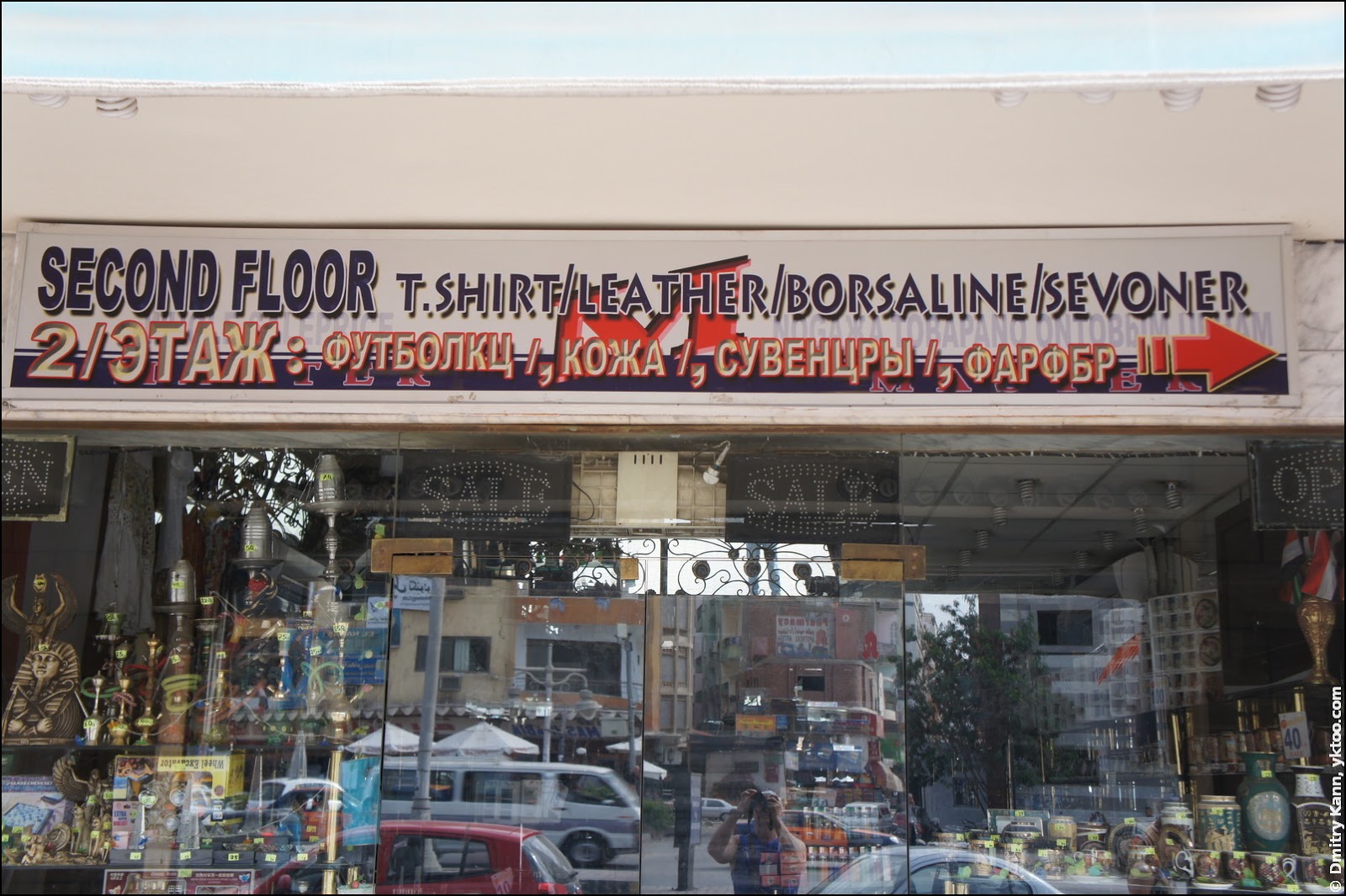
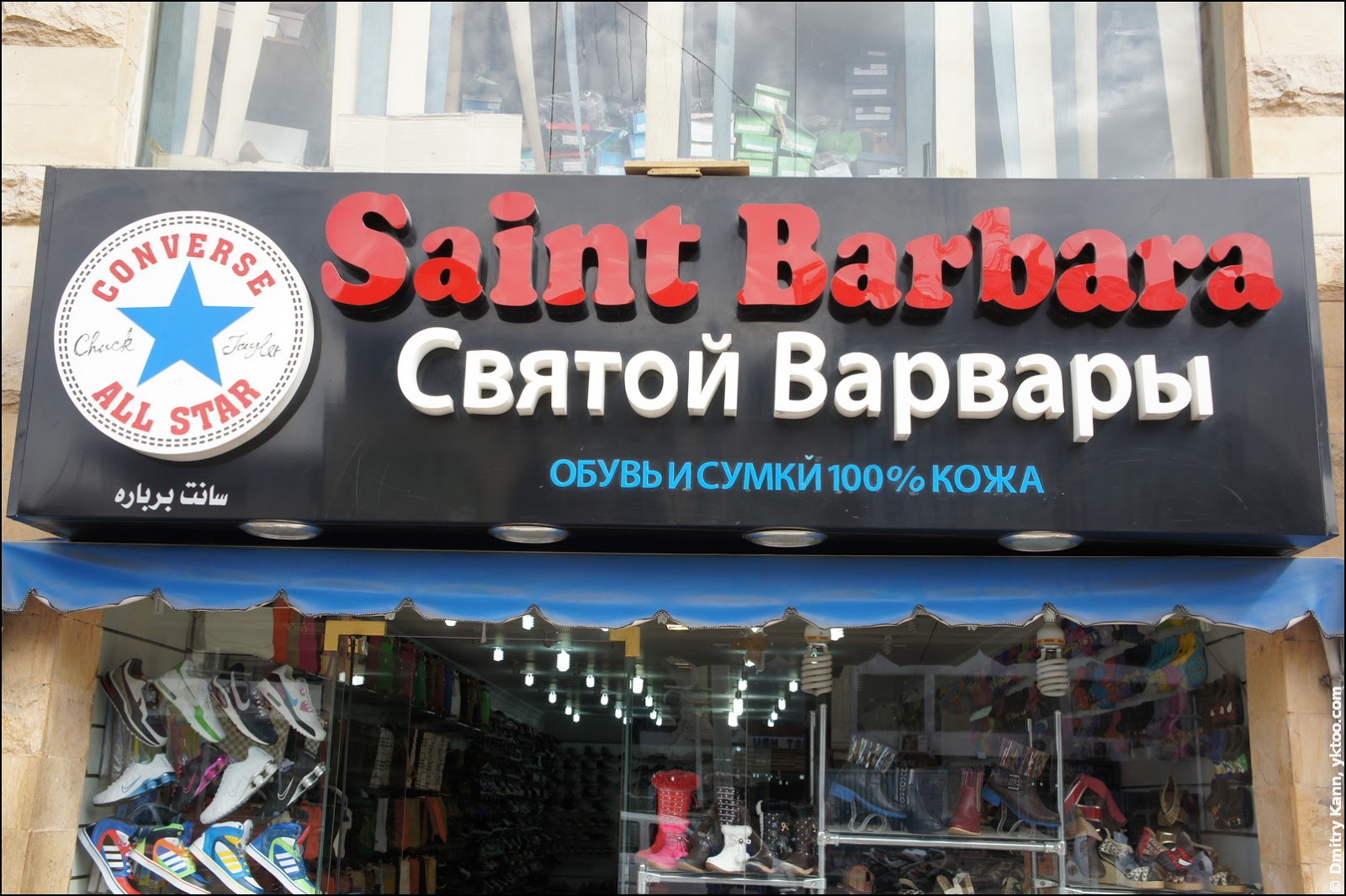
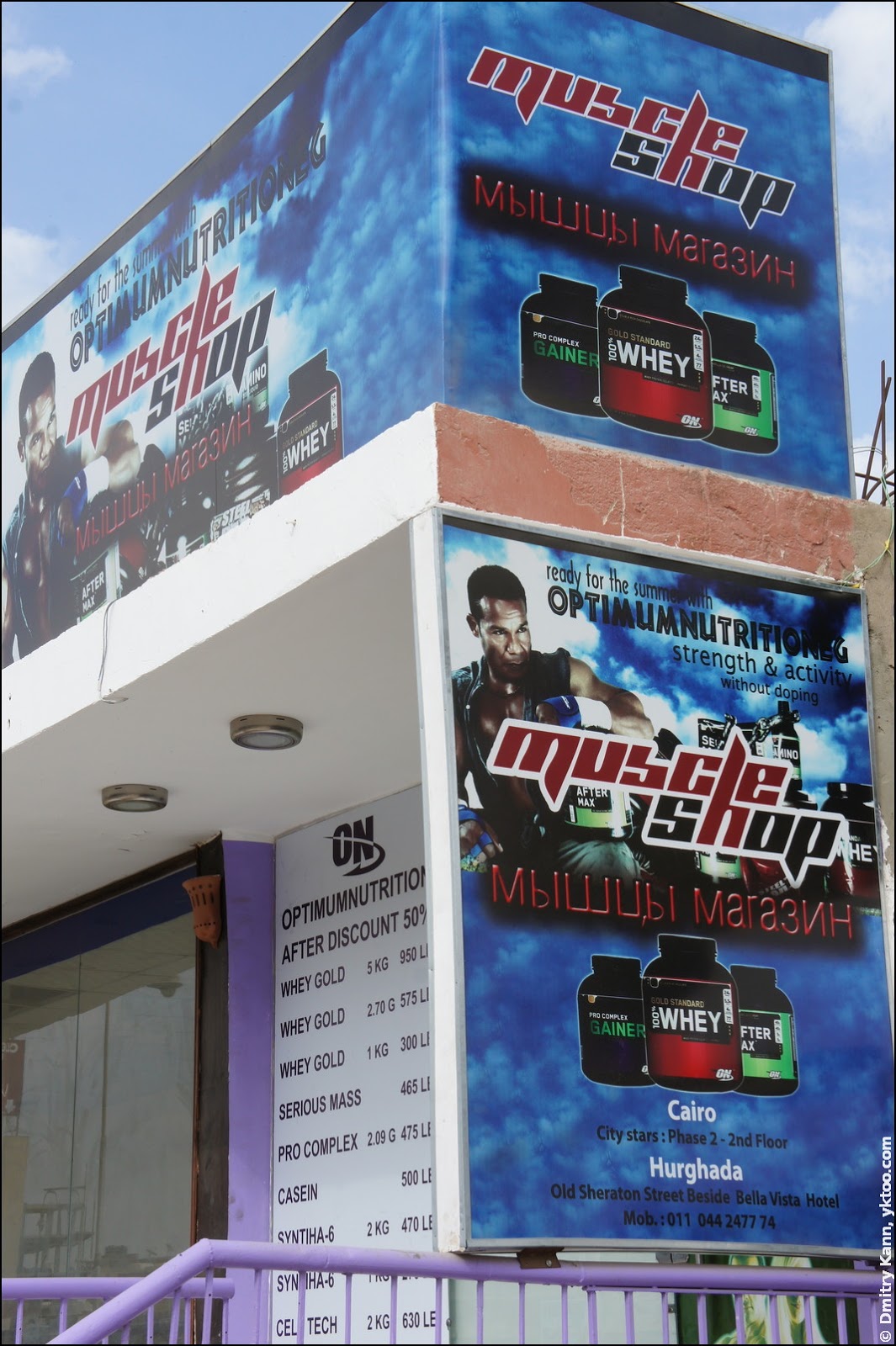
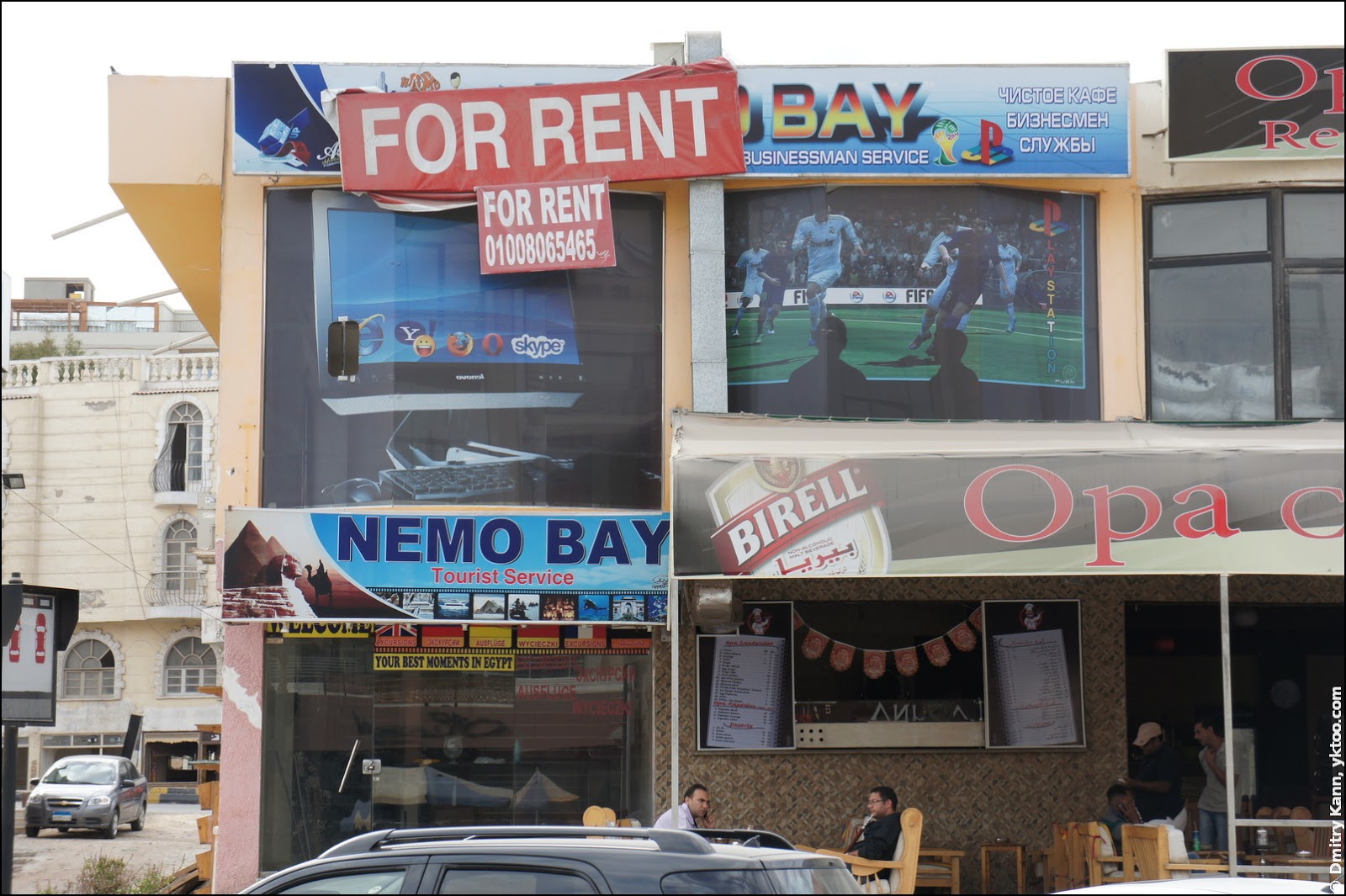
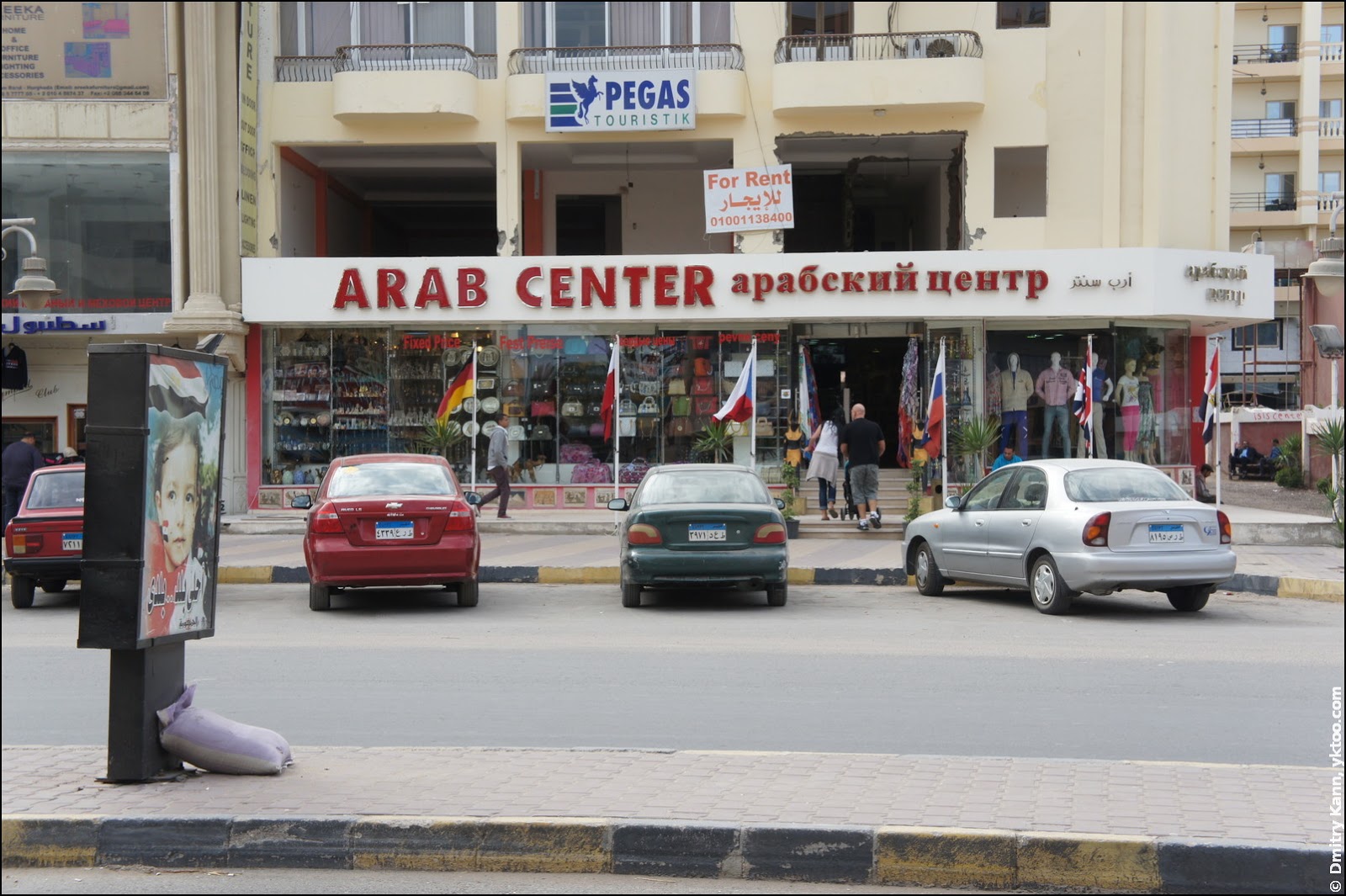
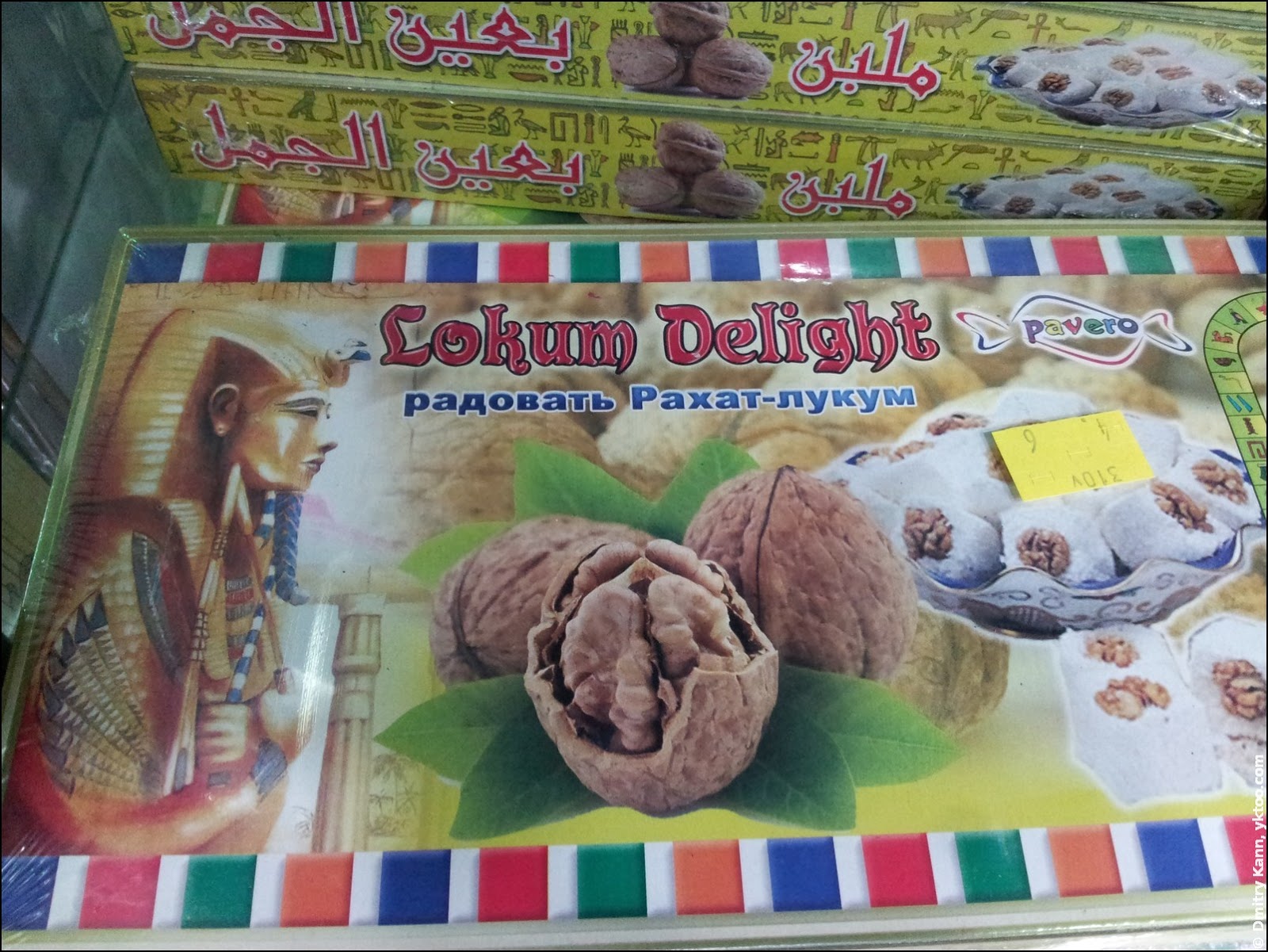
Hurghada airport has kindly provided a Russian-like sample of how to fill in the immigration card:
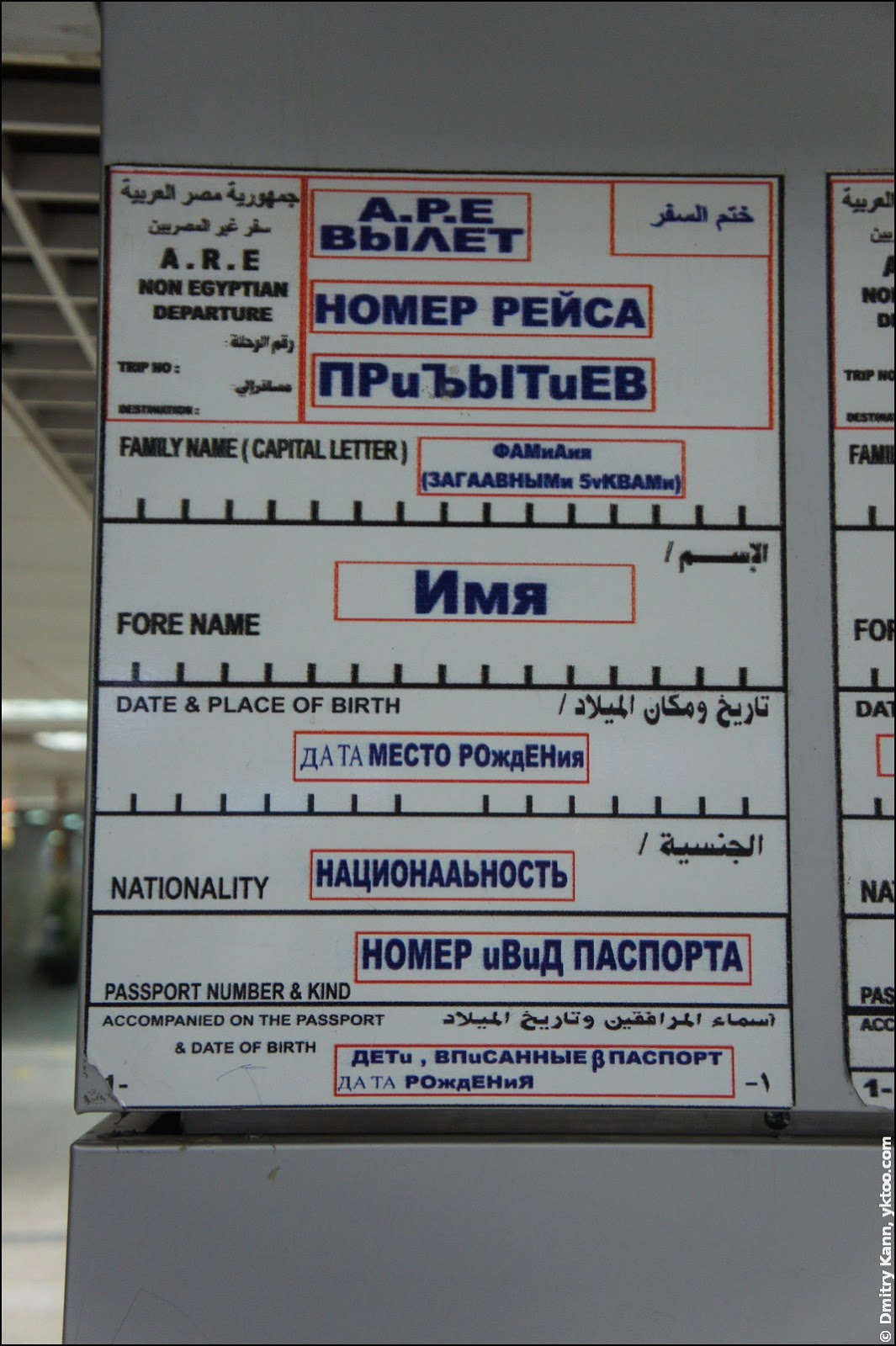
Transliteration instead of translation:
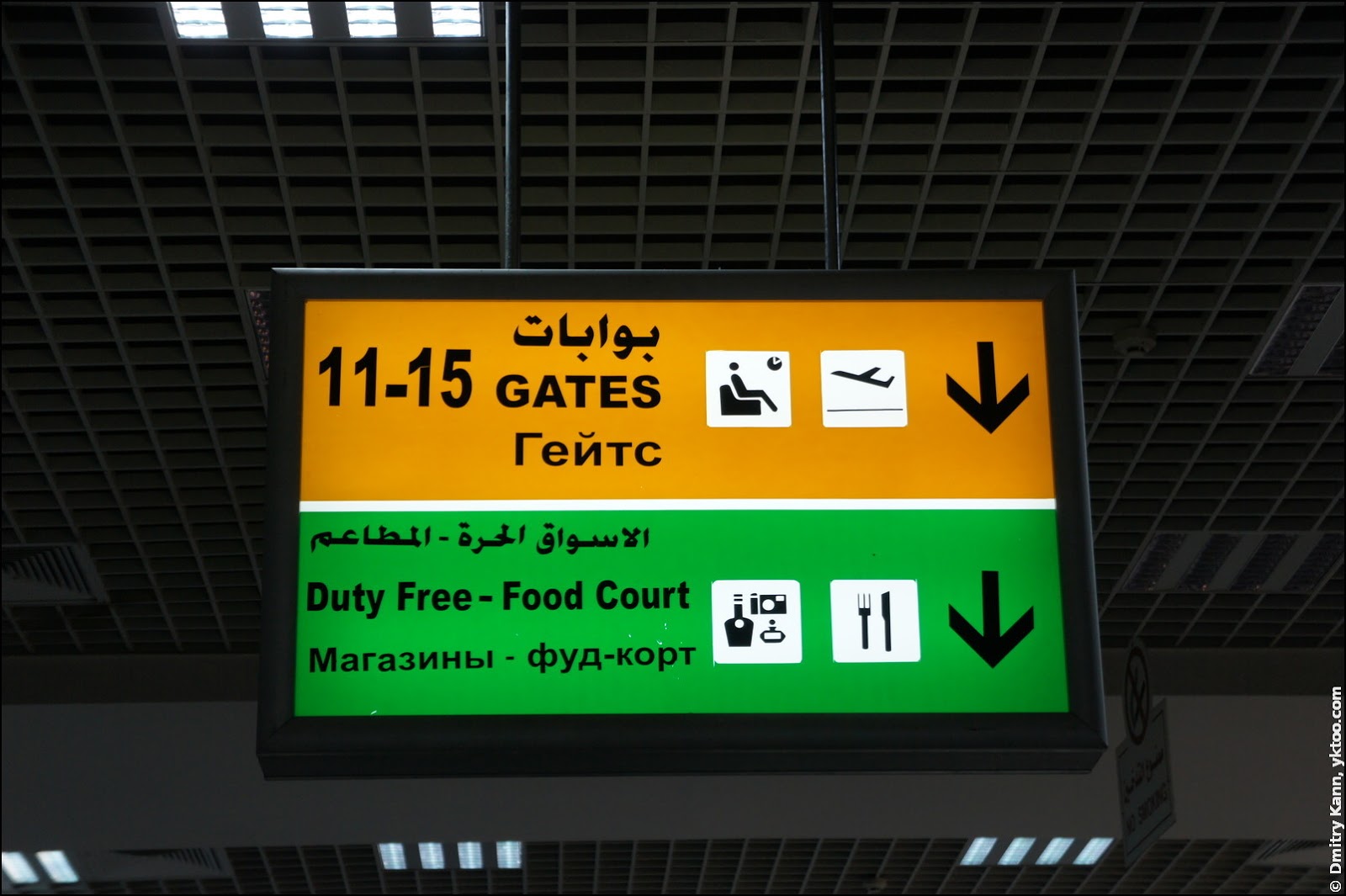
But English is sometimes not perfect here either.
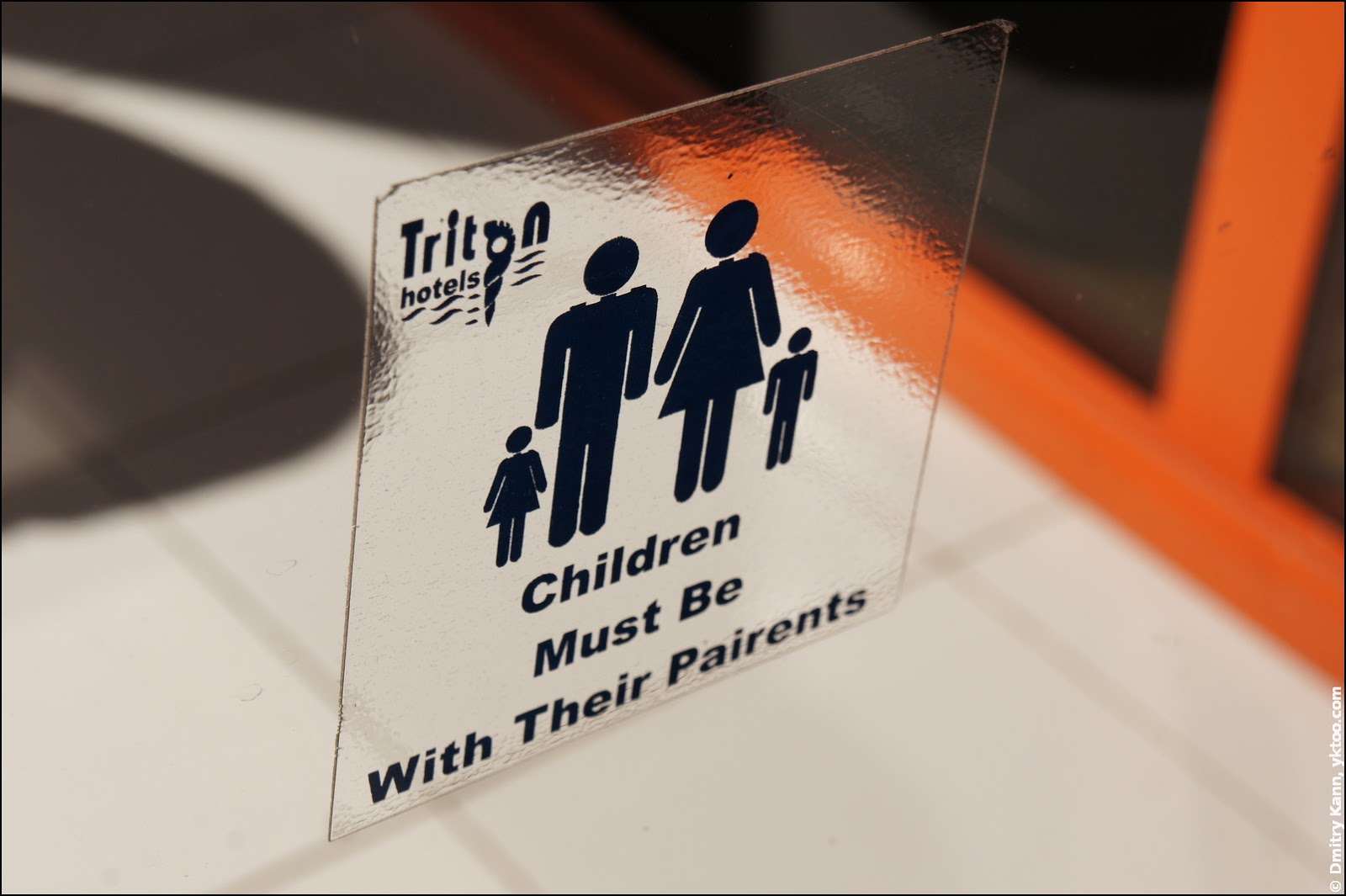
Some new spelling variants of the word coffee-shop:
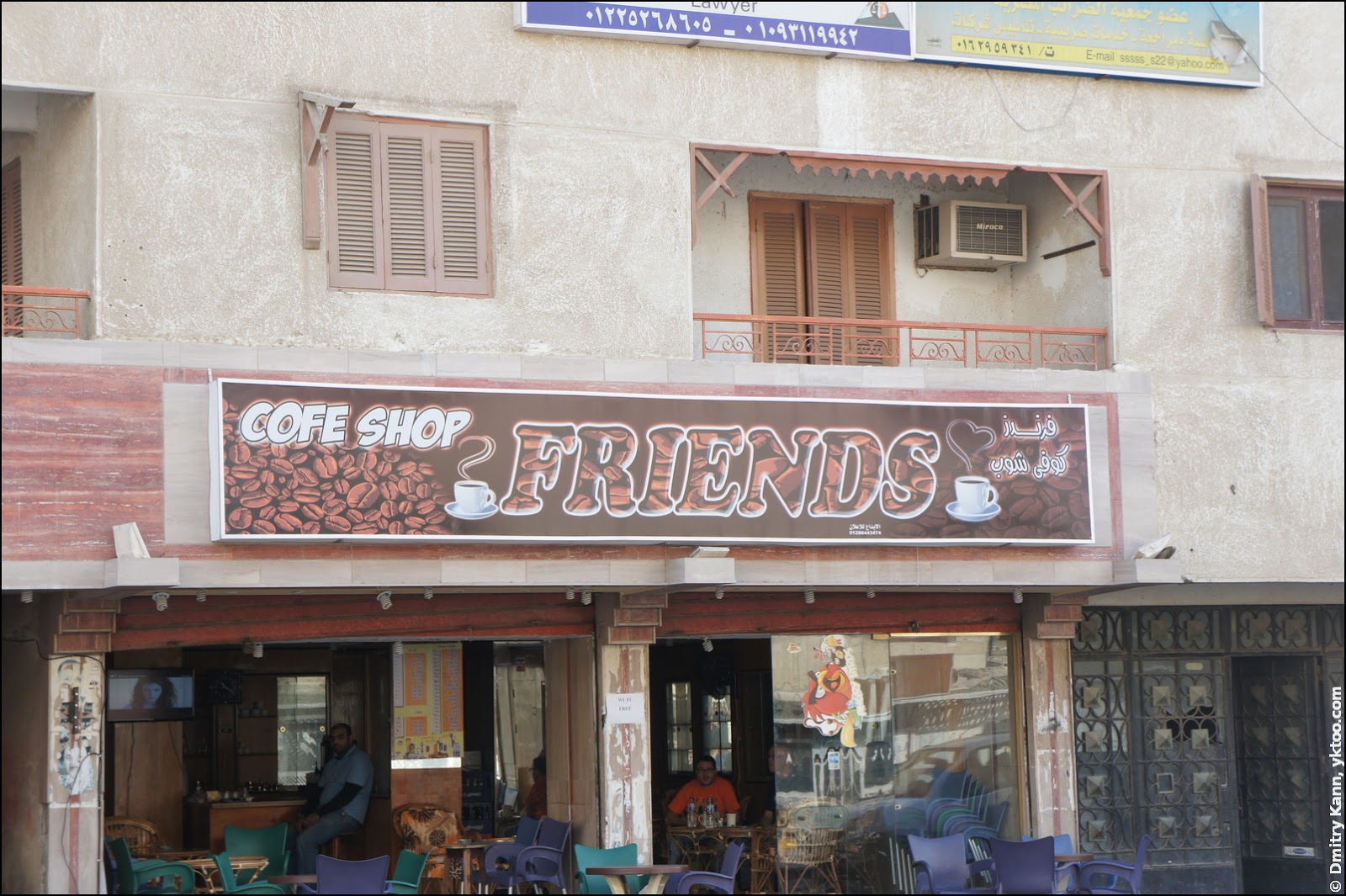
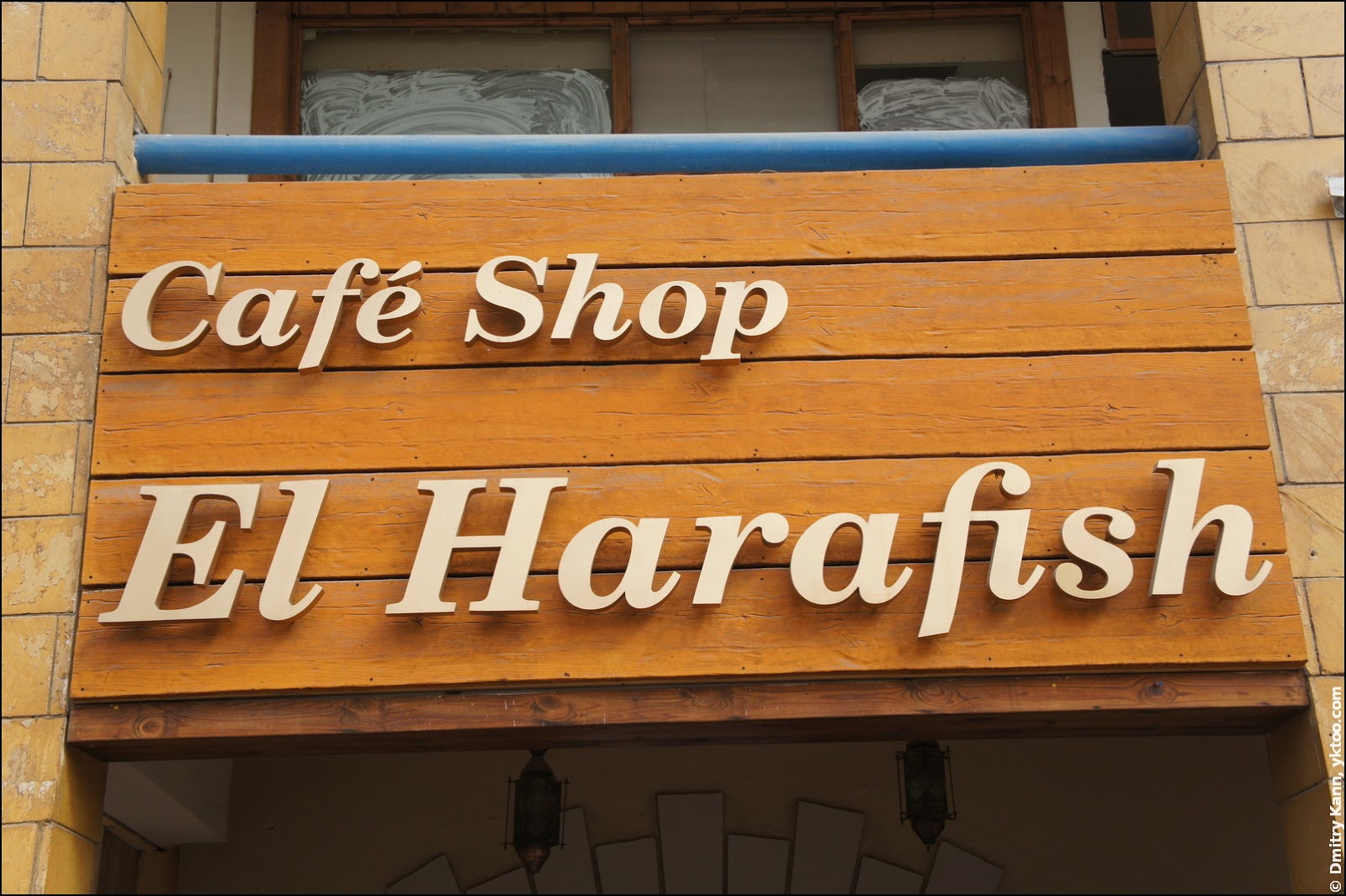
But they do have a genuine Irish pub here:
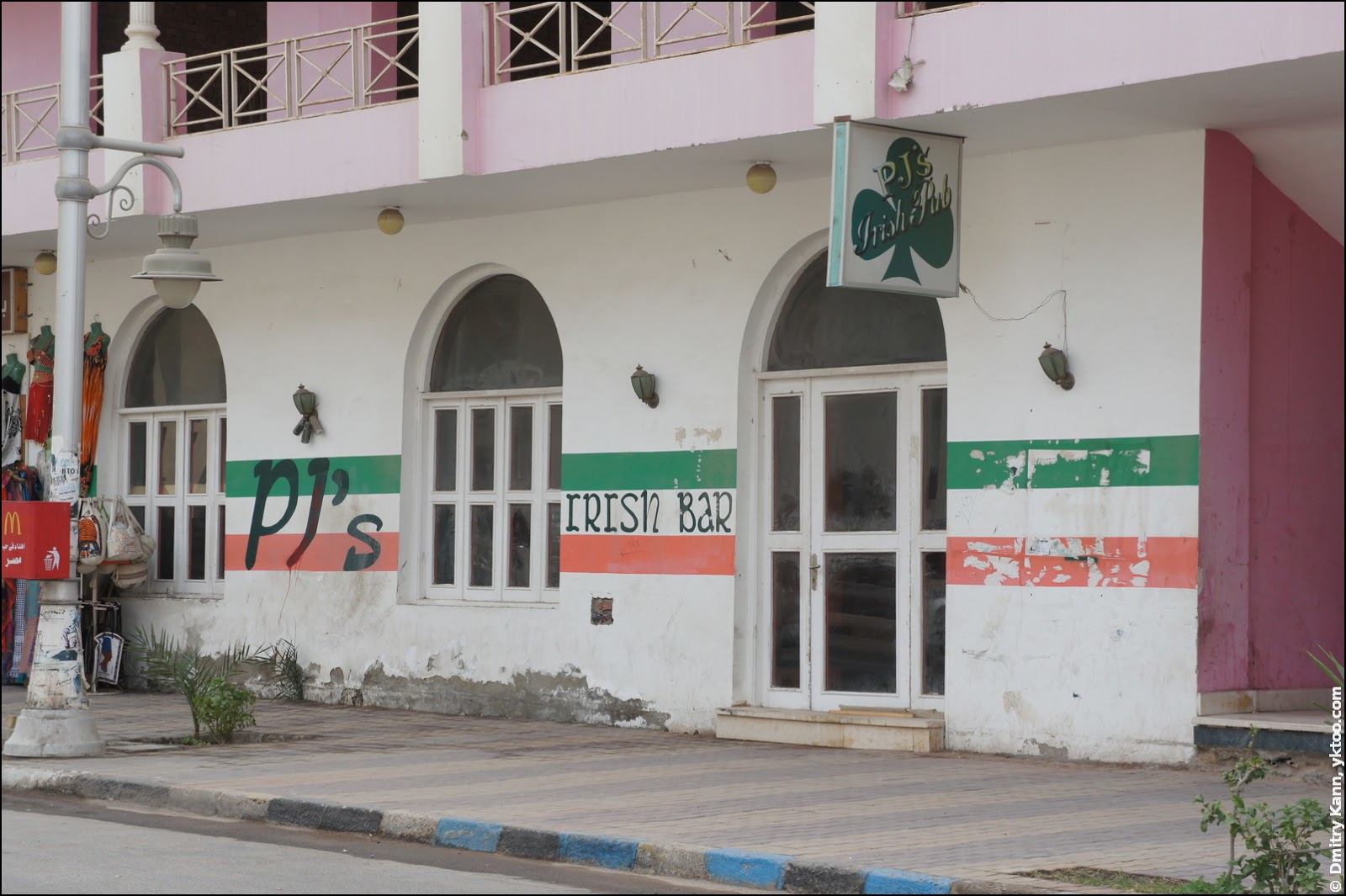
Miscellaneous
Arabic language is bizarre and doesn’t make any sense at all. Here’s a supermarket receipt:
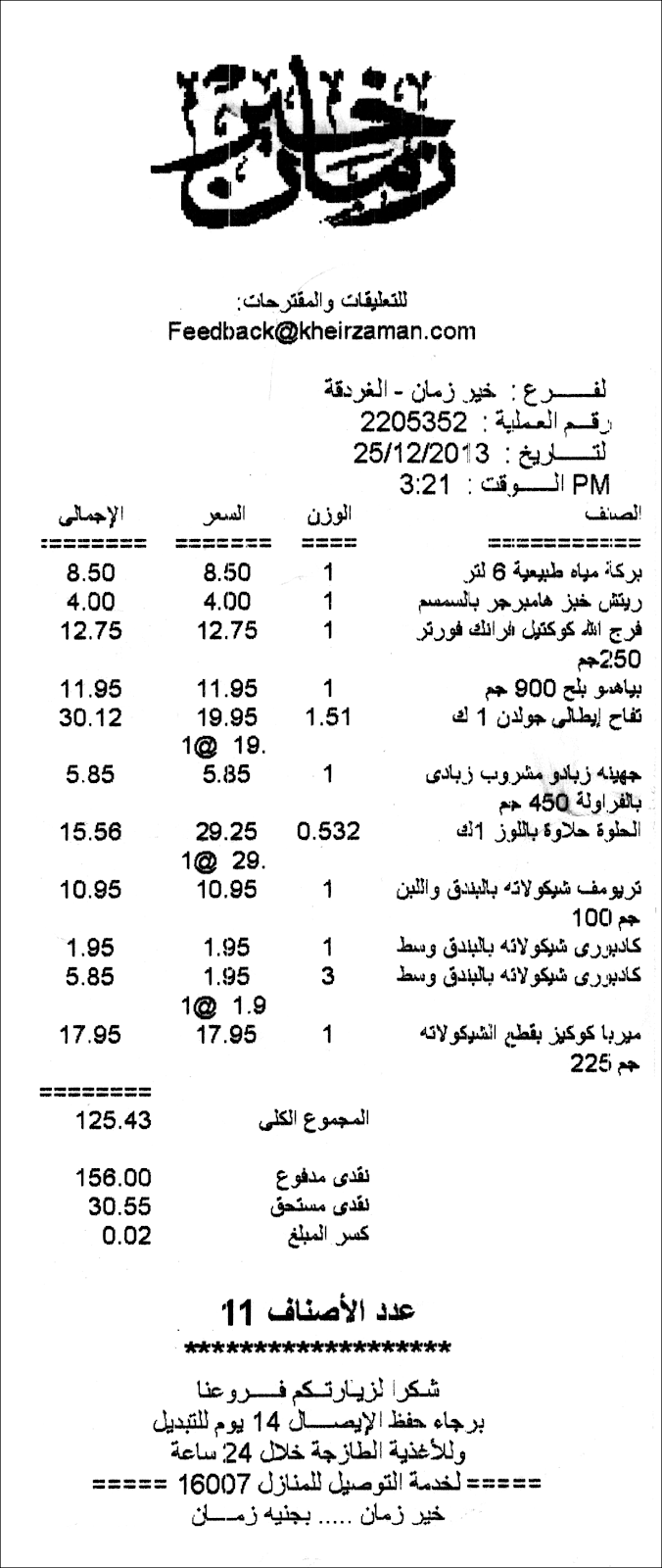
And this departure board says “Amsterdam”:
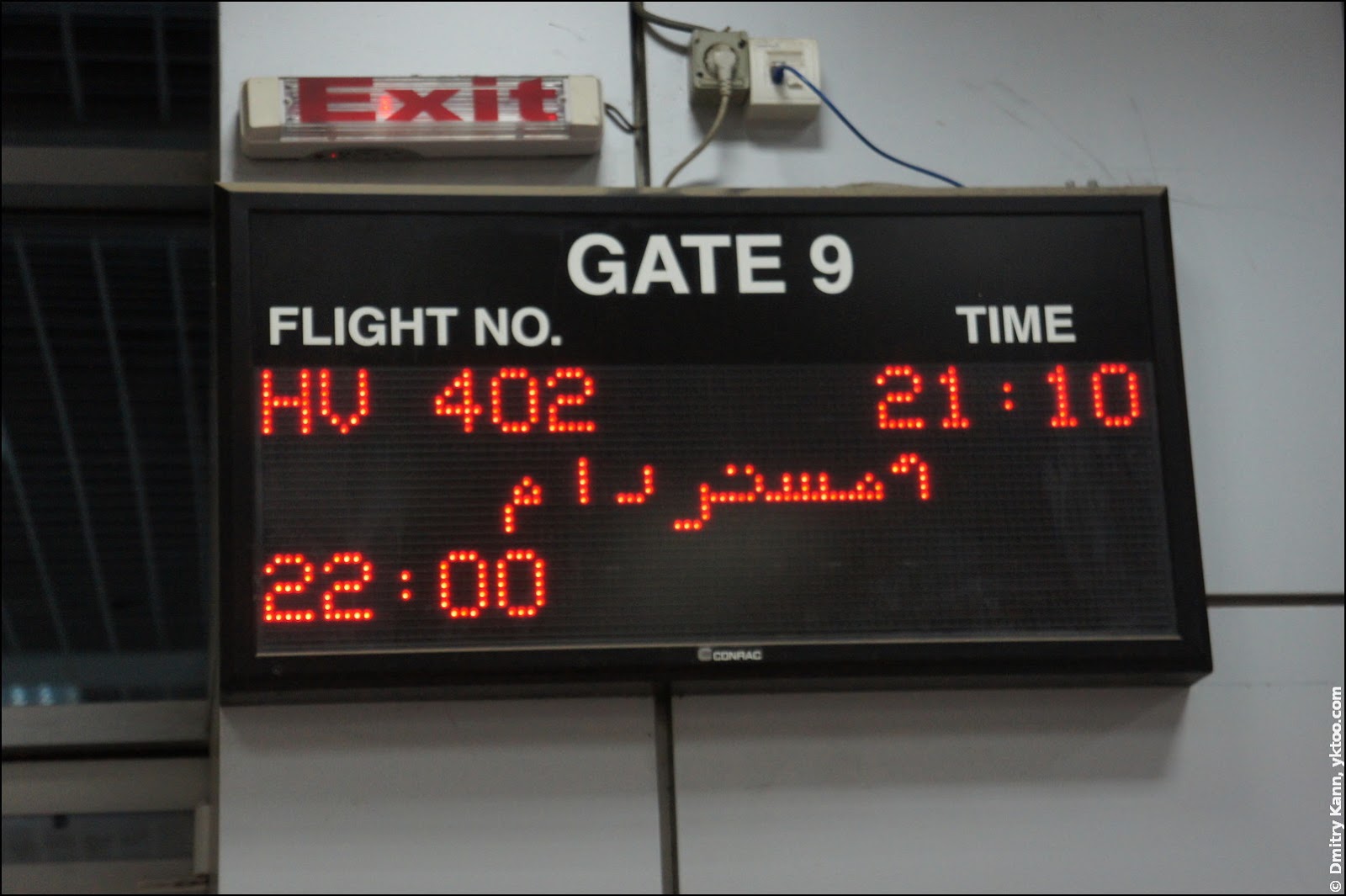
Halva (or halawa) and dates are the two most popular delicacies. Dates are offered in plain cardboard boxes:
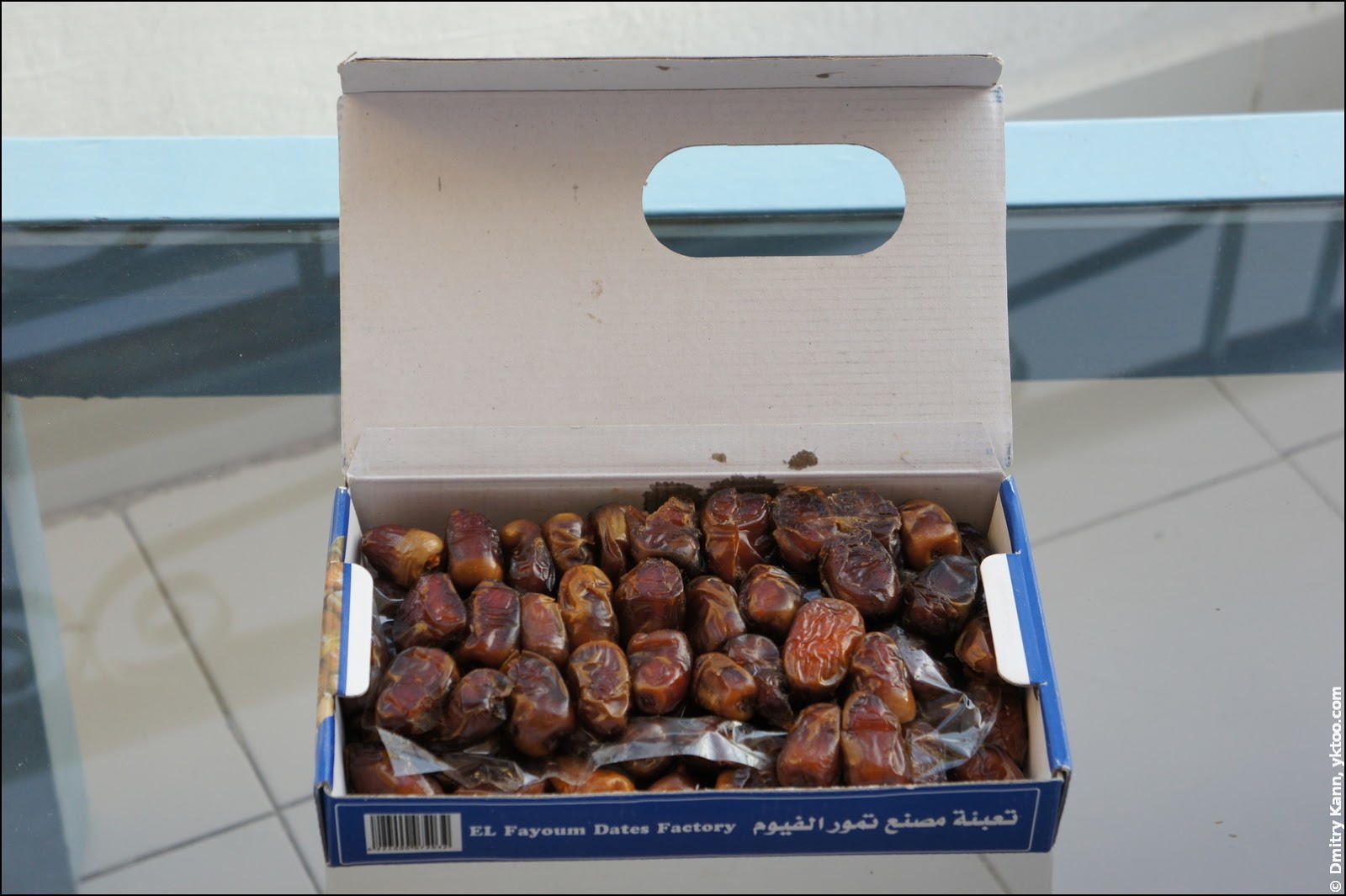
We’ve tried once a local wine called Shahrazade in a restaurant. The was was decent, but I failed to find it in a store as they sell nothing stronger than beer. Even duty-free stores at the airport offered anything but local wine.
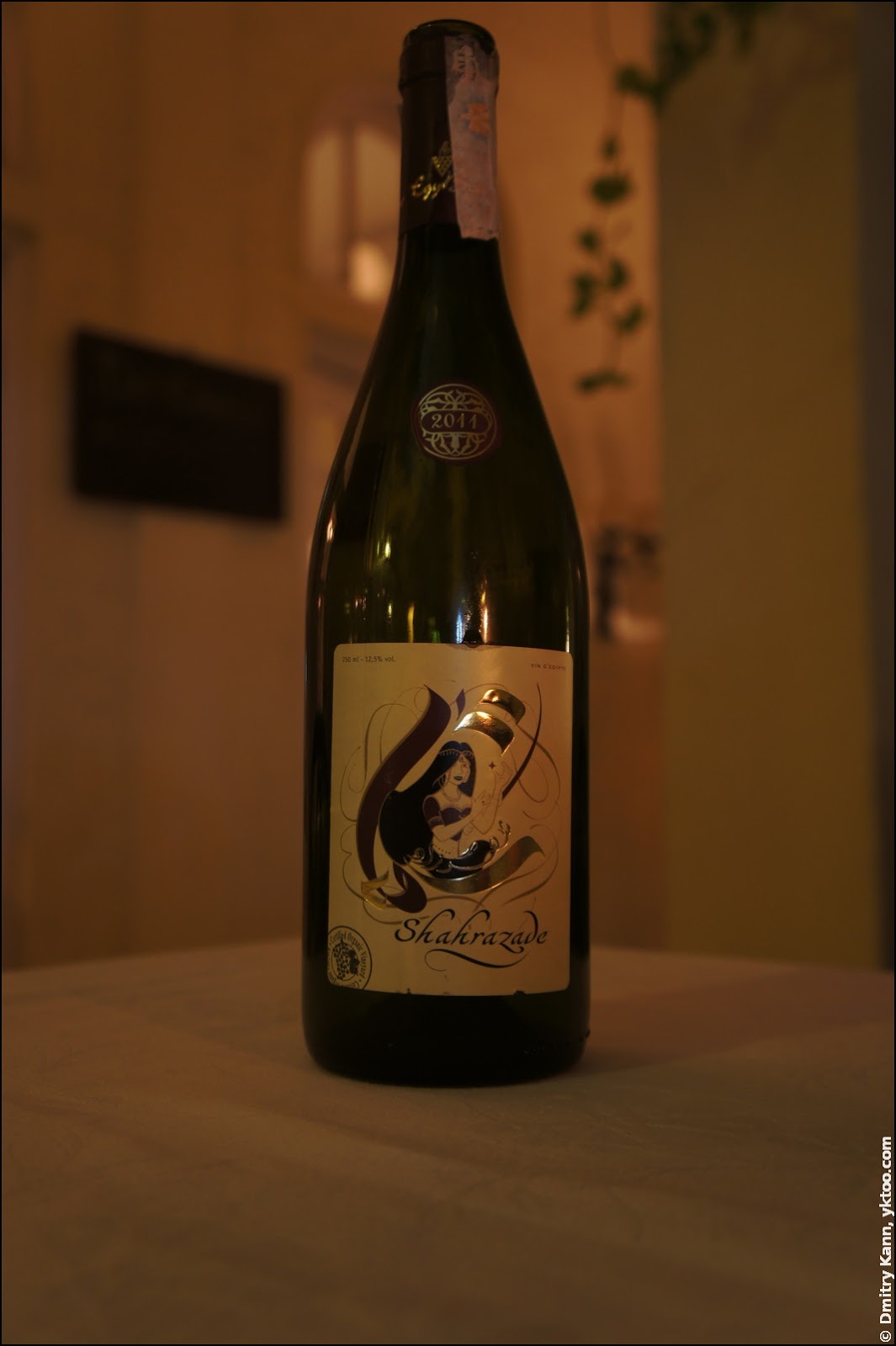
Internet connection is quite slow here. Our hotel offered it for 15 Egyptian pounds (€ 1.60) per half-an-hour, so we preferred restaurants with free Wi-Fi. Most of the locals use such a forgotten thing as mobiles with push-buttons, however sometimes you see wealthier compatriots in suits and decent cars (like Hyundai) and even with tablets.
I spotted something curious on a package of paracetamol, the address that belongs to the Hotmail free email service:
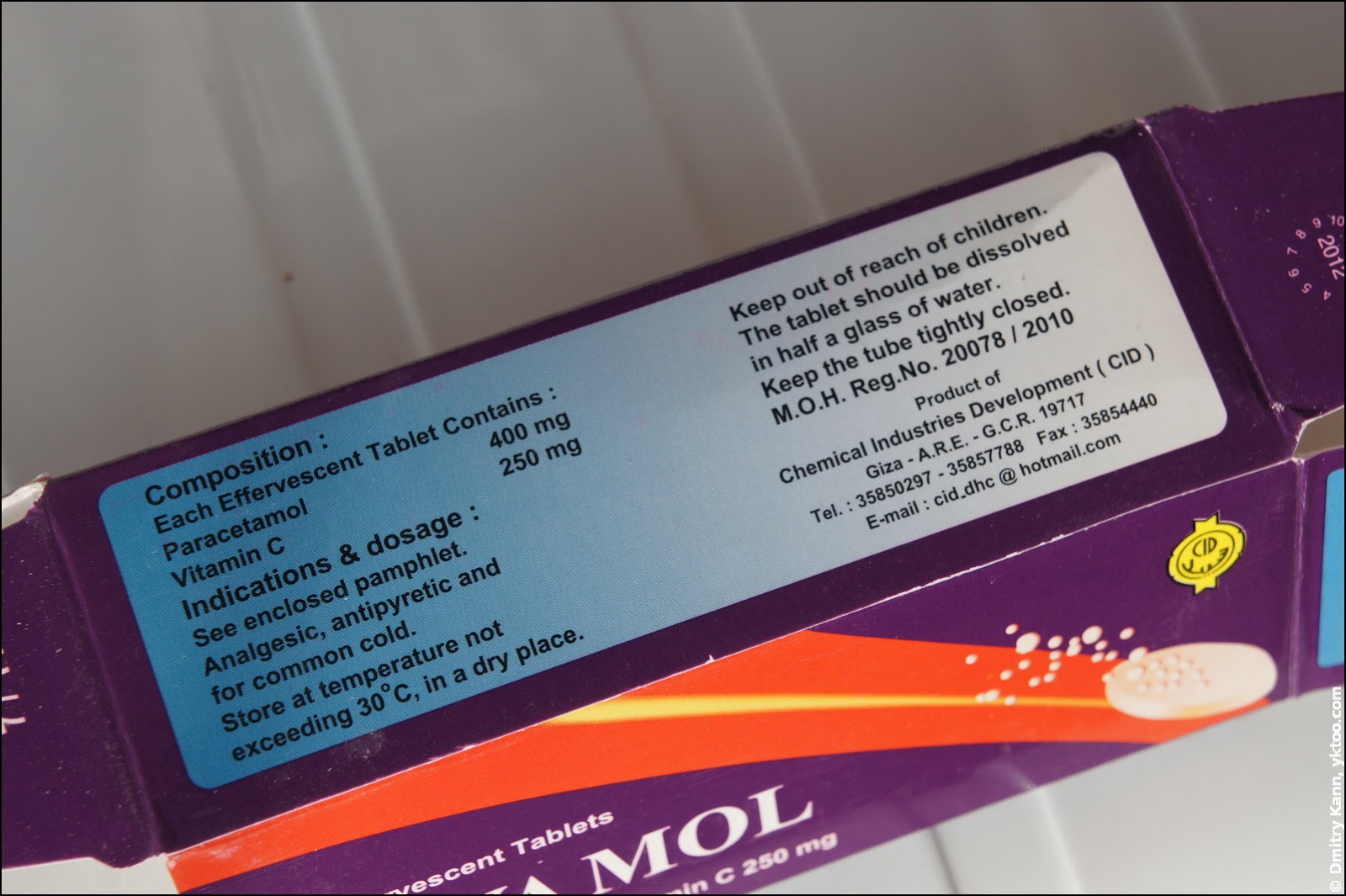
That’s about it. A hundred-metre-long line in the departure hall:
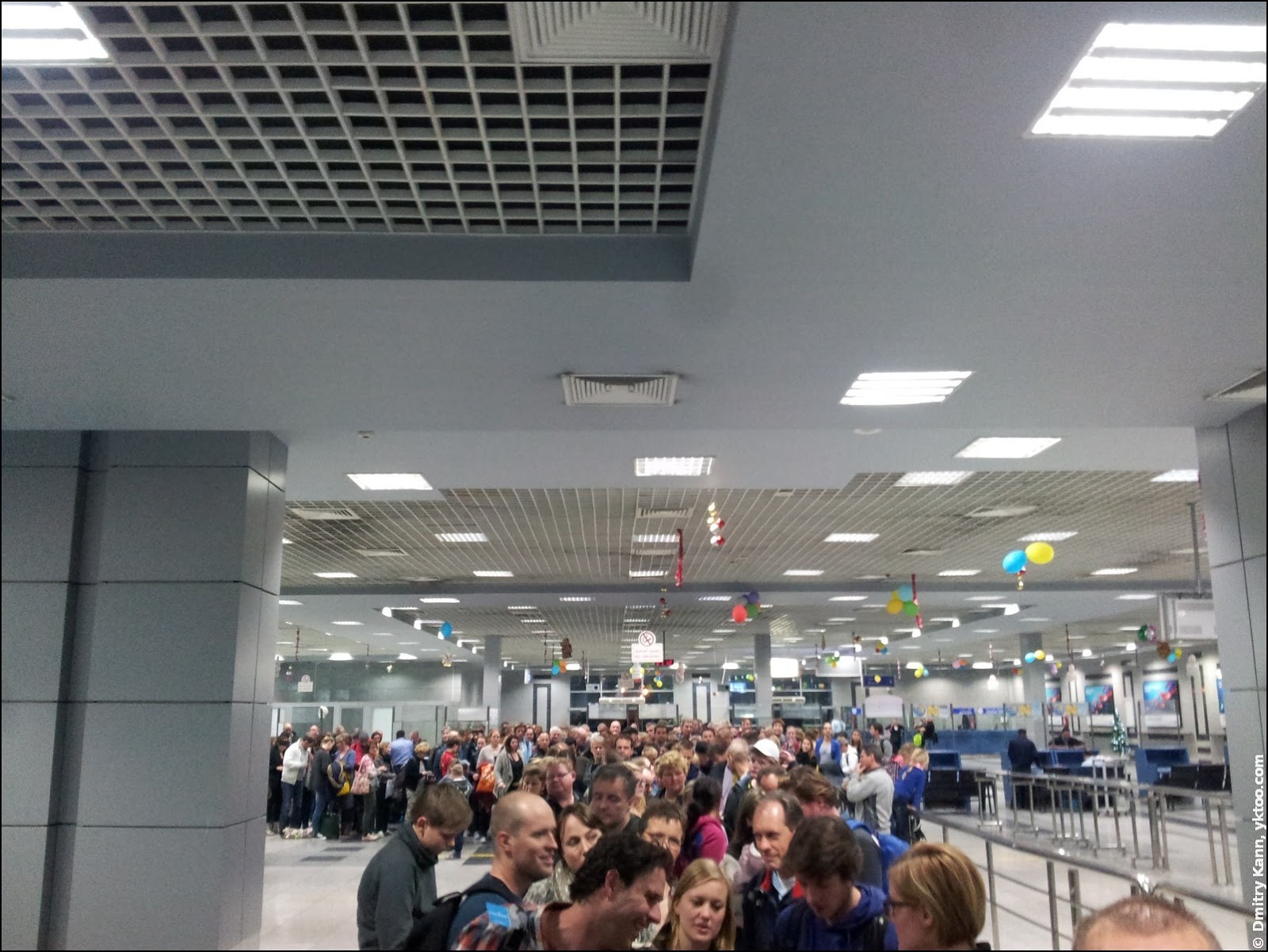
As I said, my perception of Egypt is ambiguous. On one hand, a magnificent sea and lots of new impressions. On the other, the poverty around, dust, obtrusiveness of the barkers and the feeling of disorder. It’s arguably the best place for diving and beach holiday, especially considering local prices. But there’s very little to do here otherwise. ■
 — world’s fastest URL shortener
— world’s fastest URL shortener
Comments